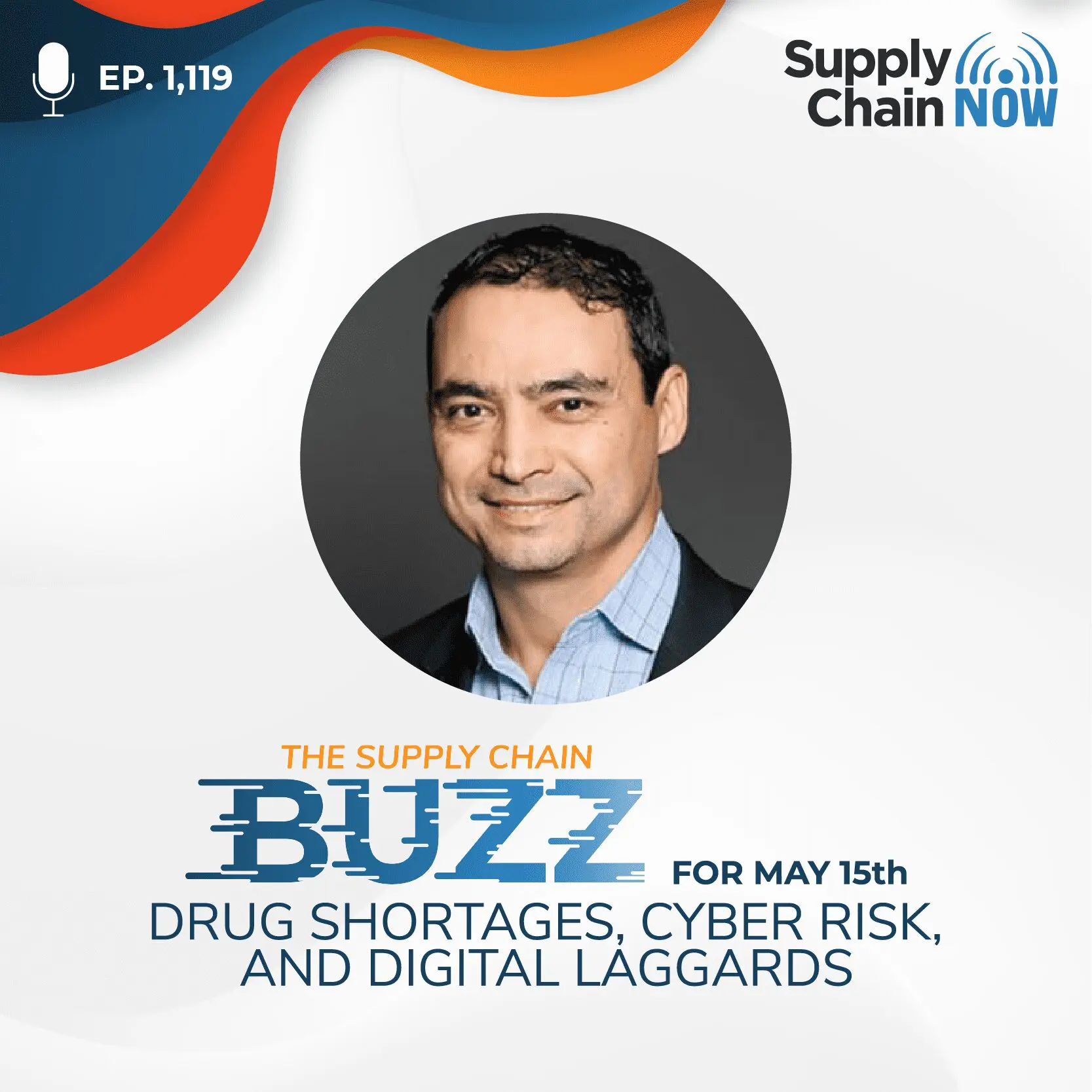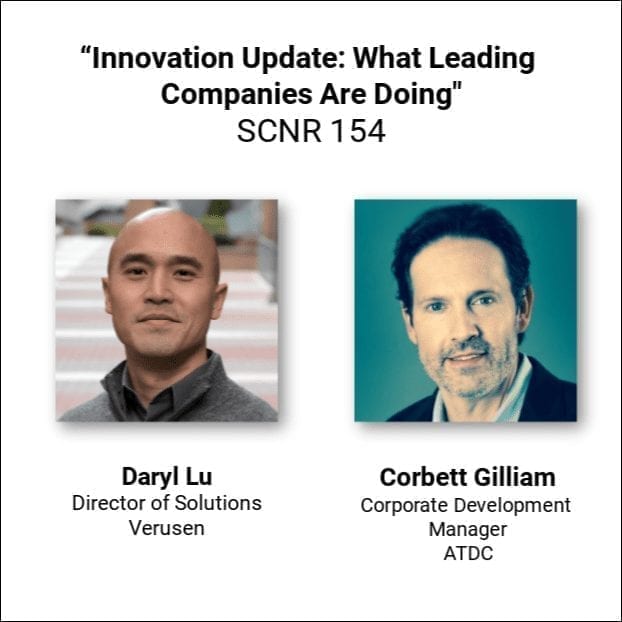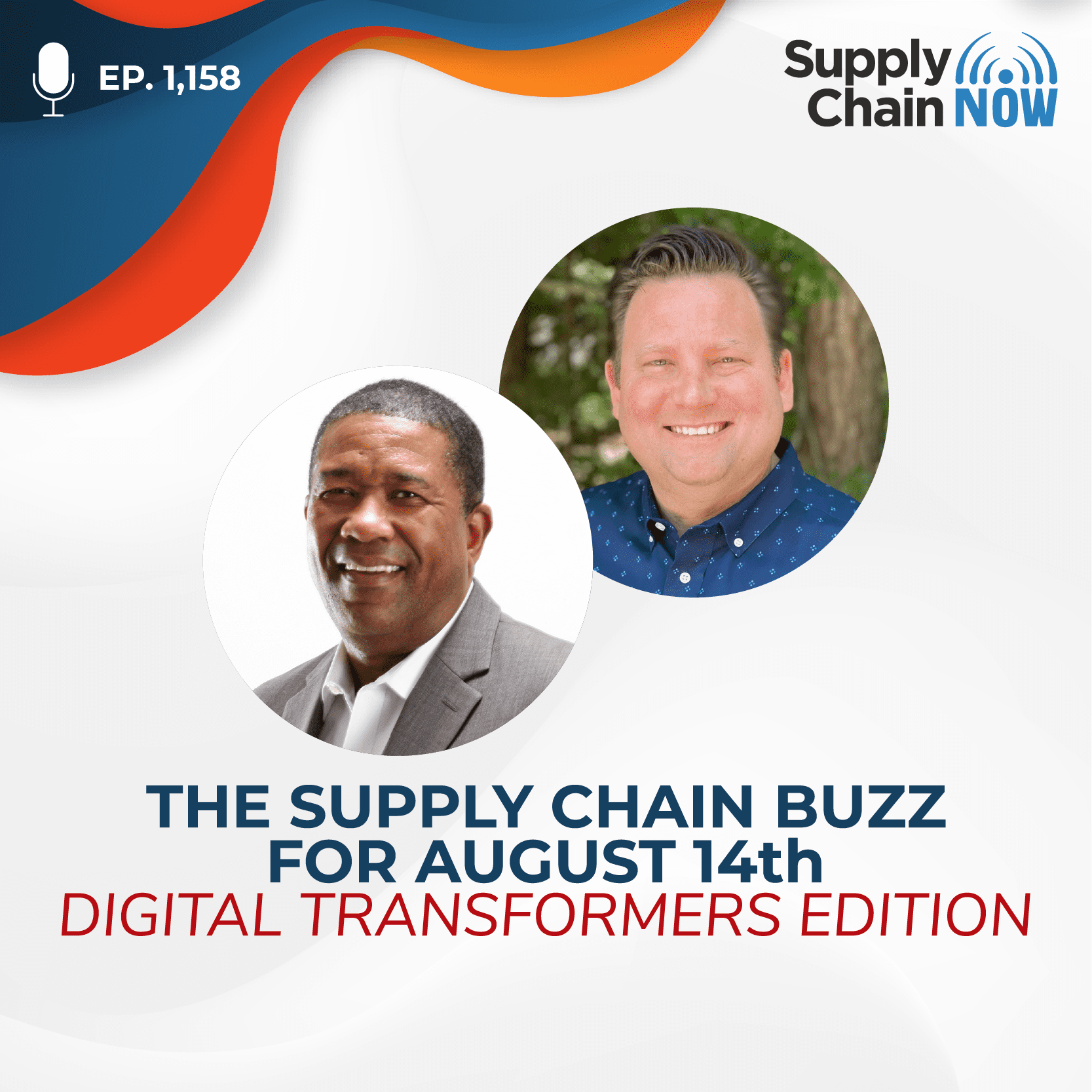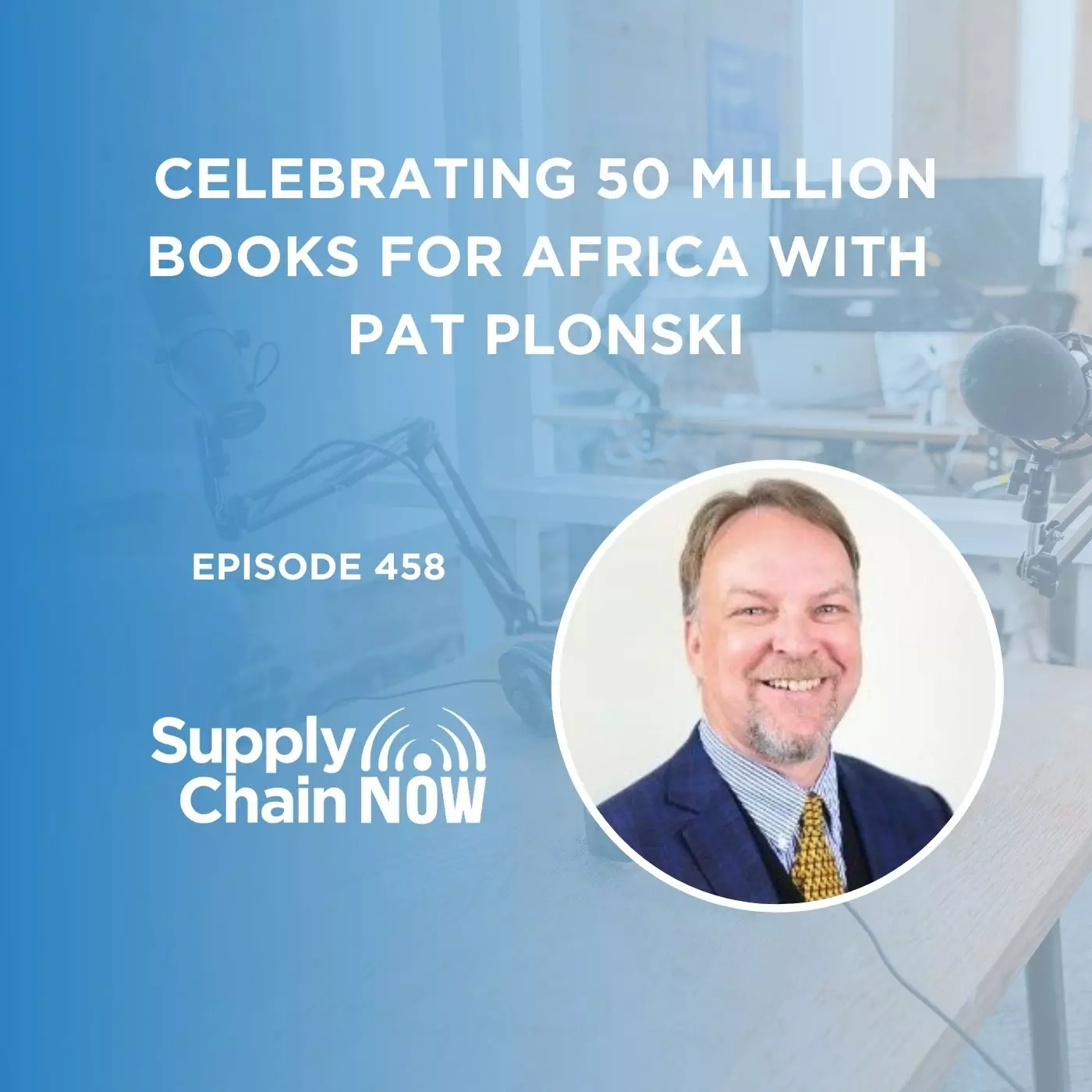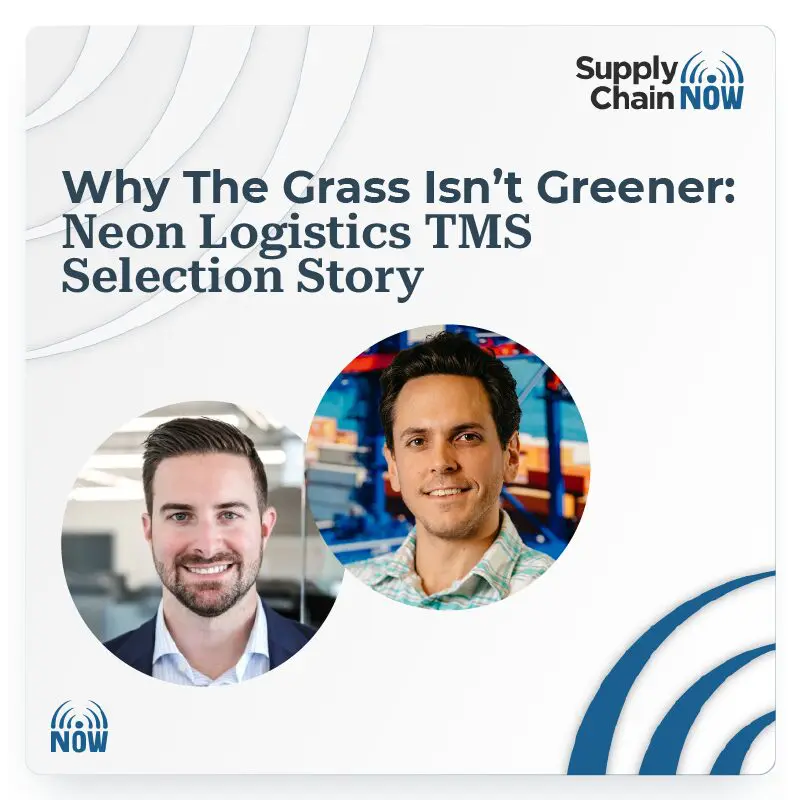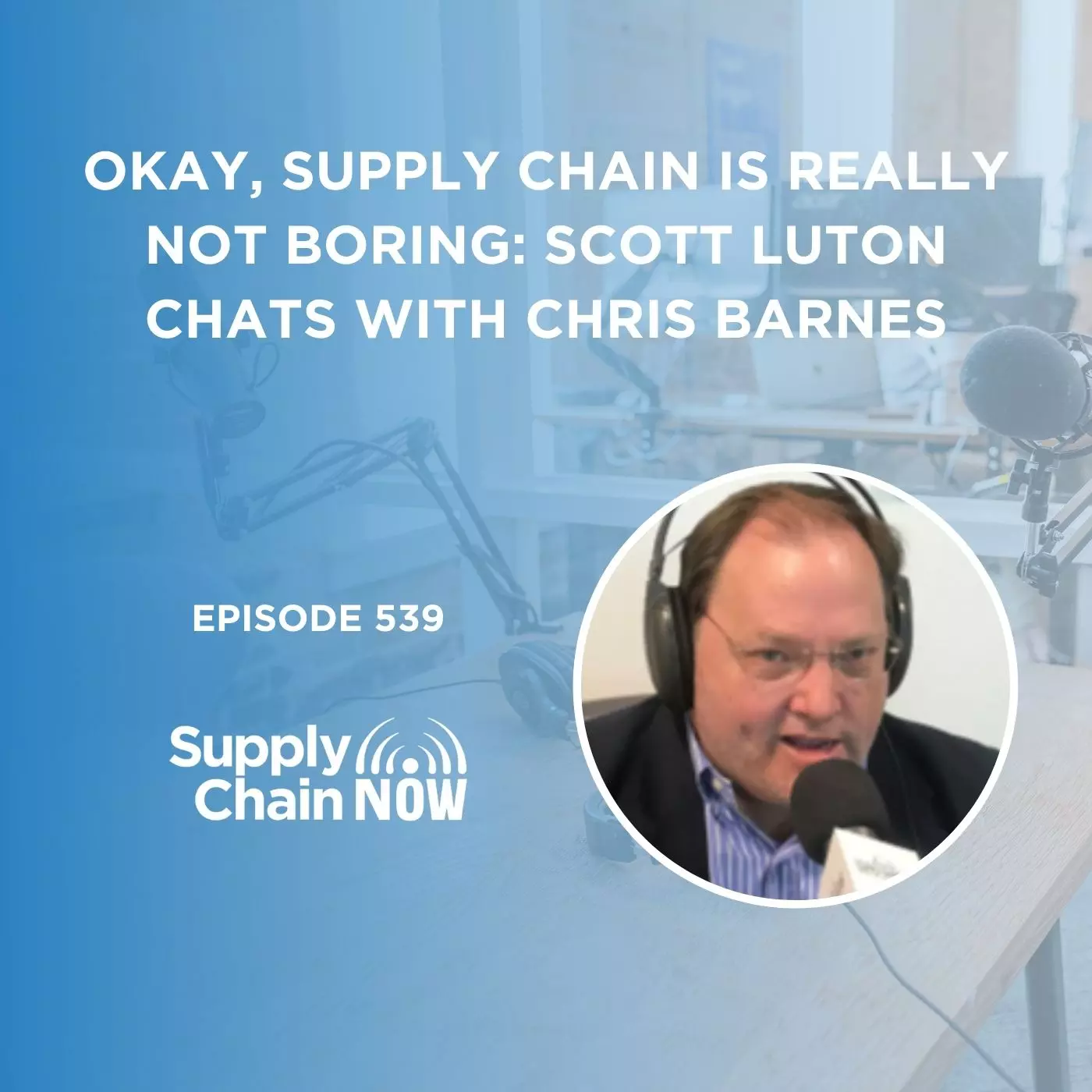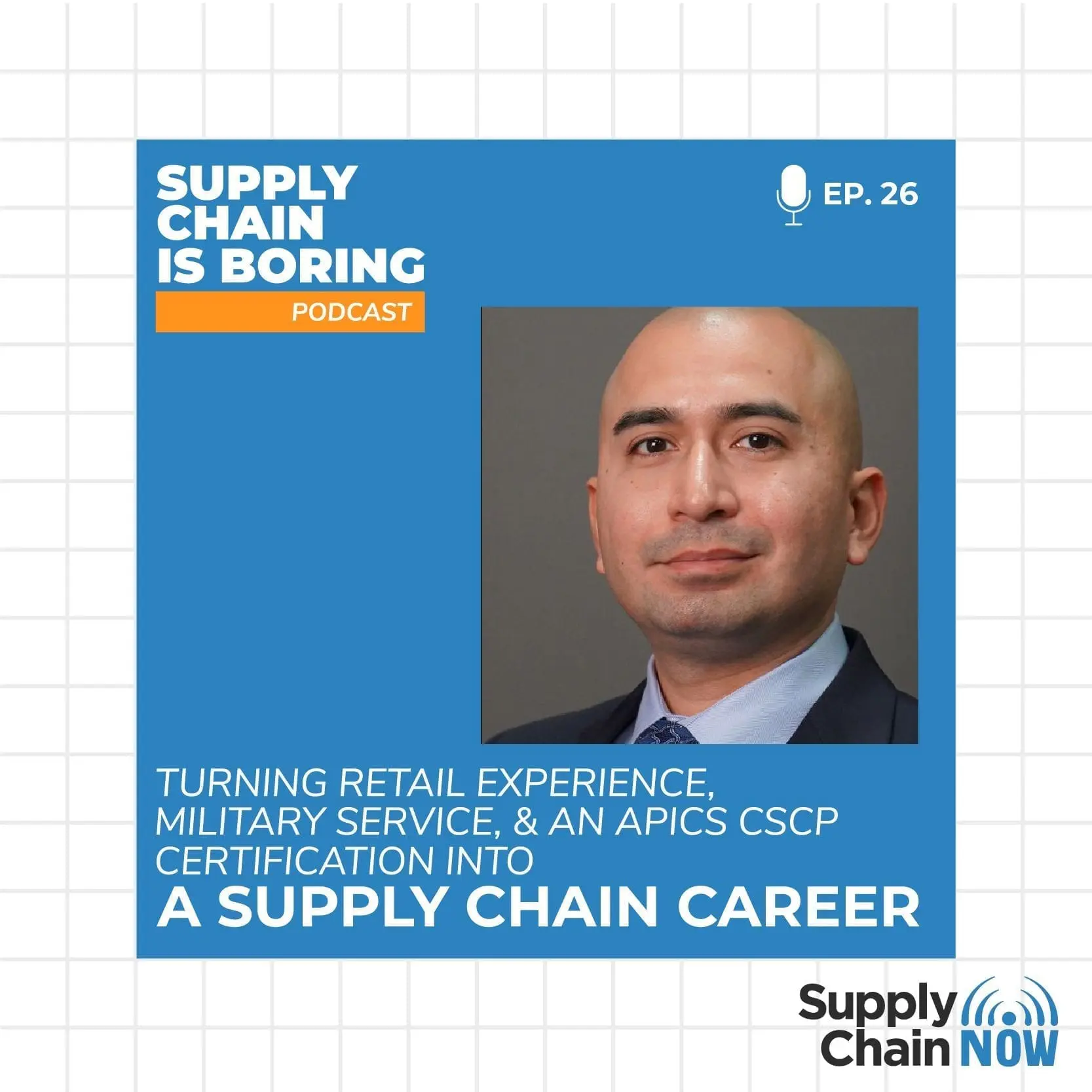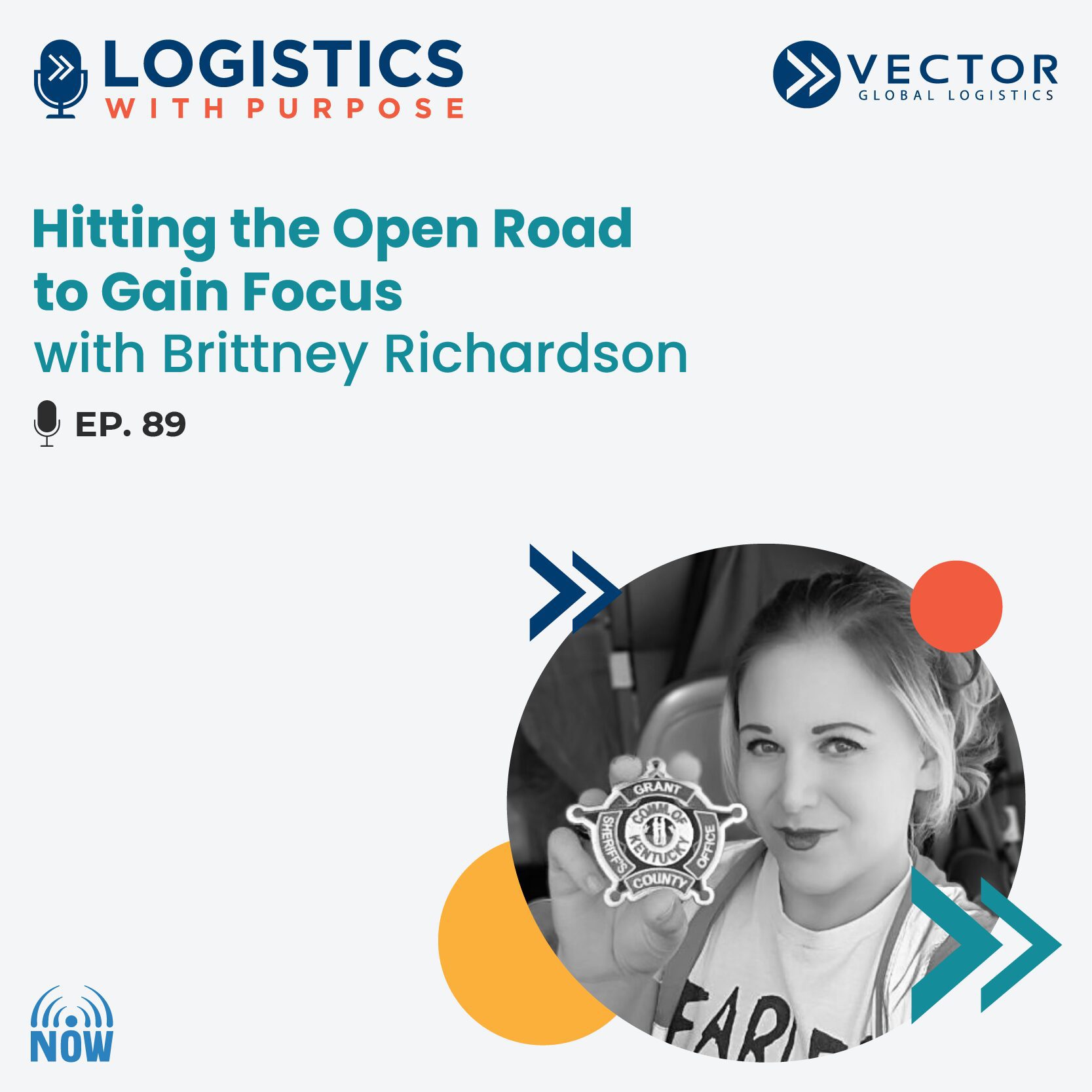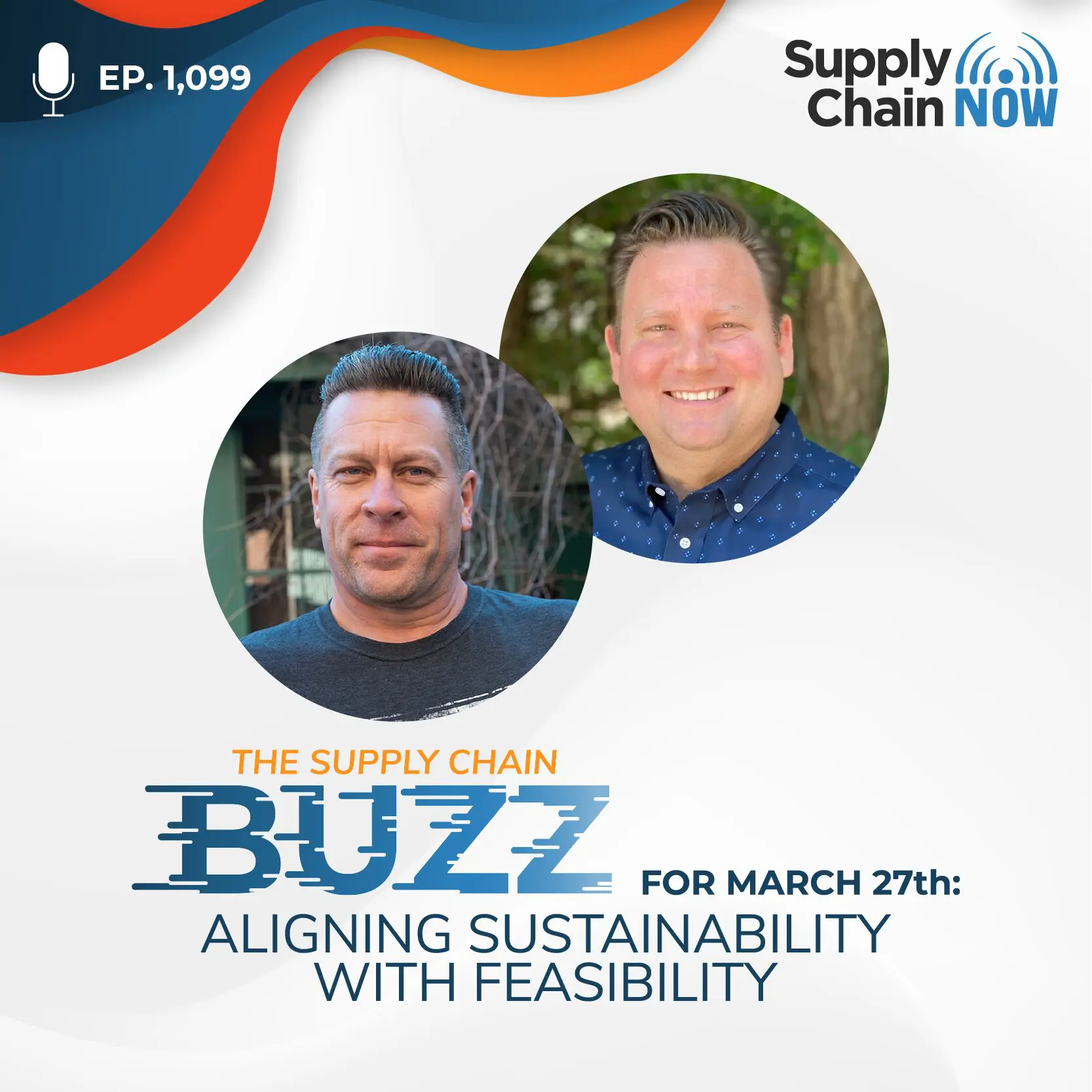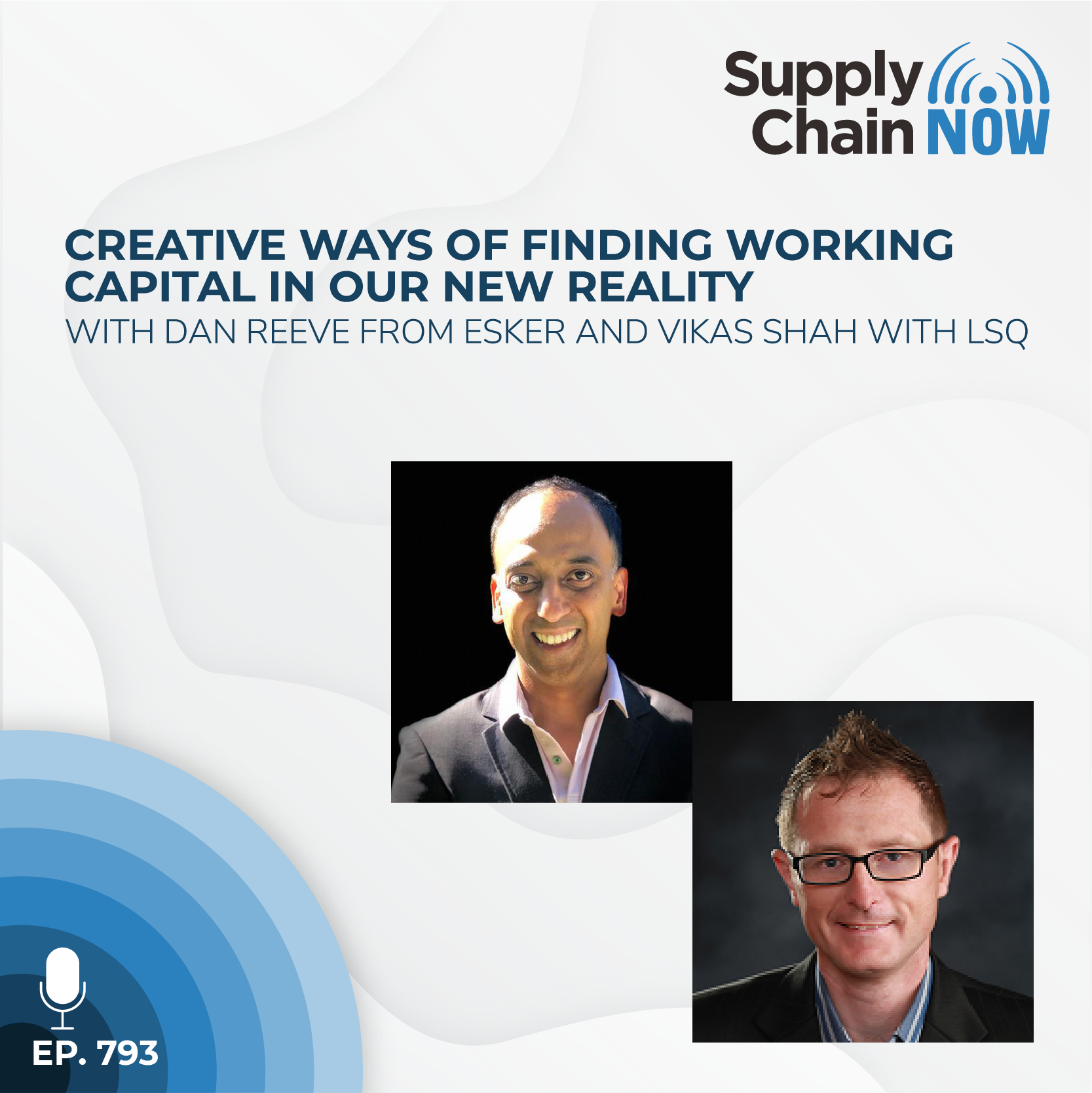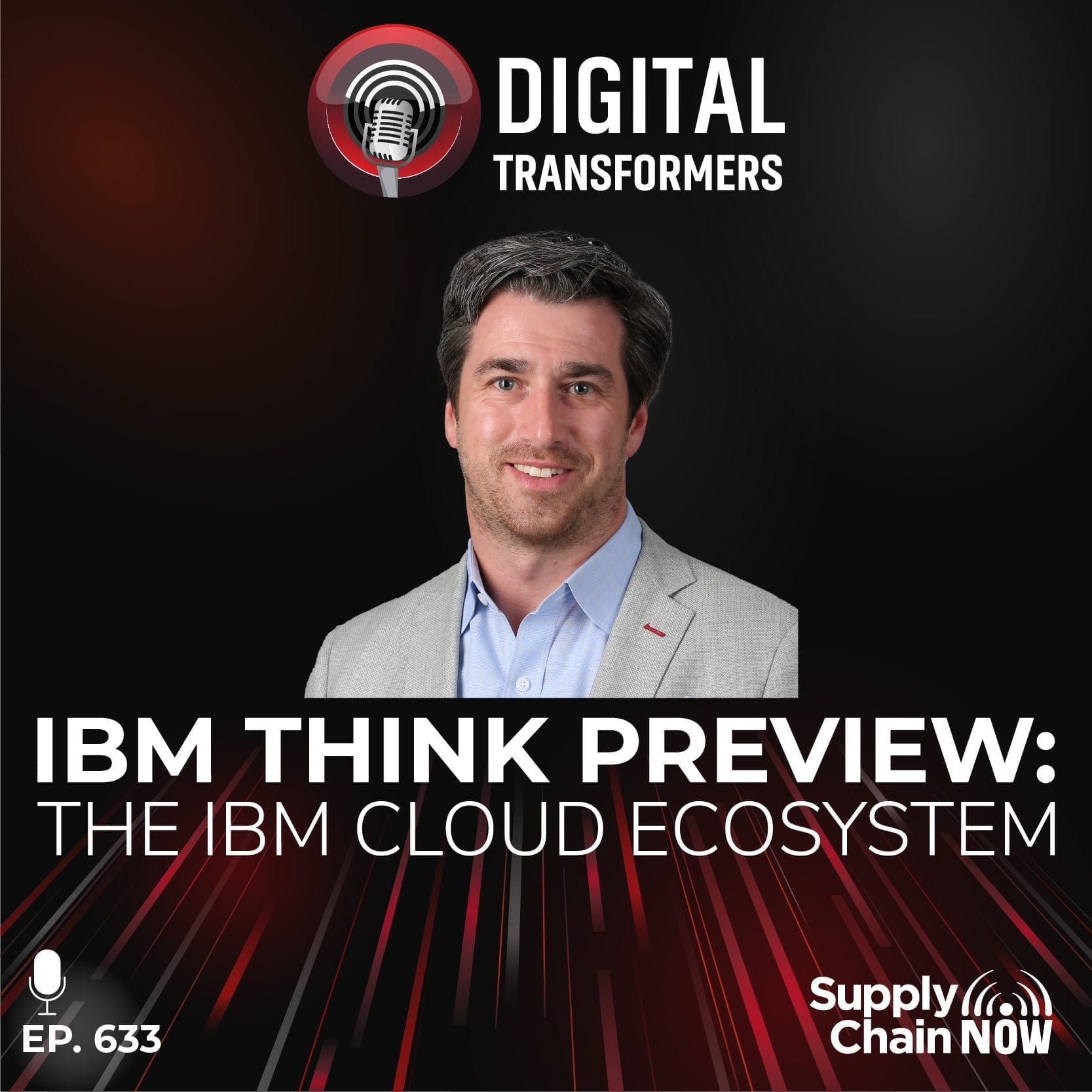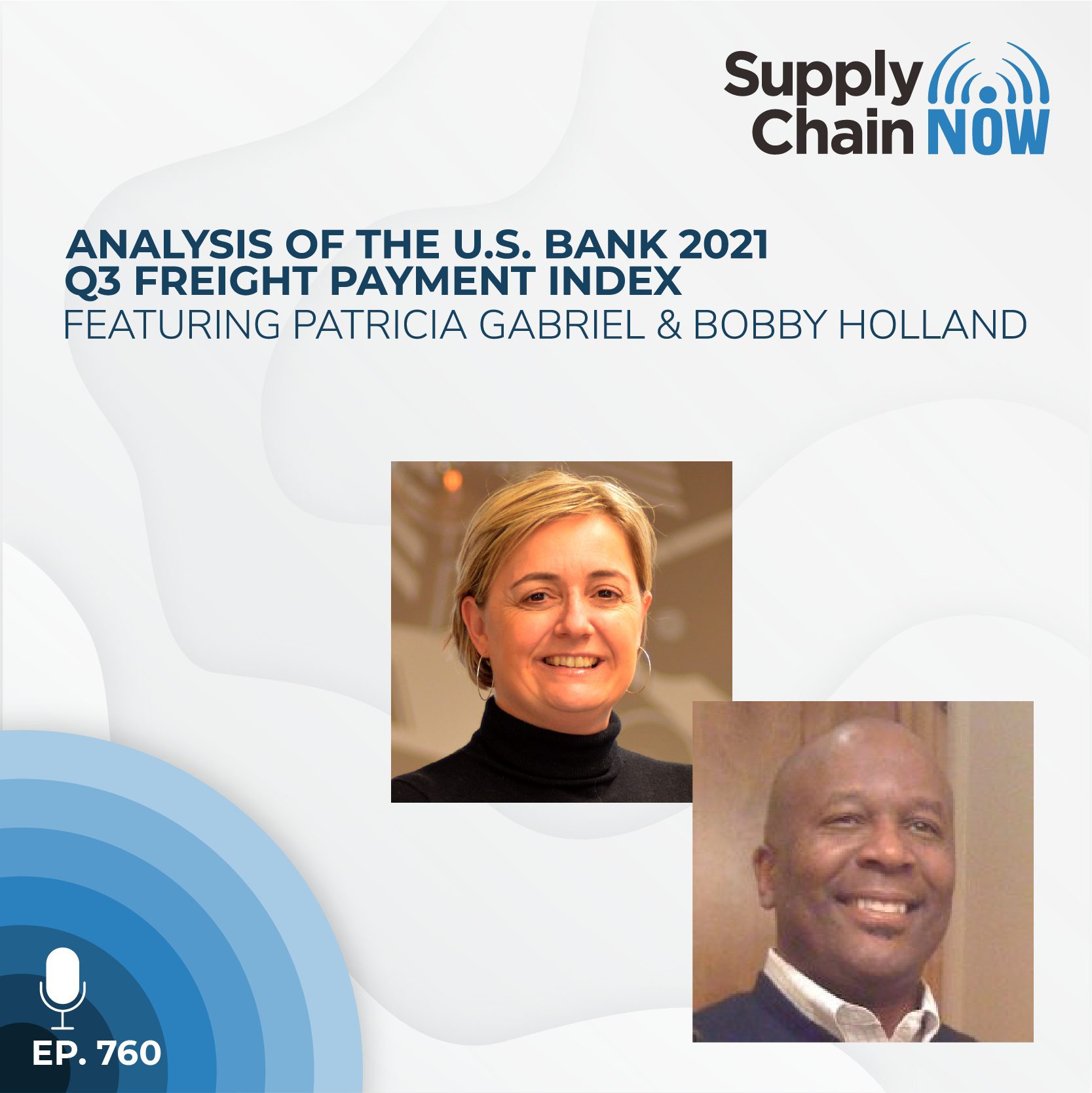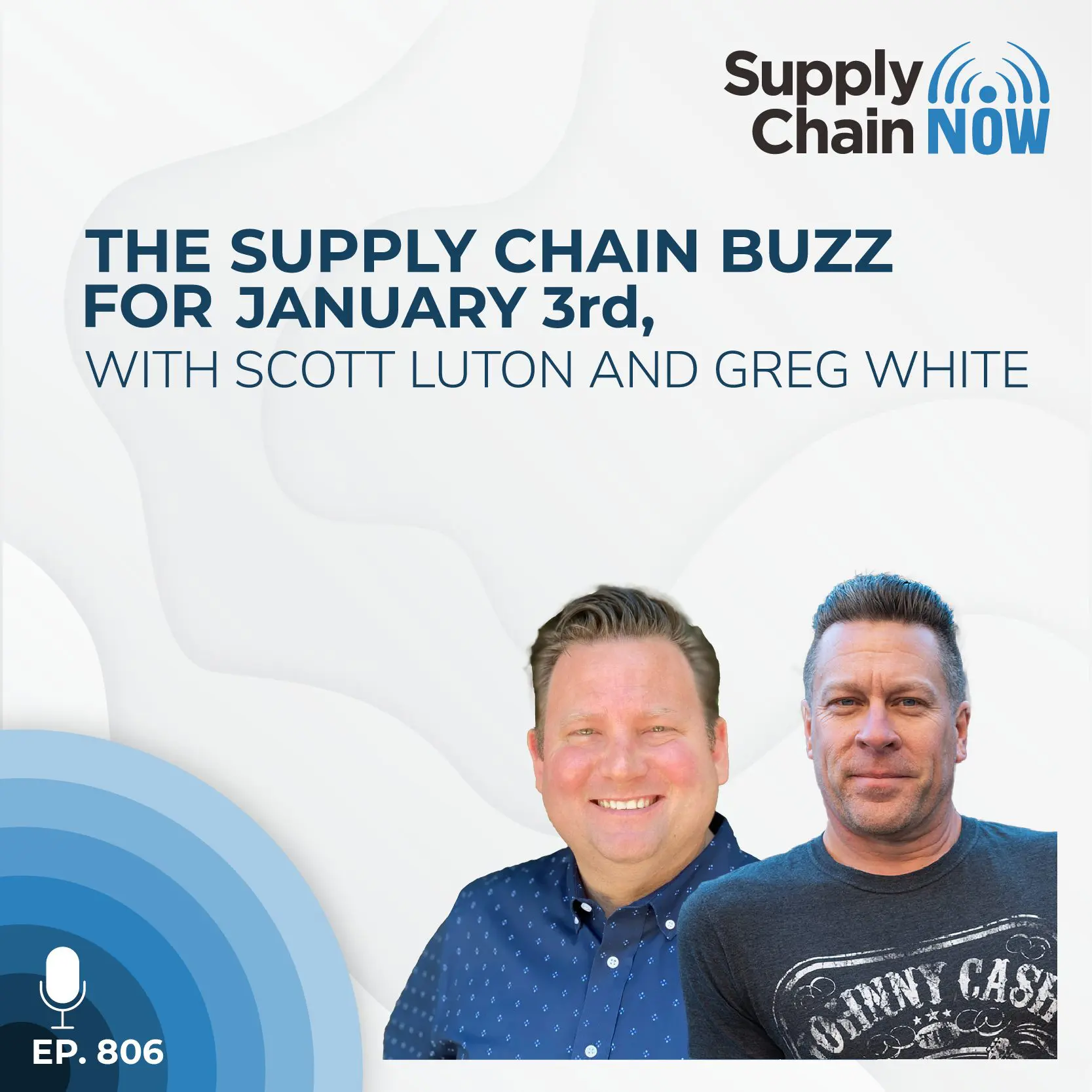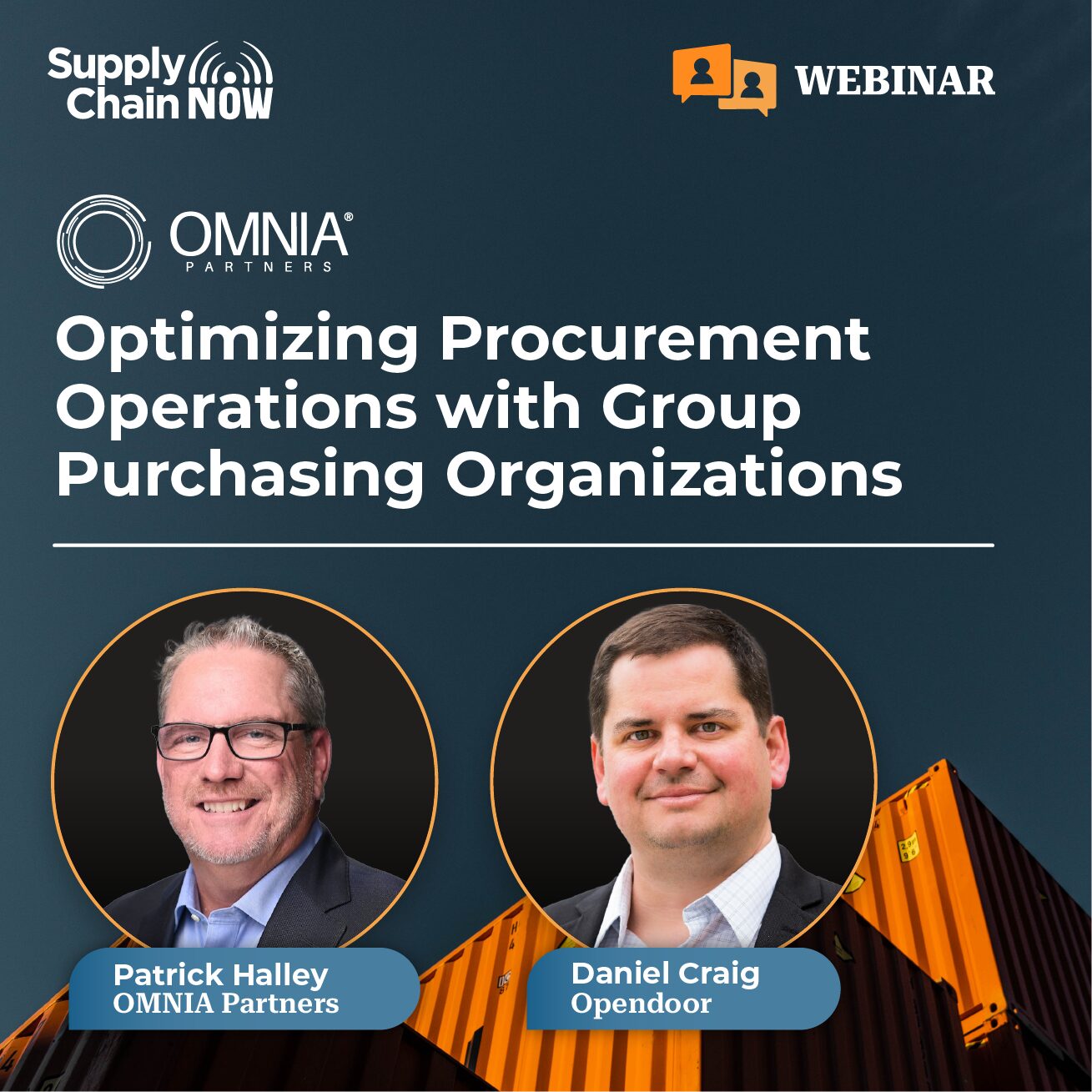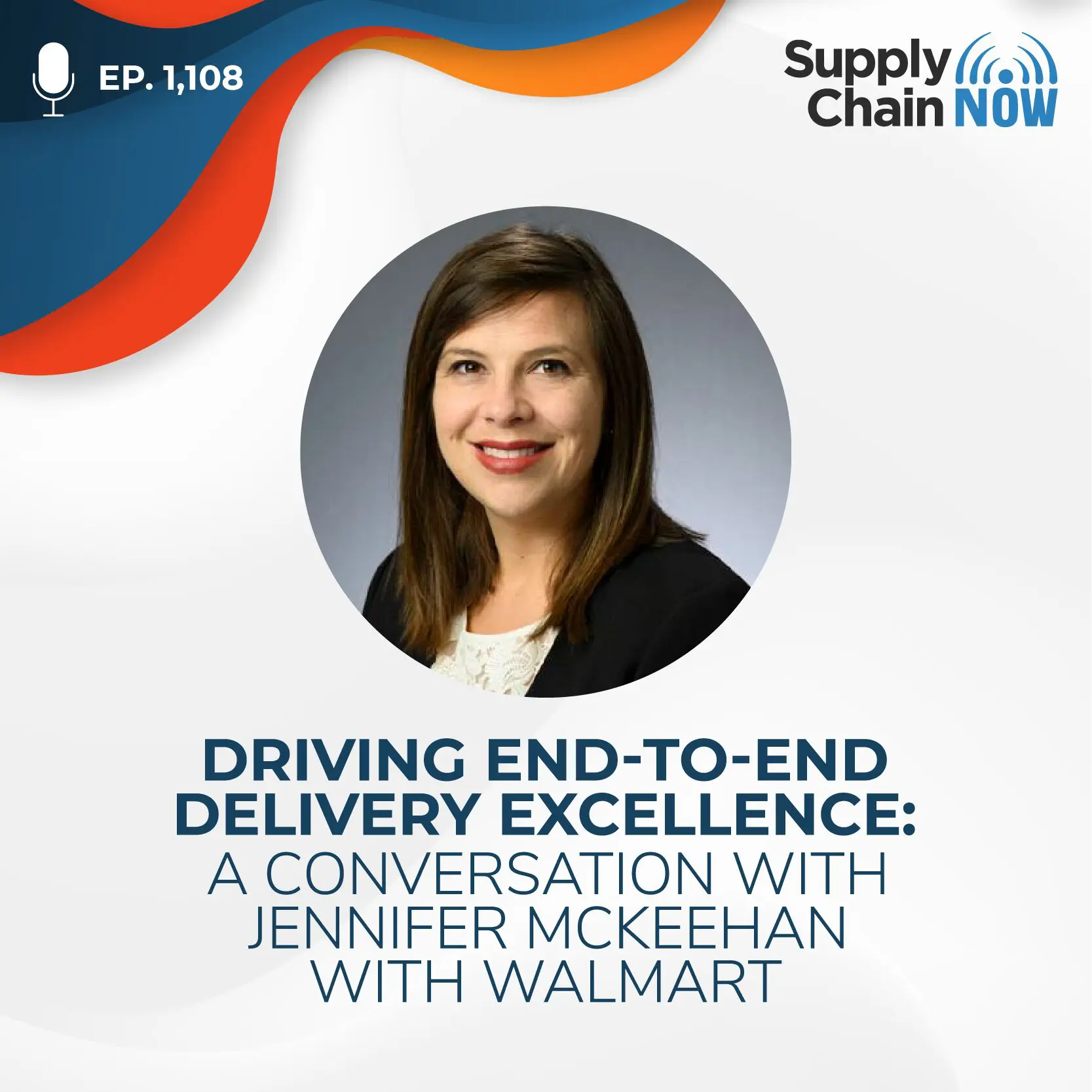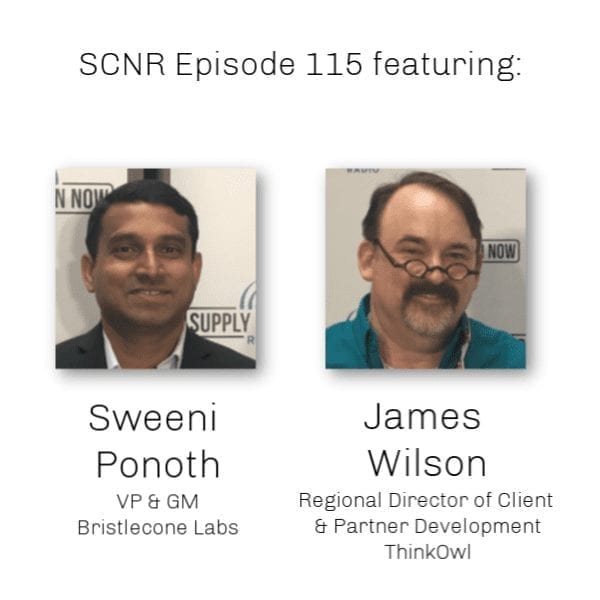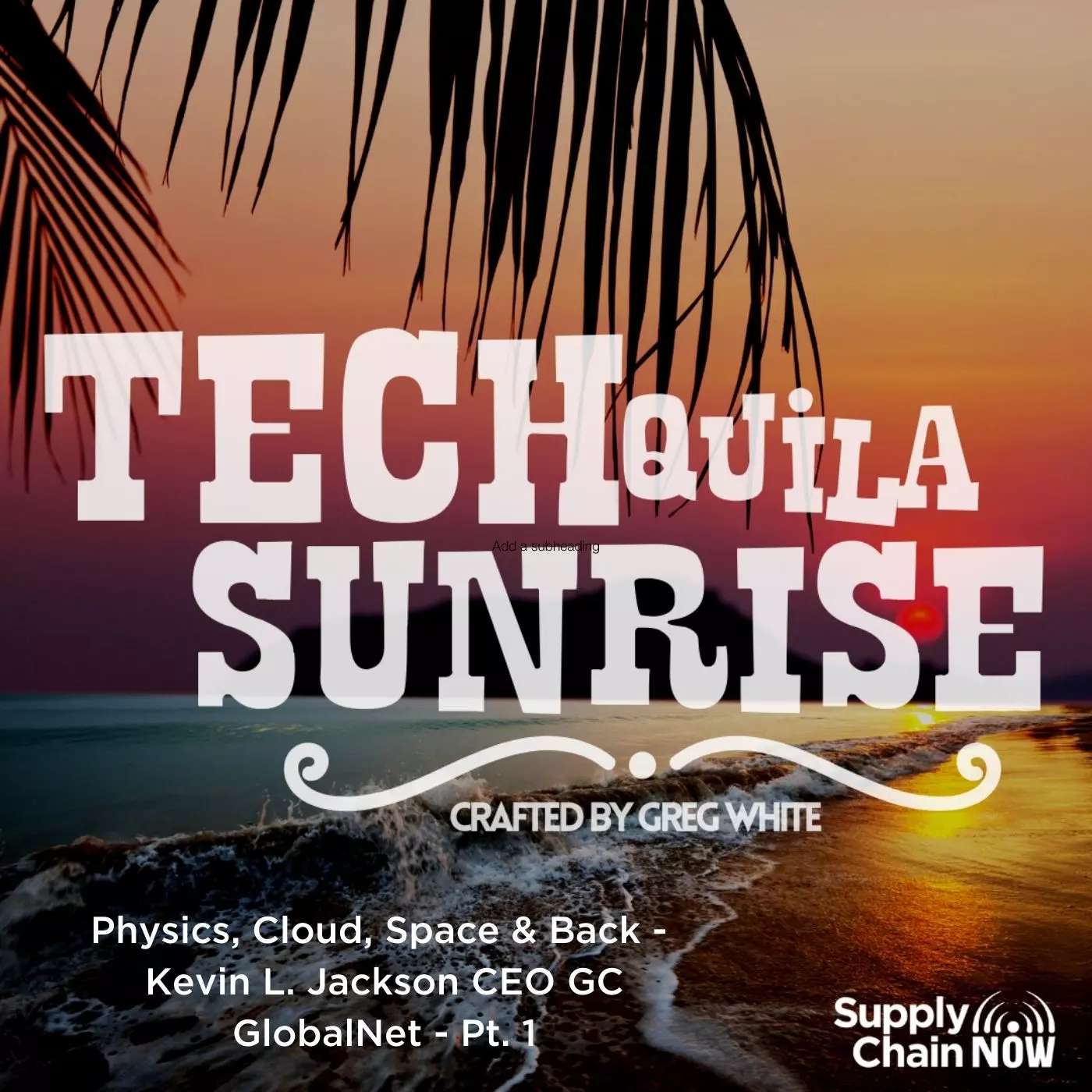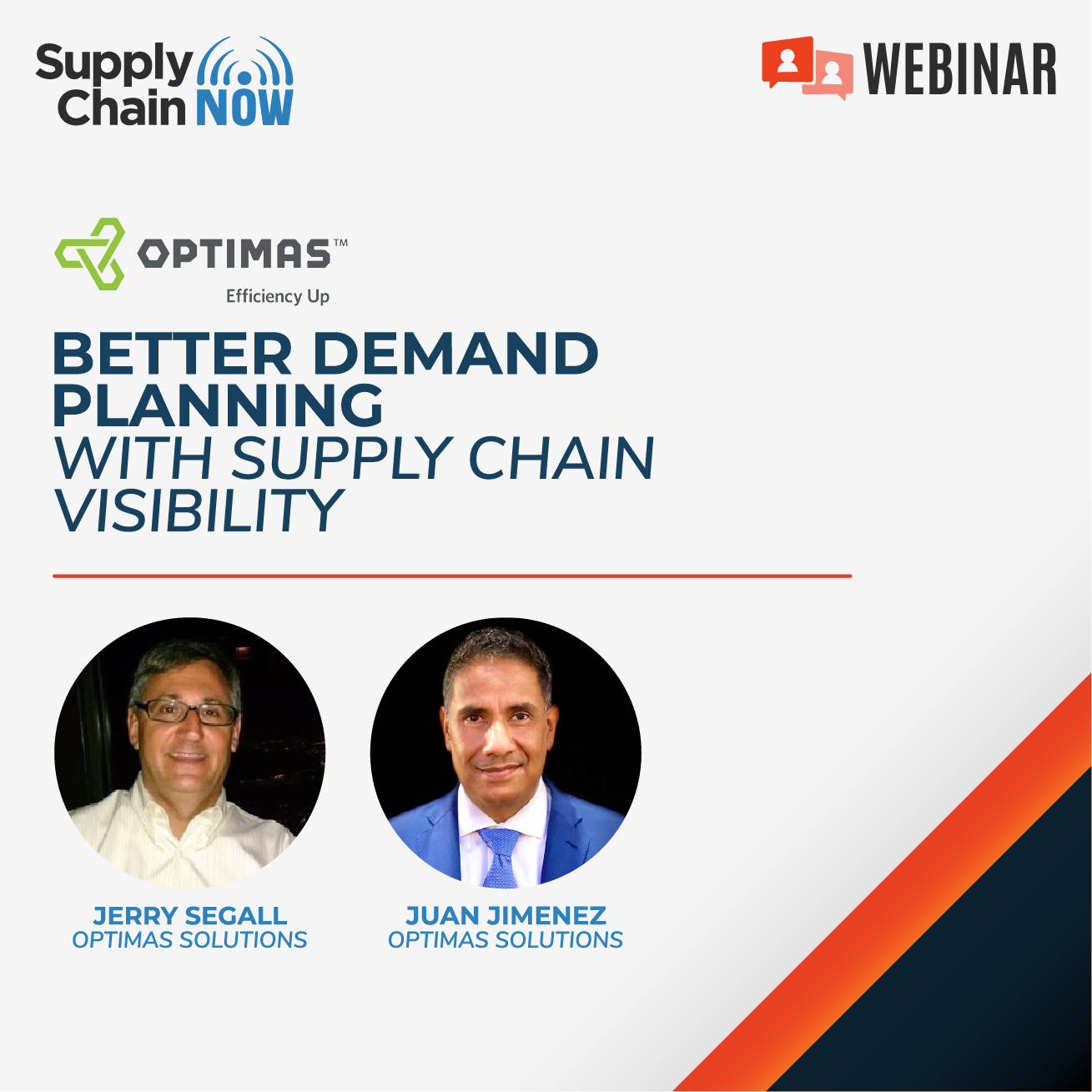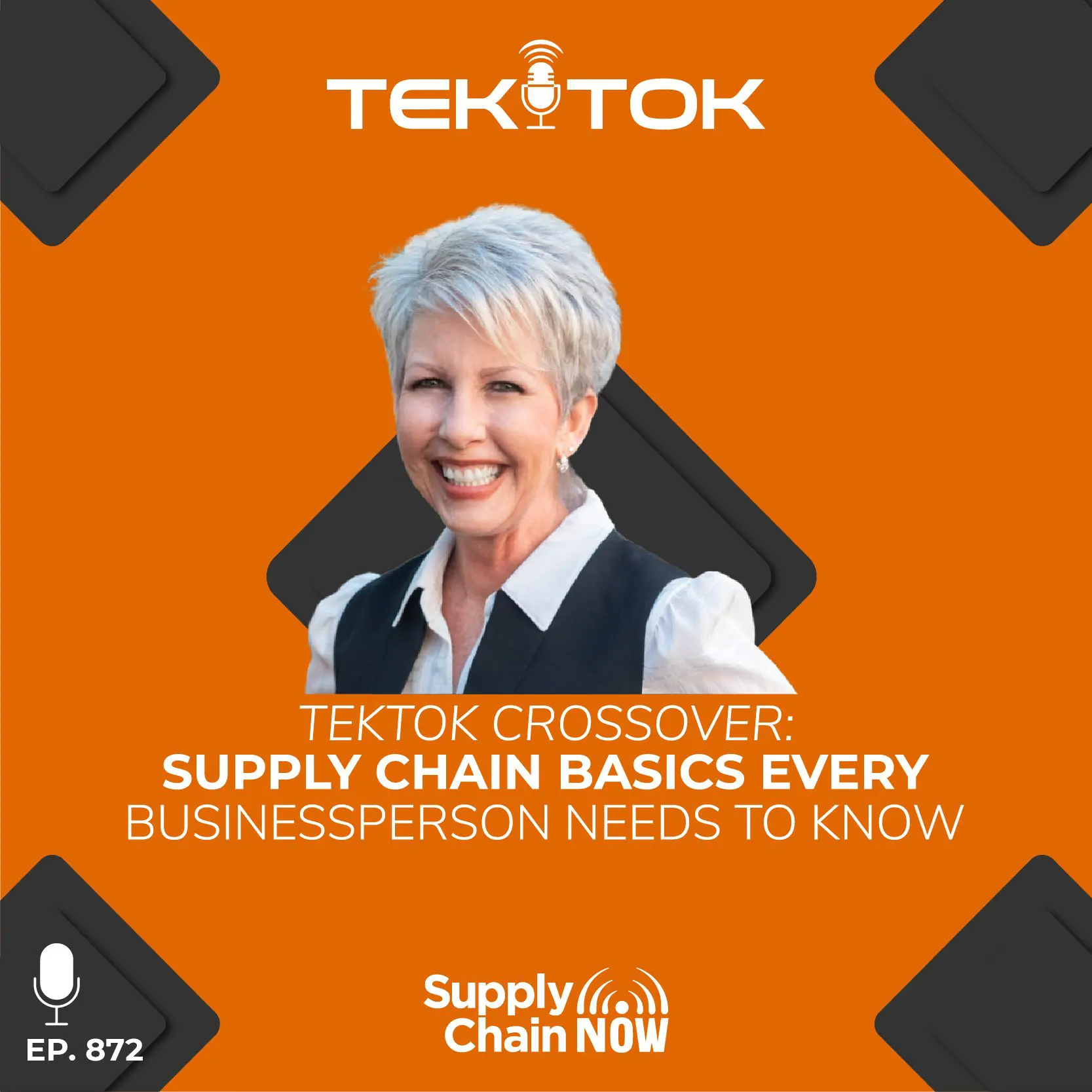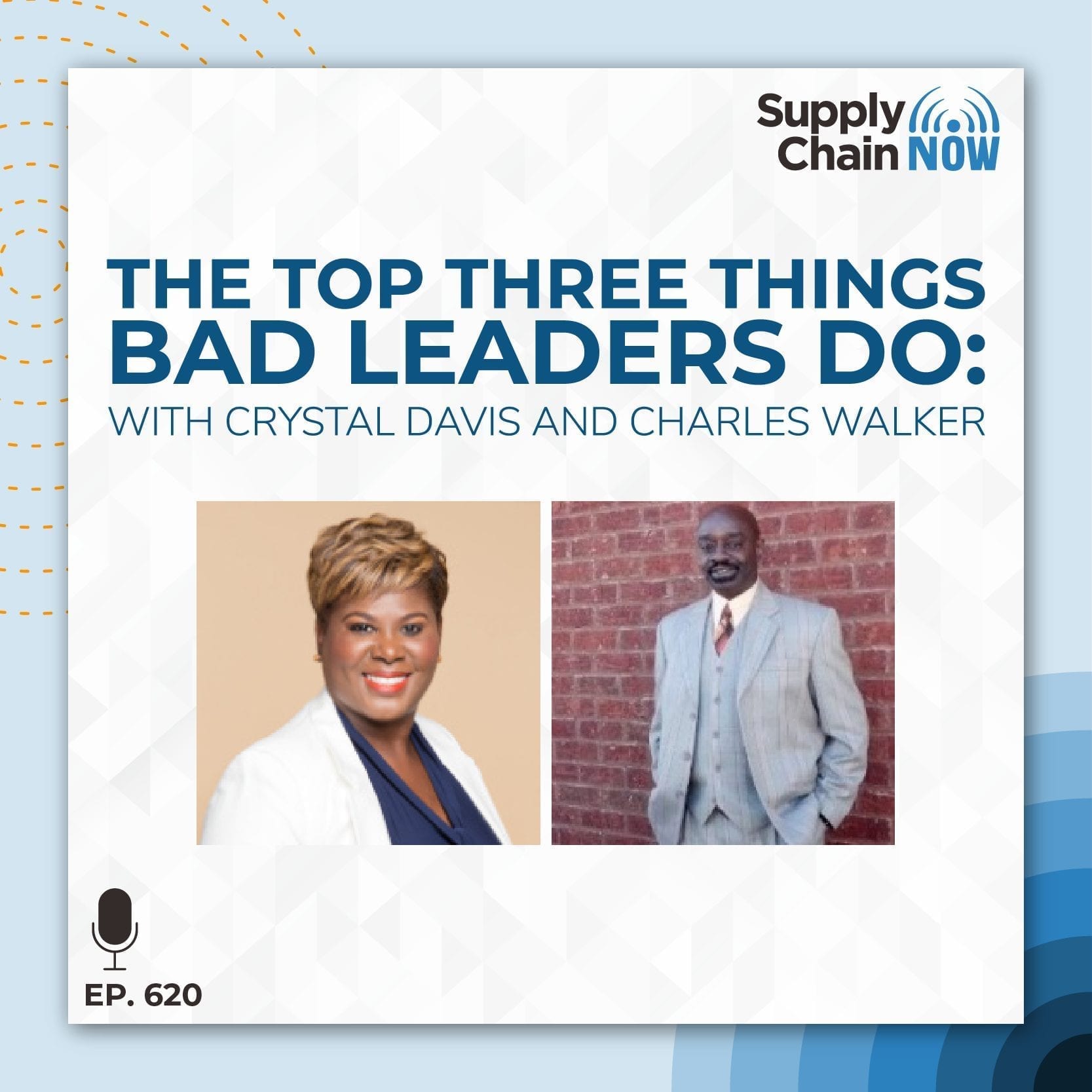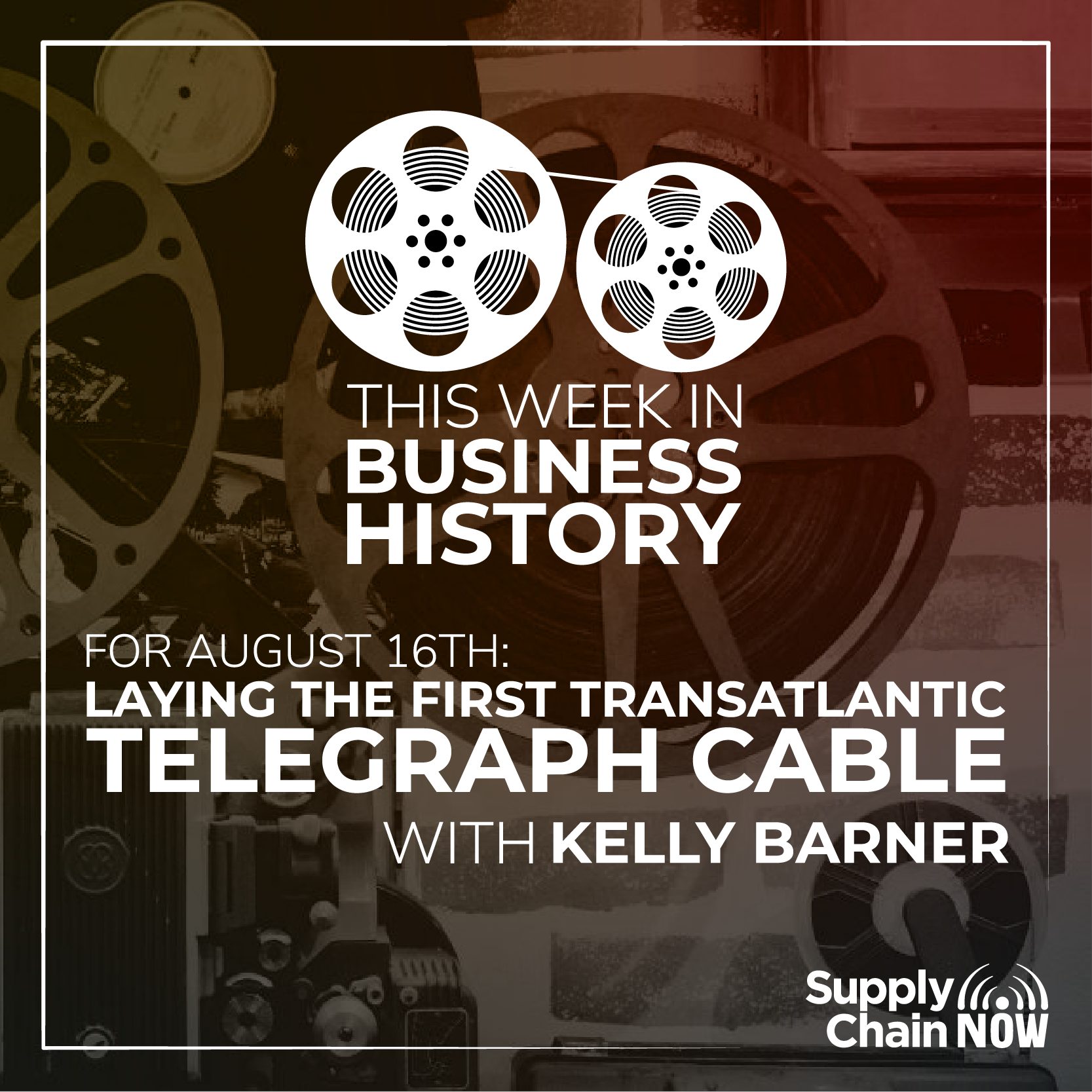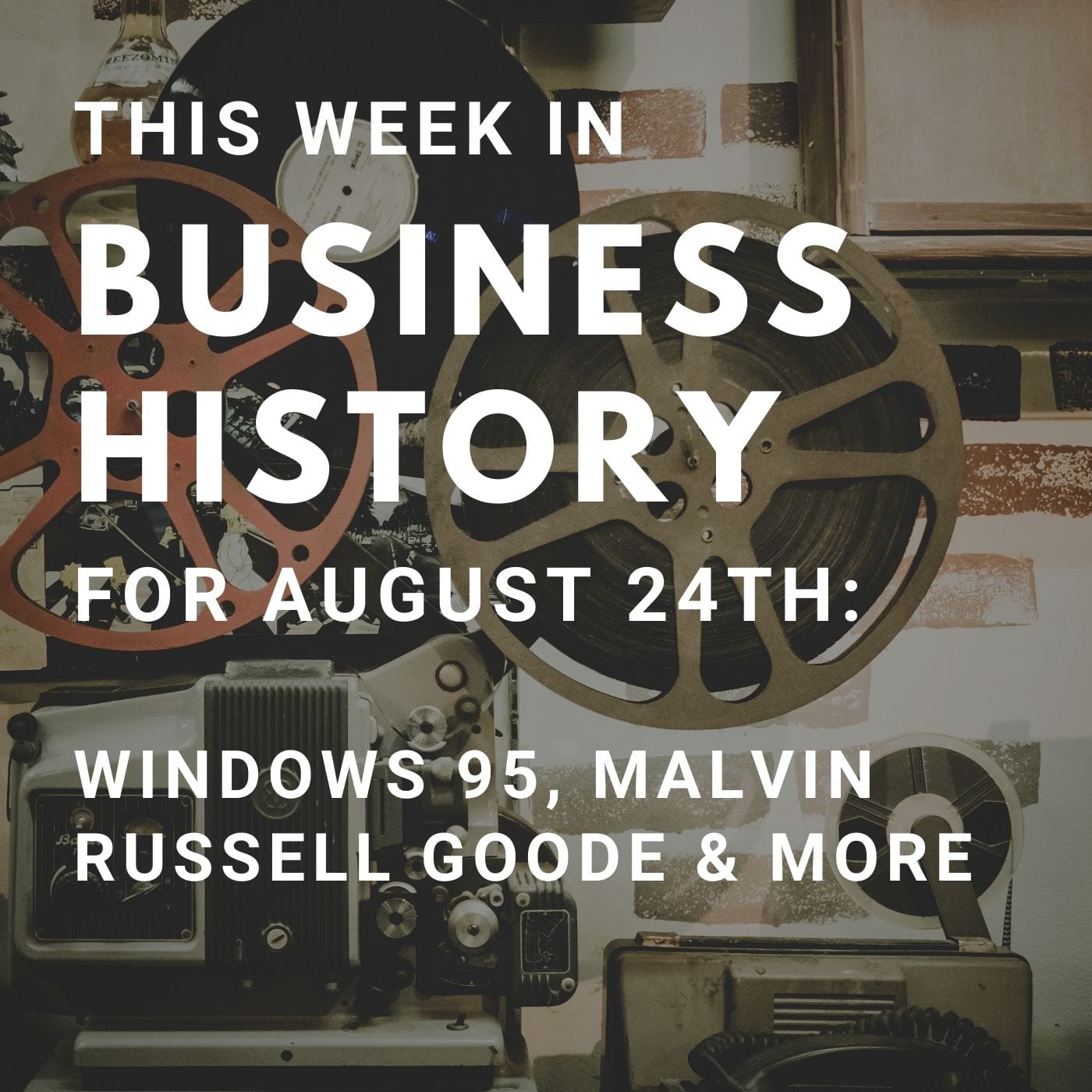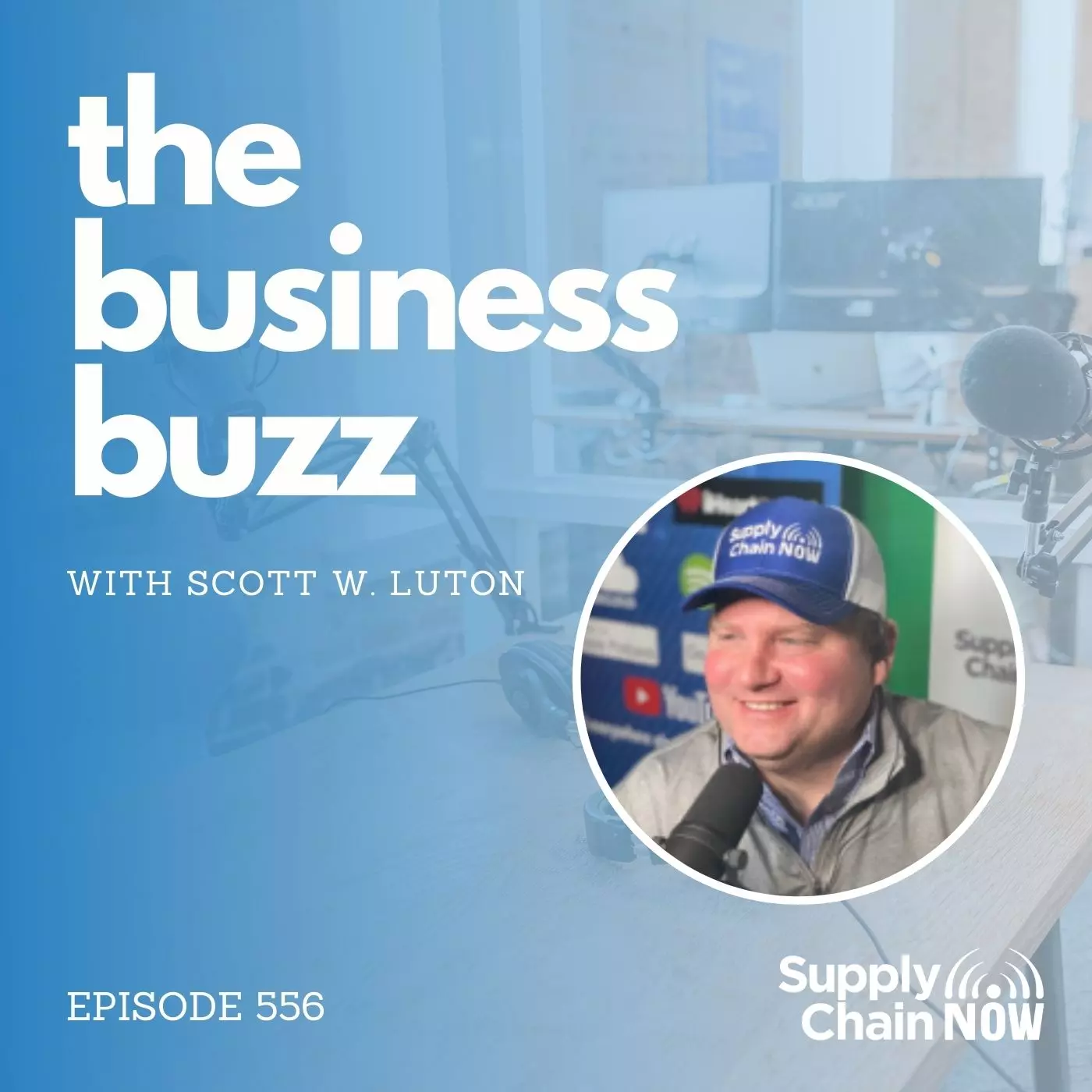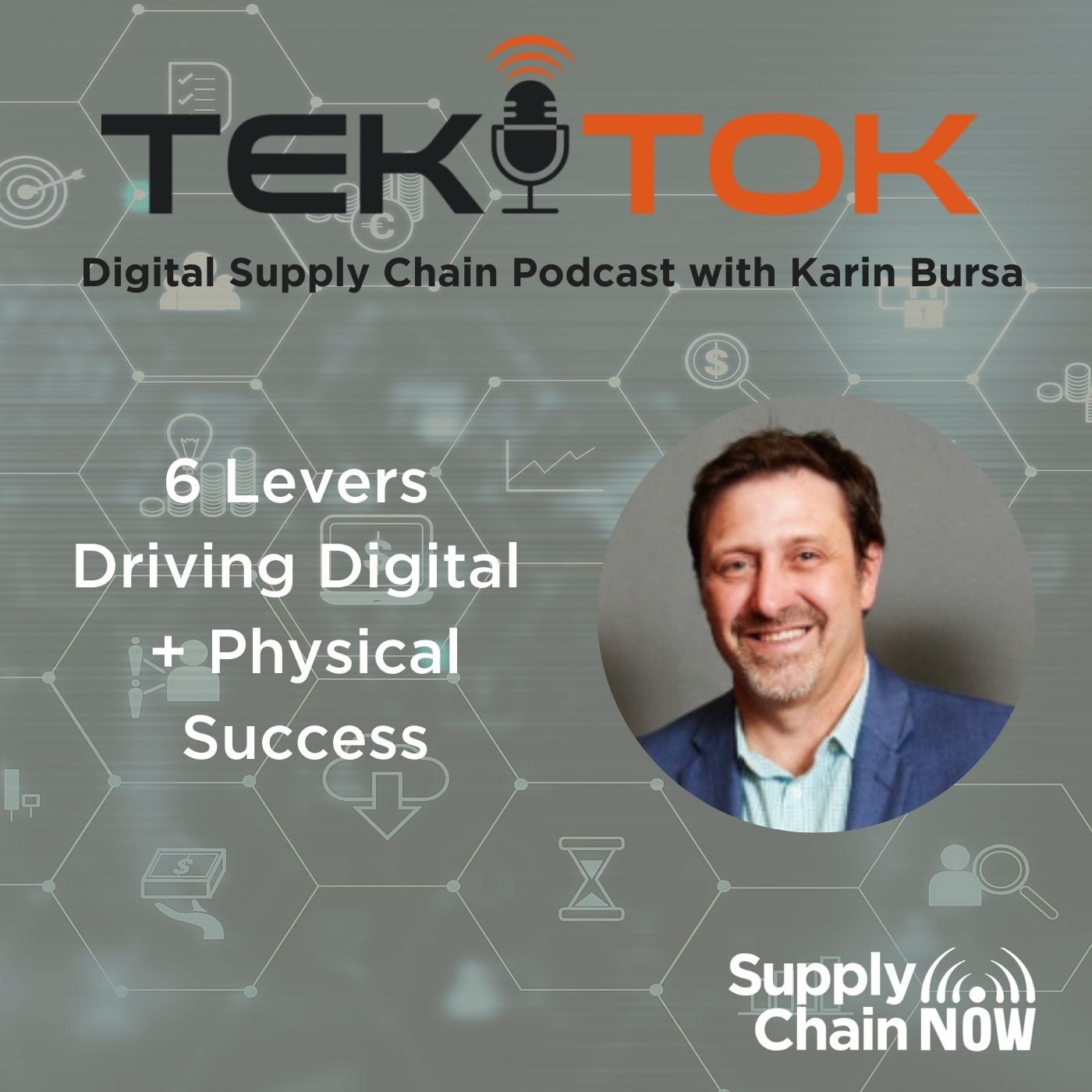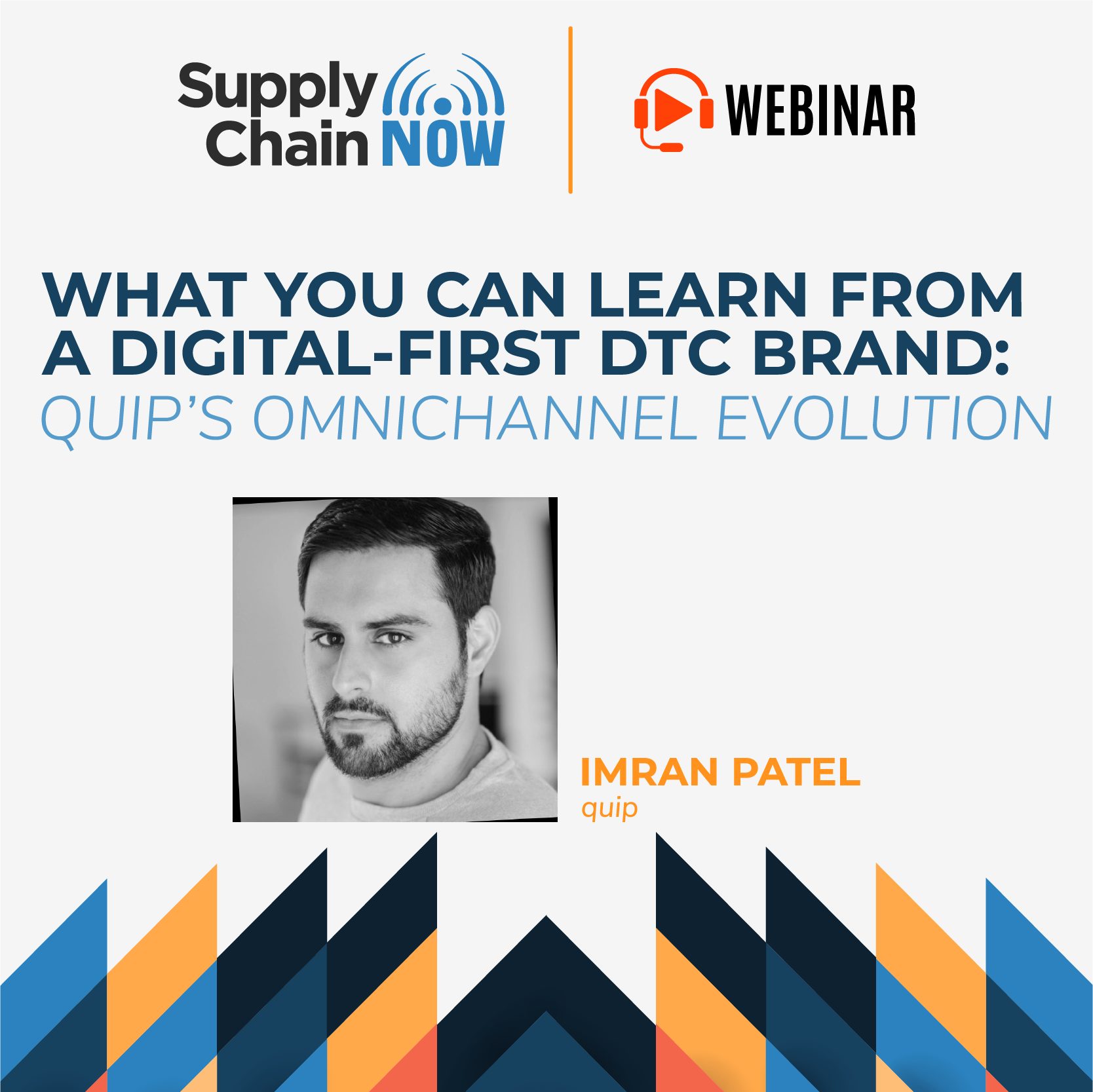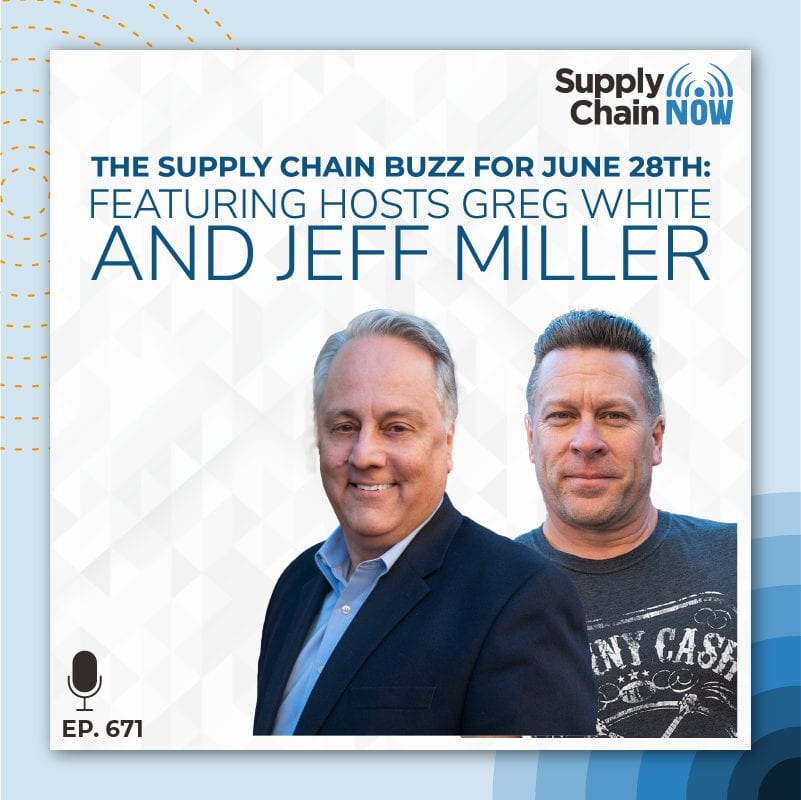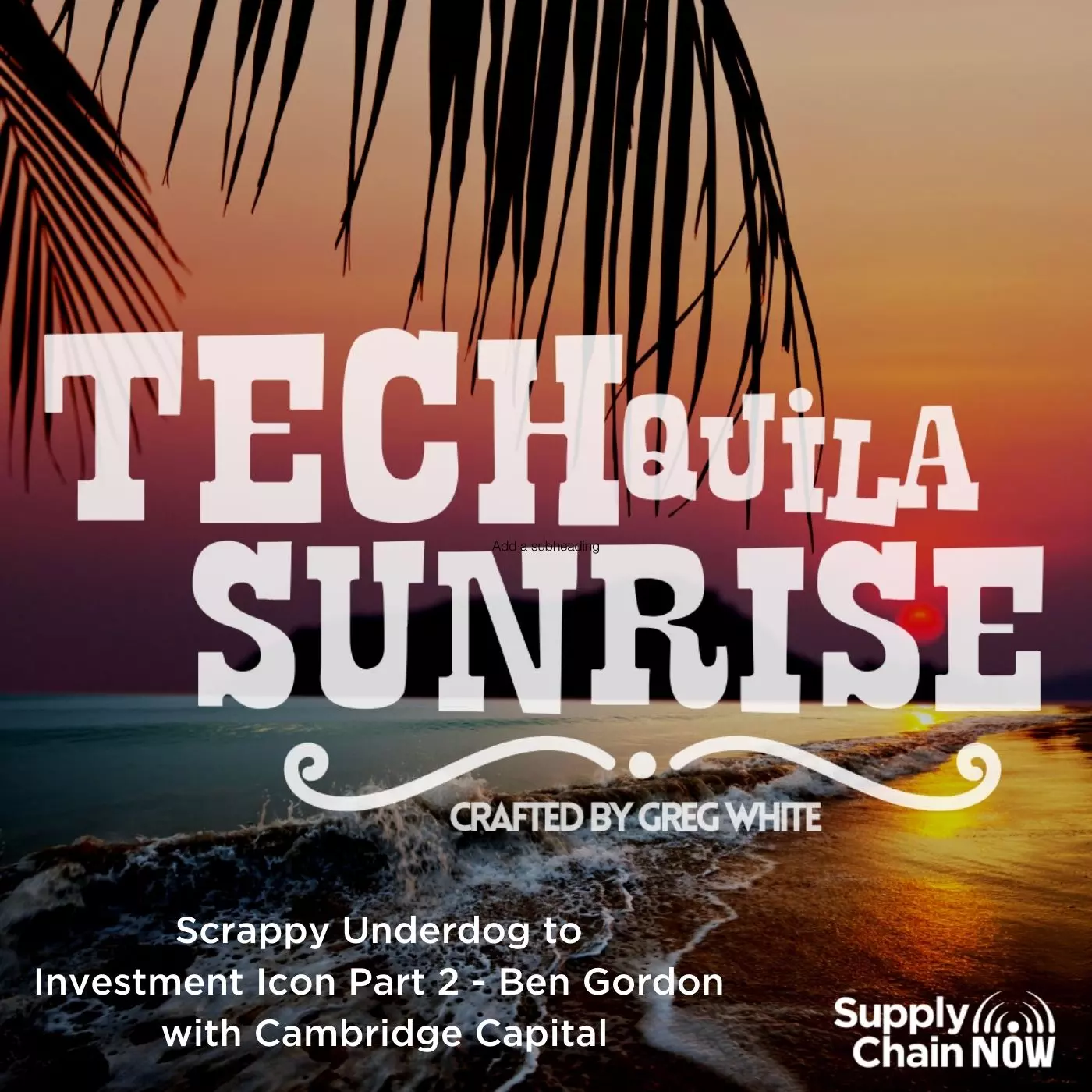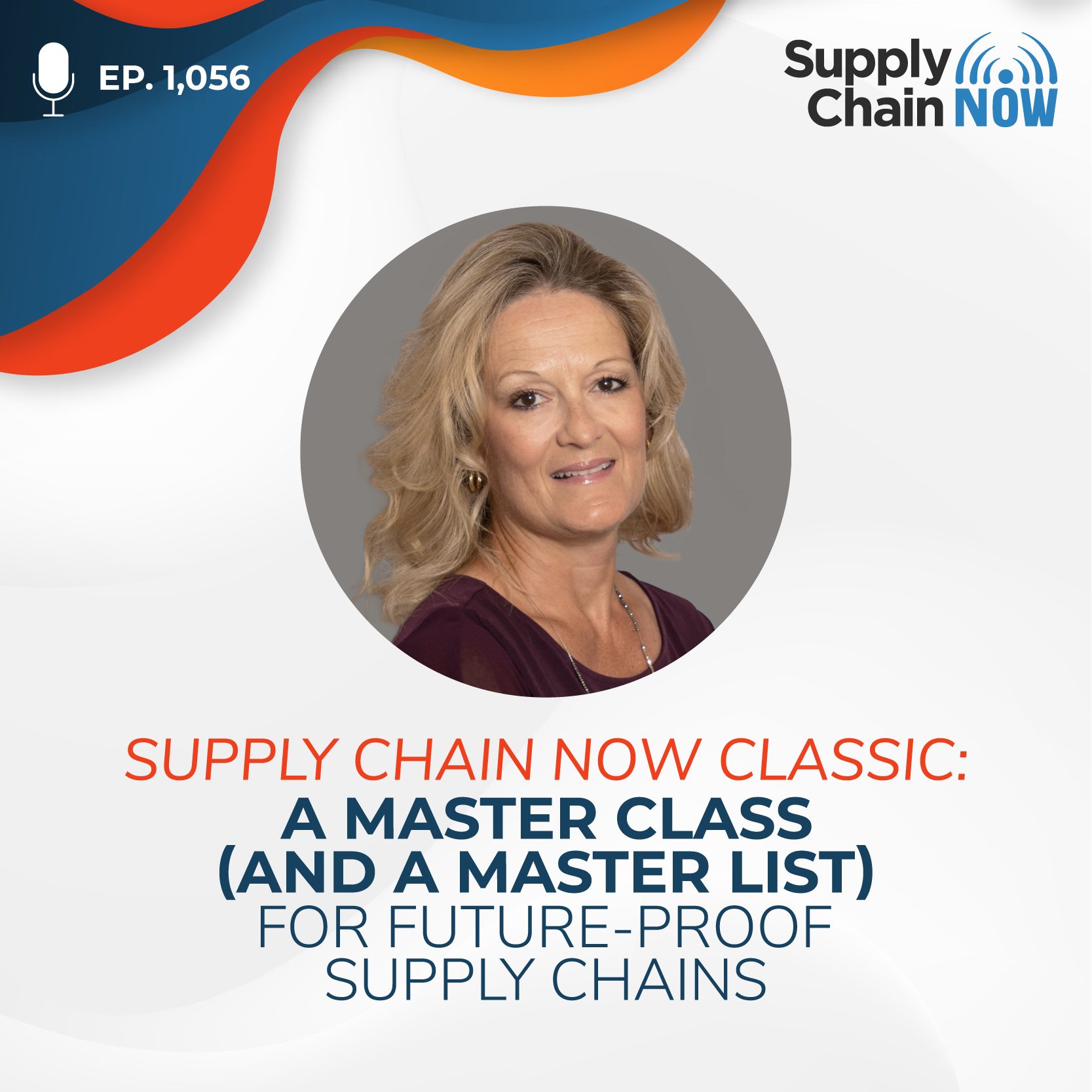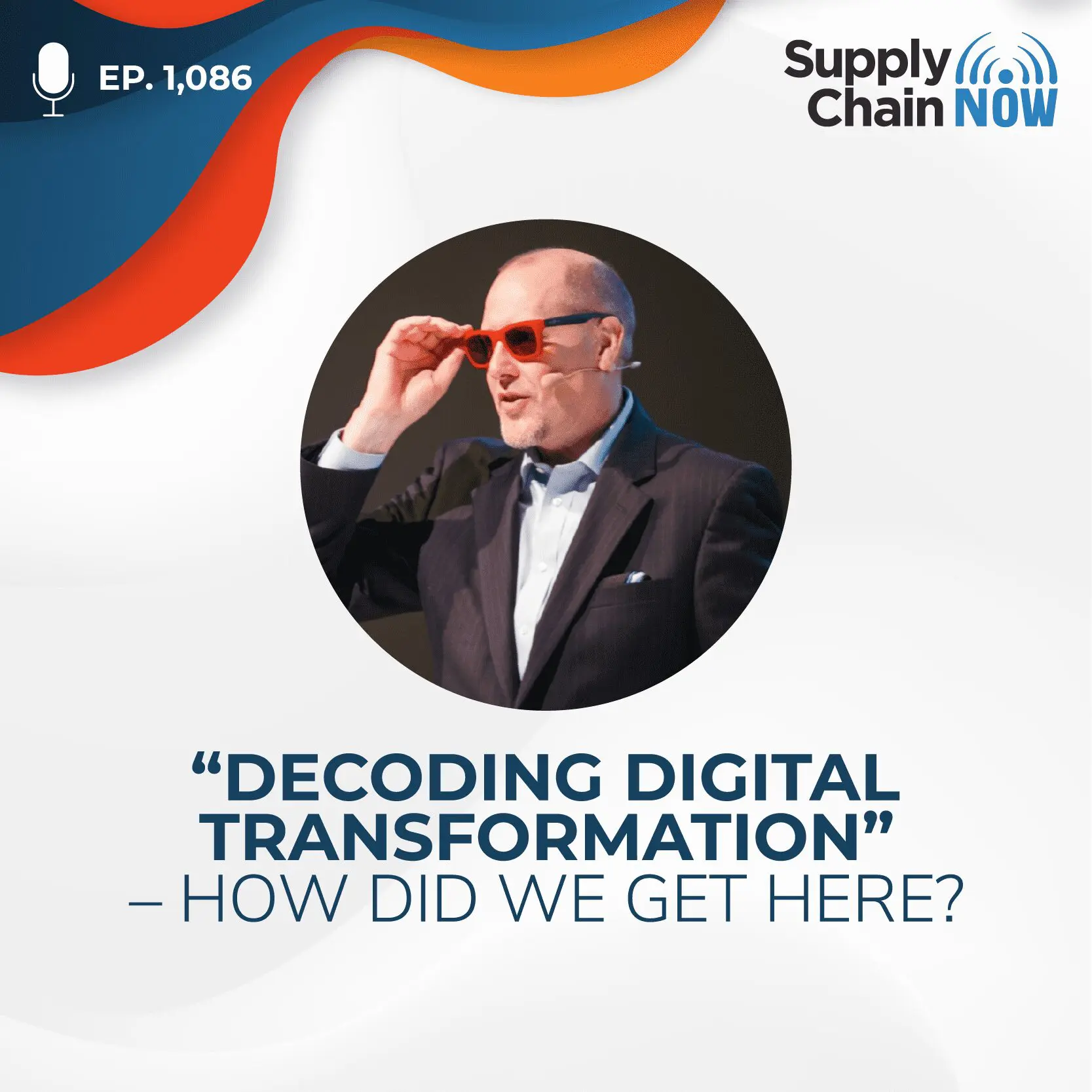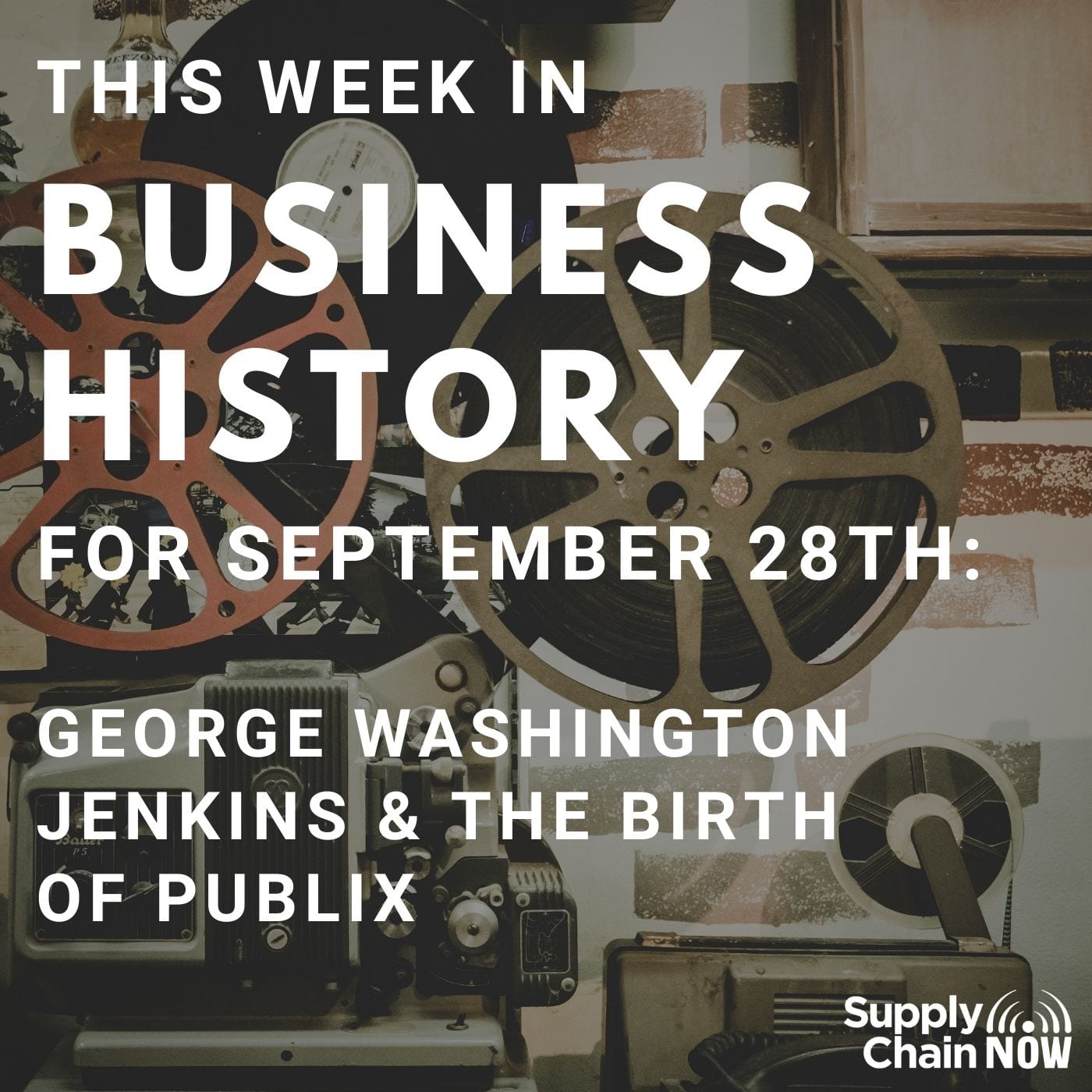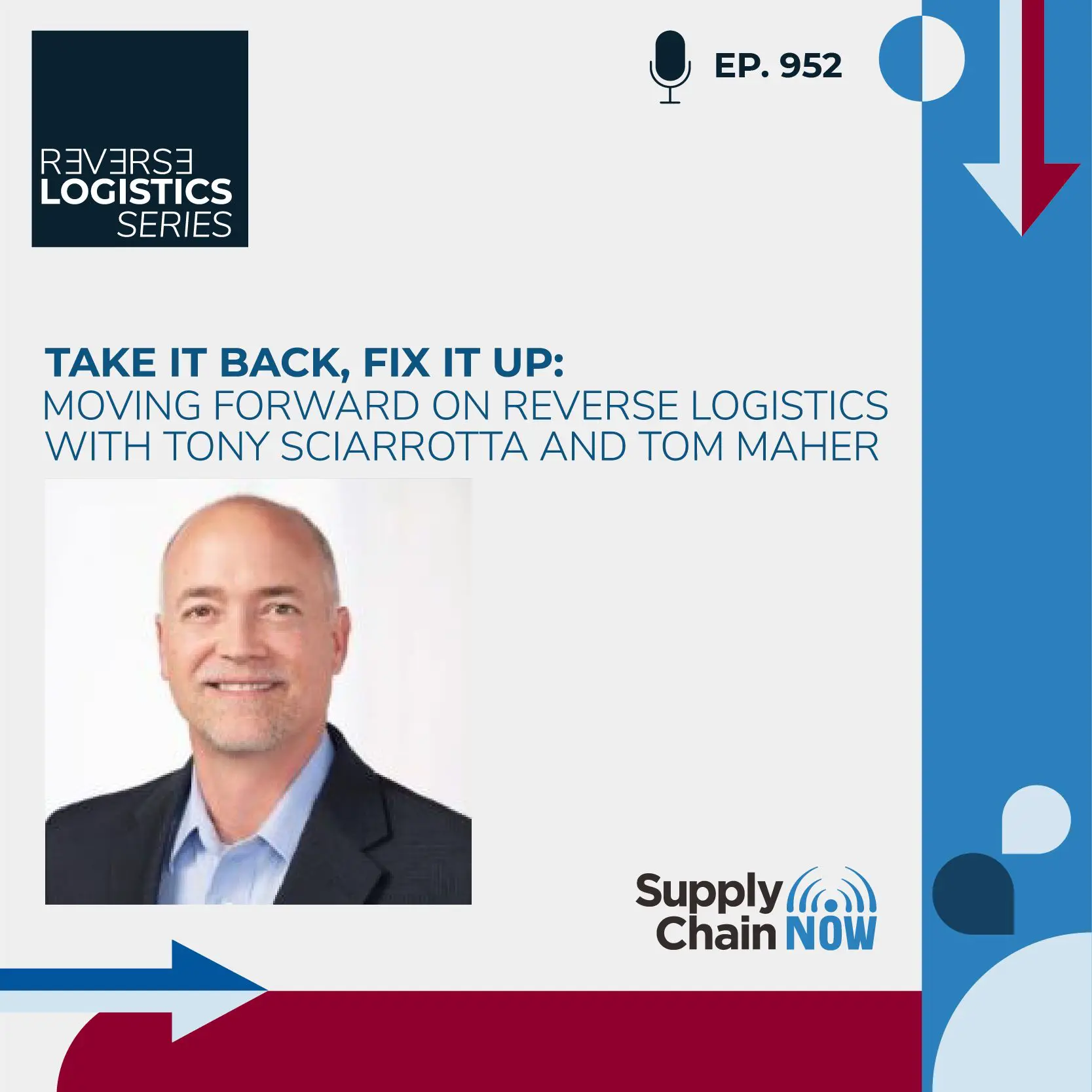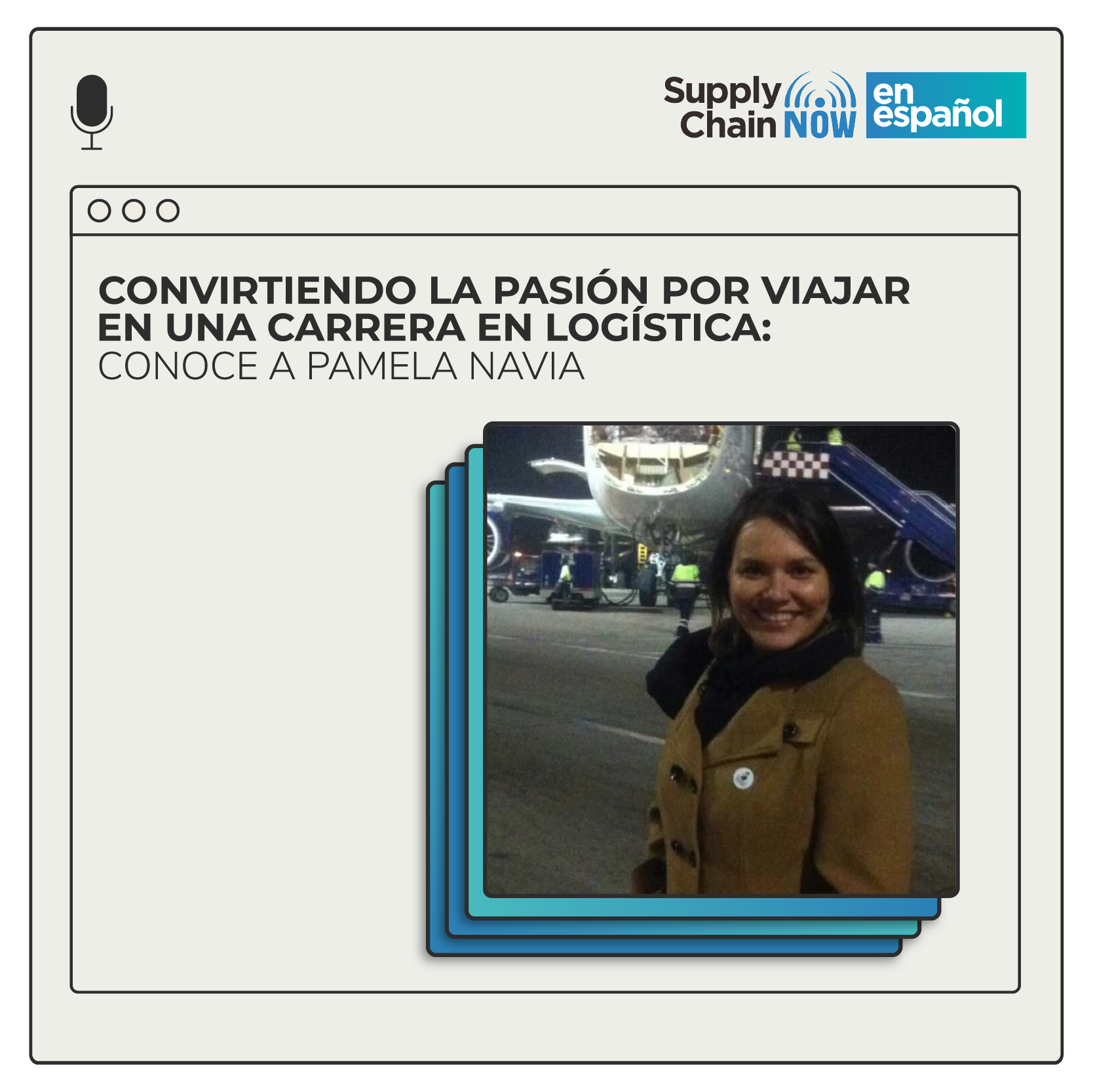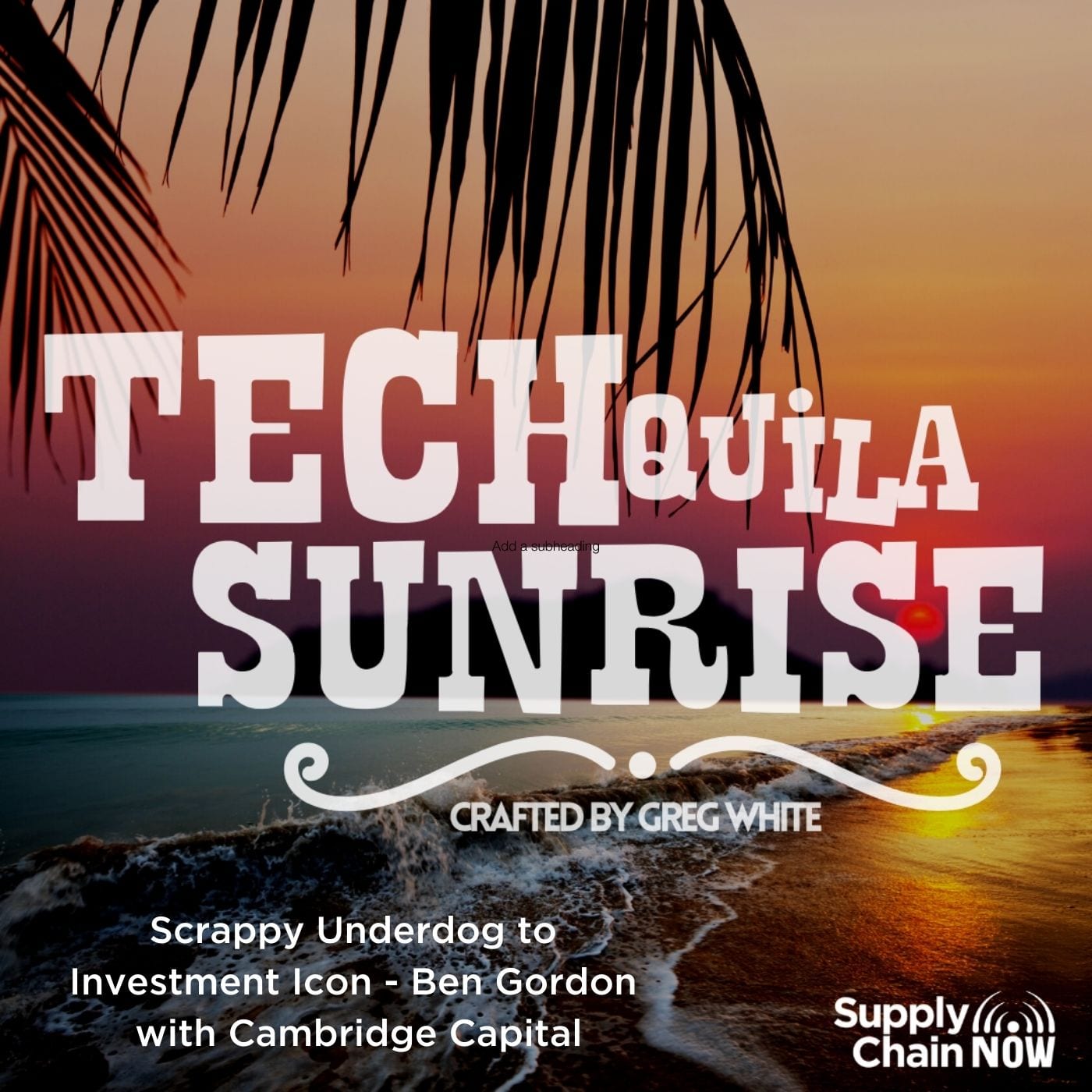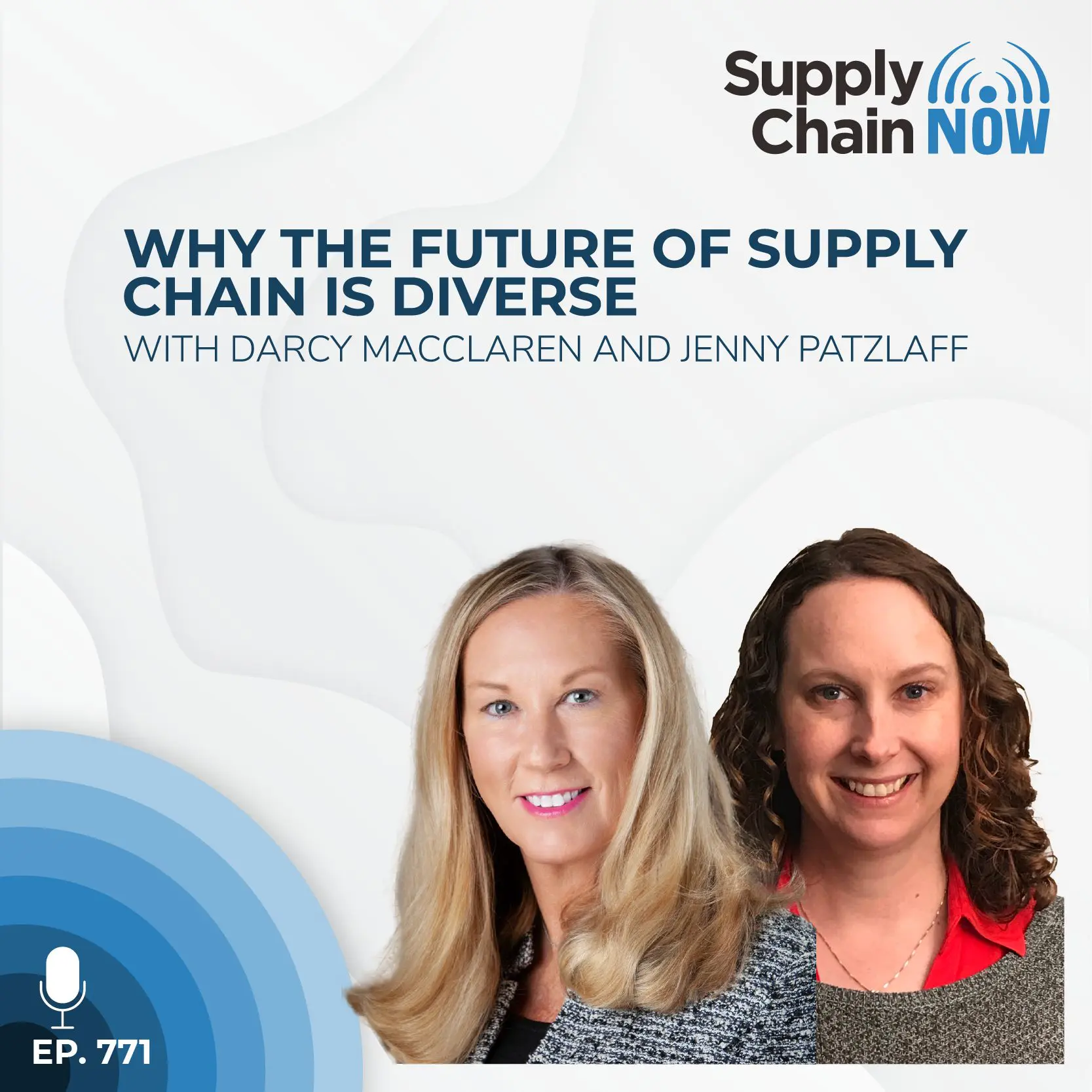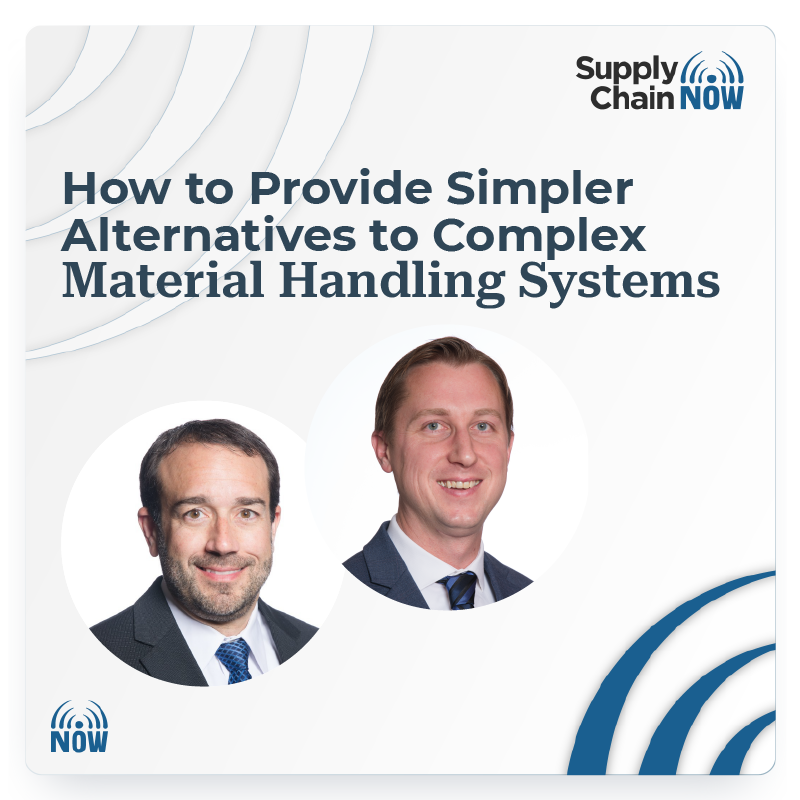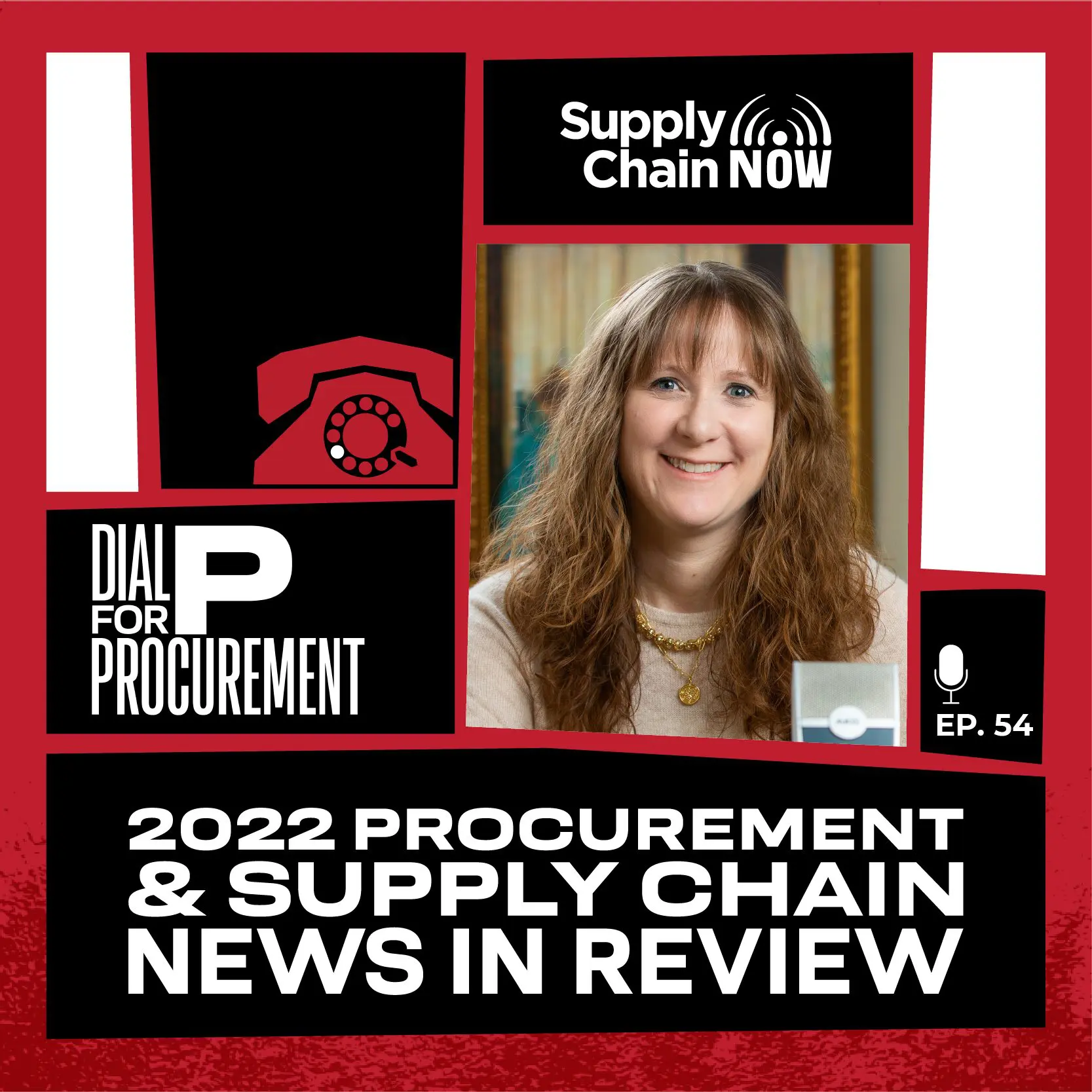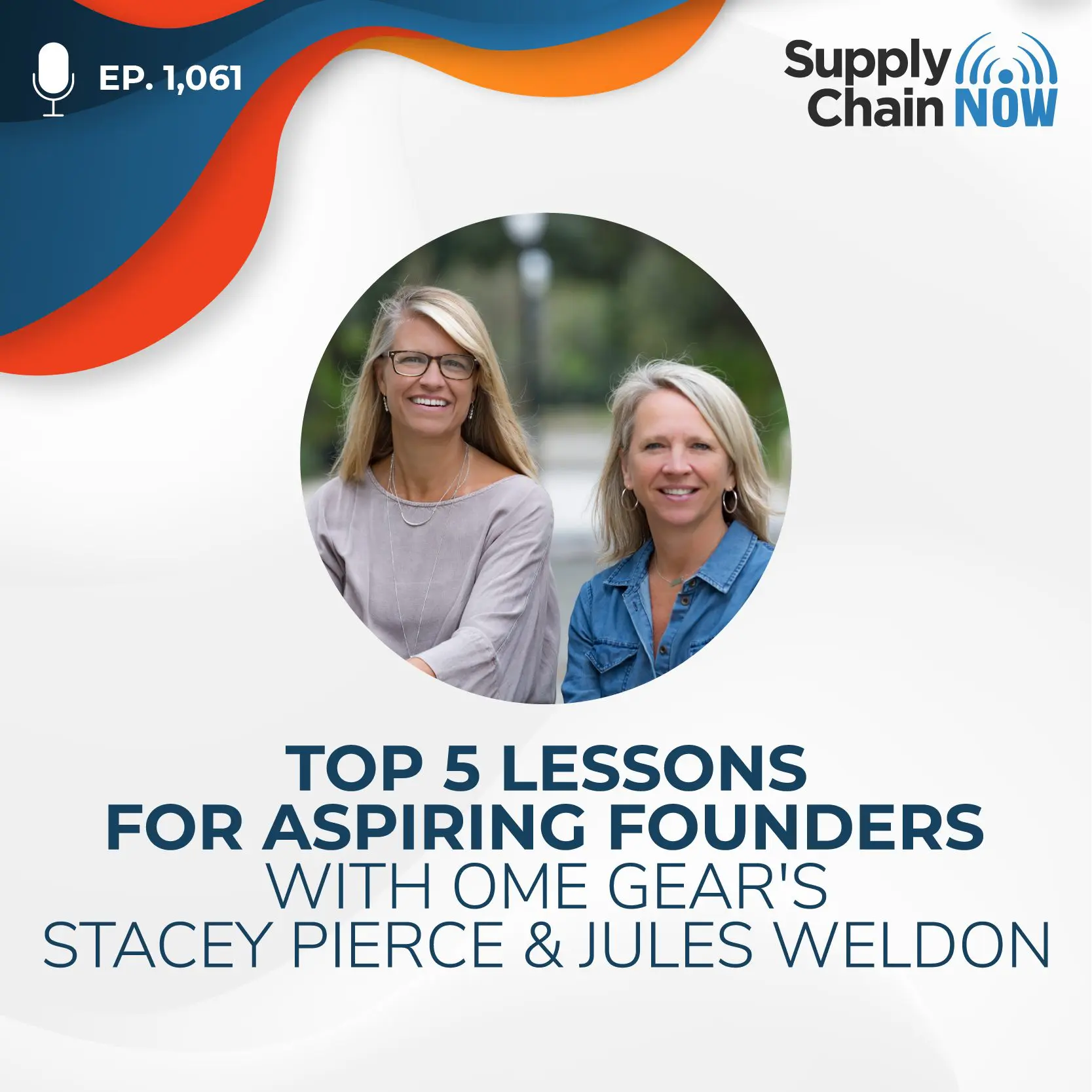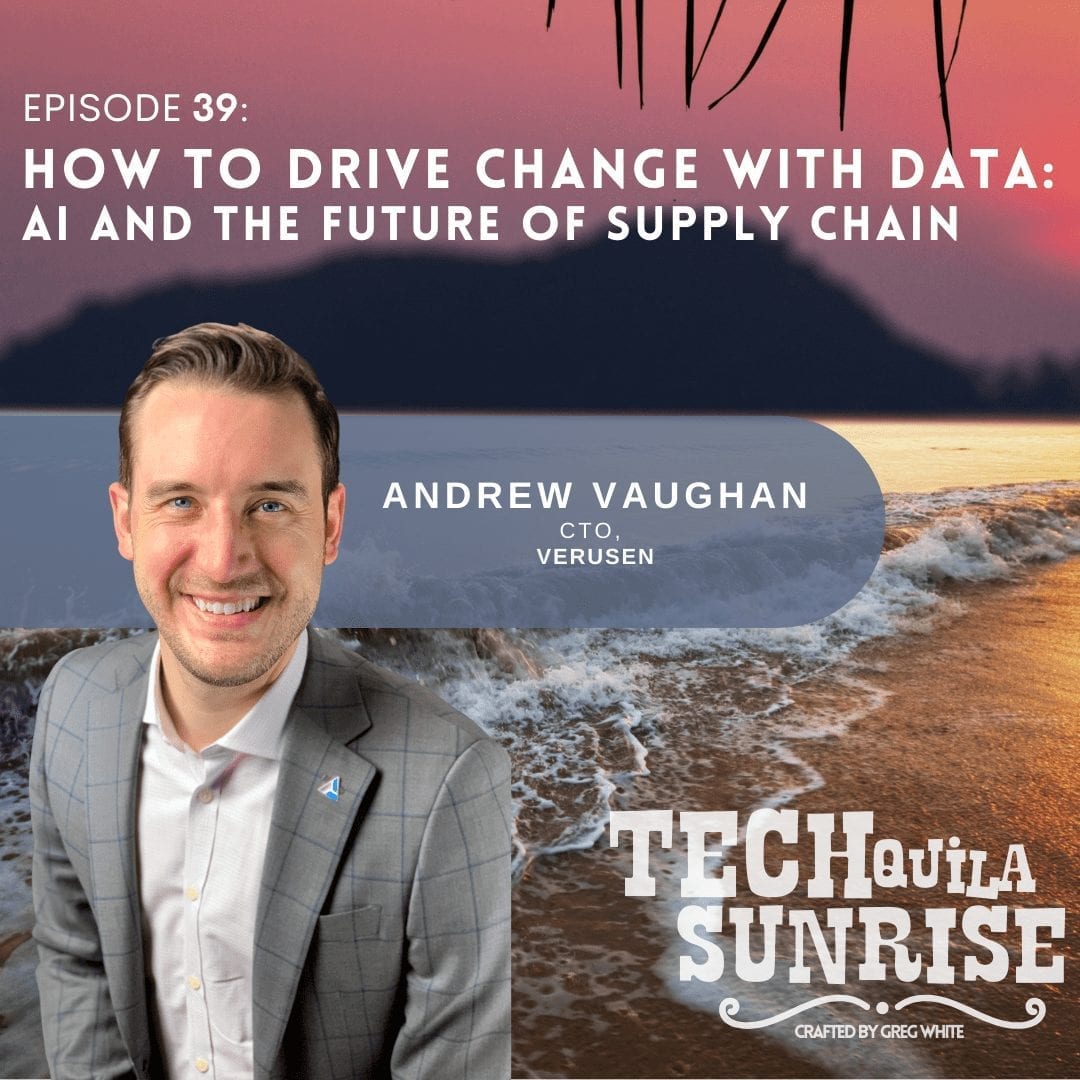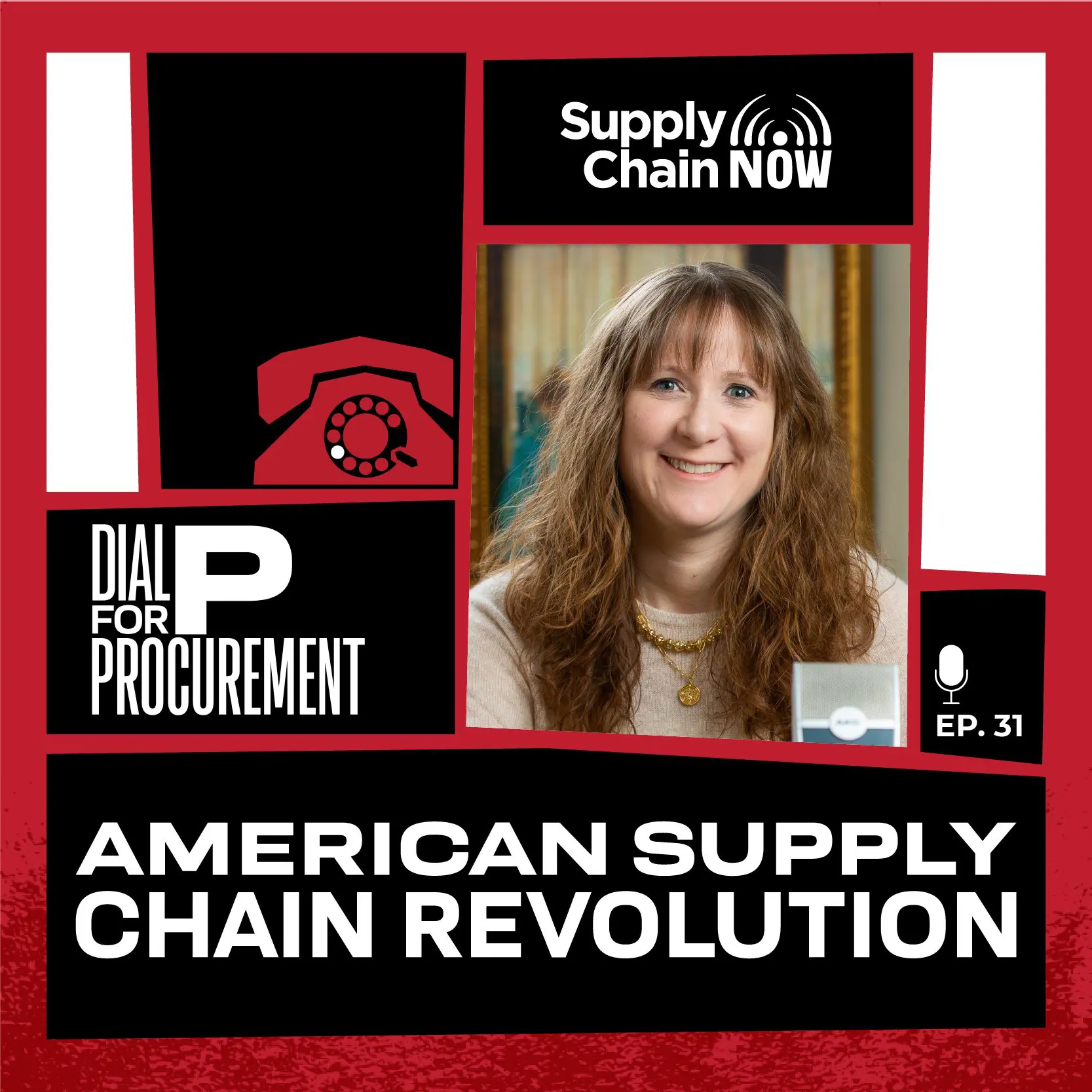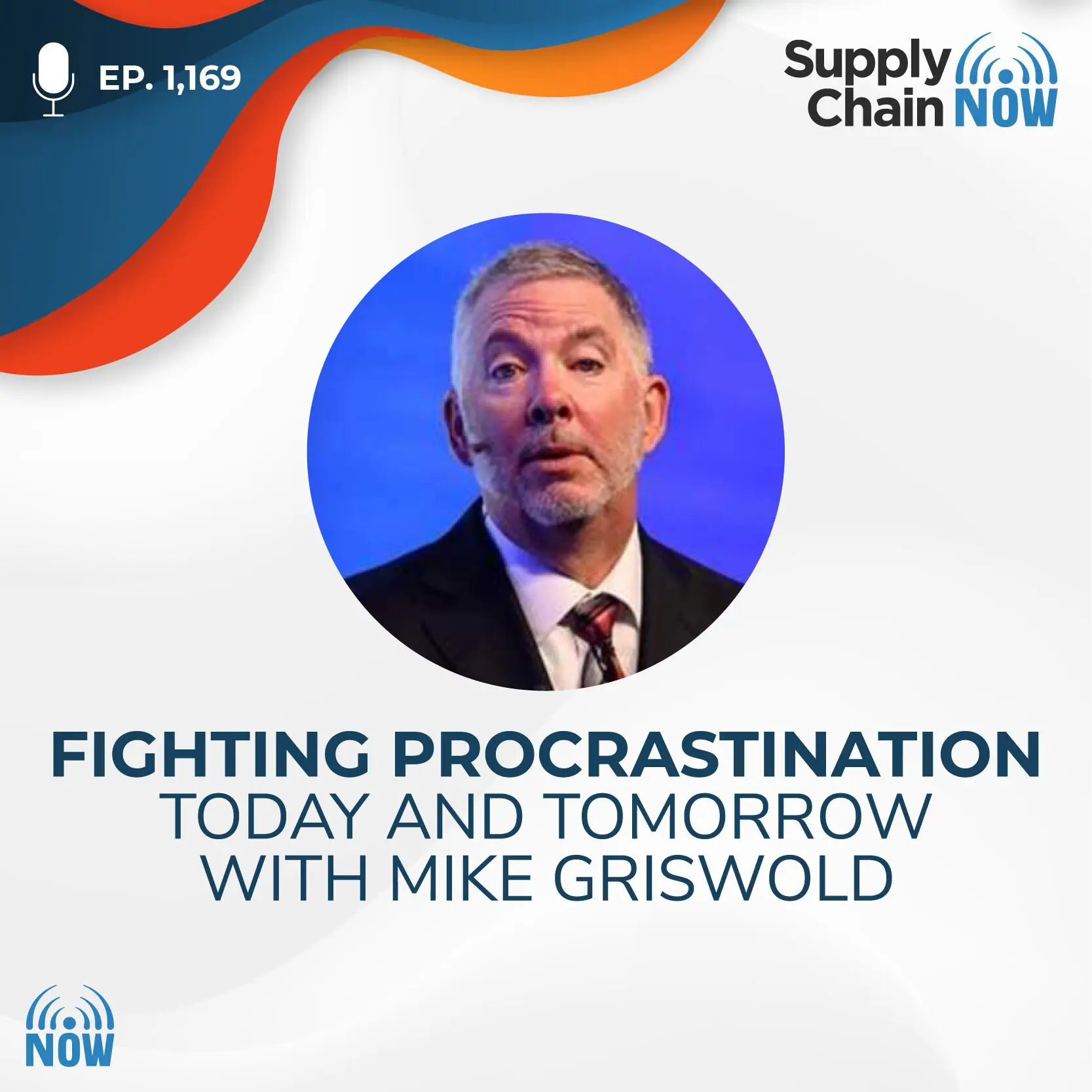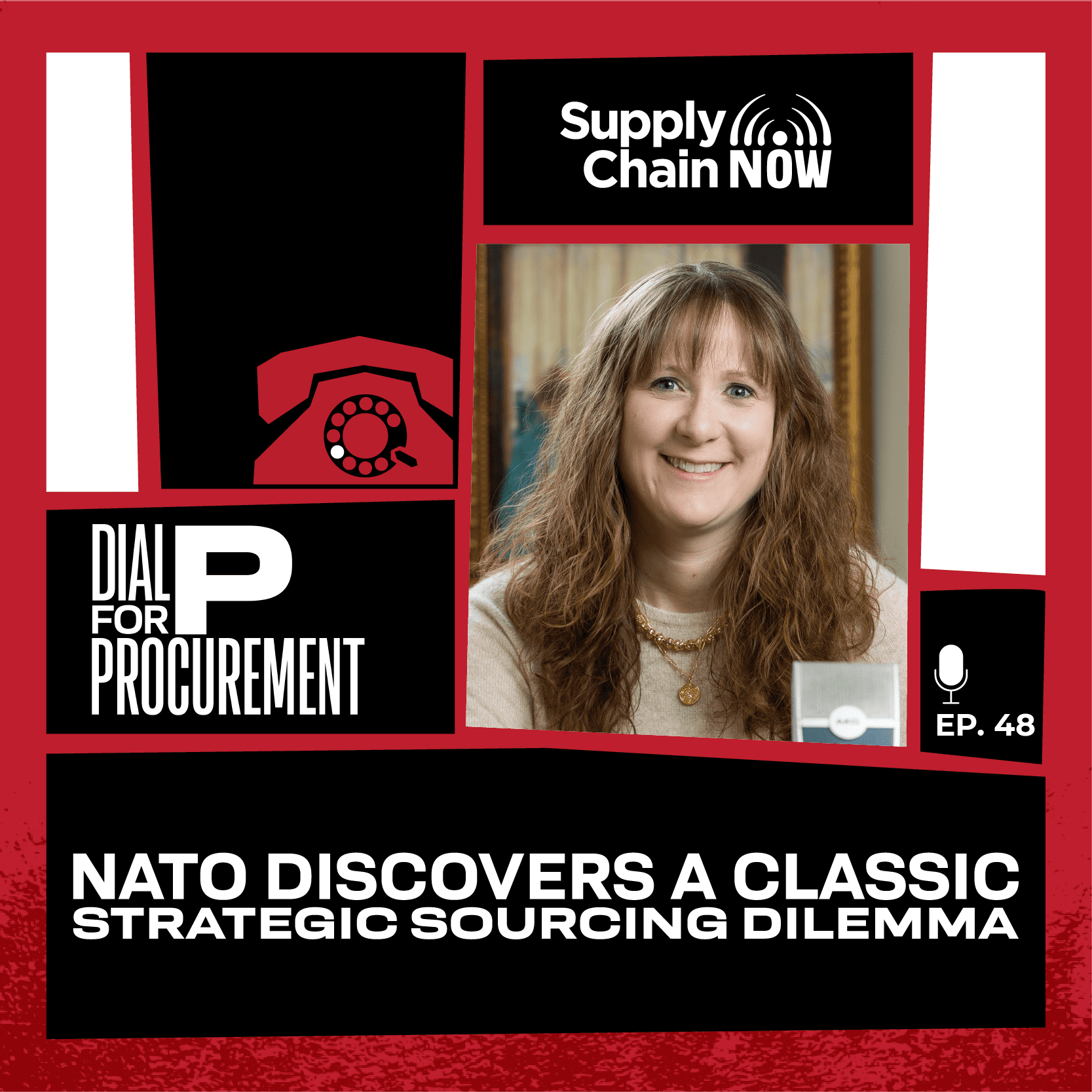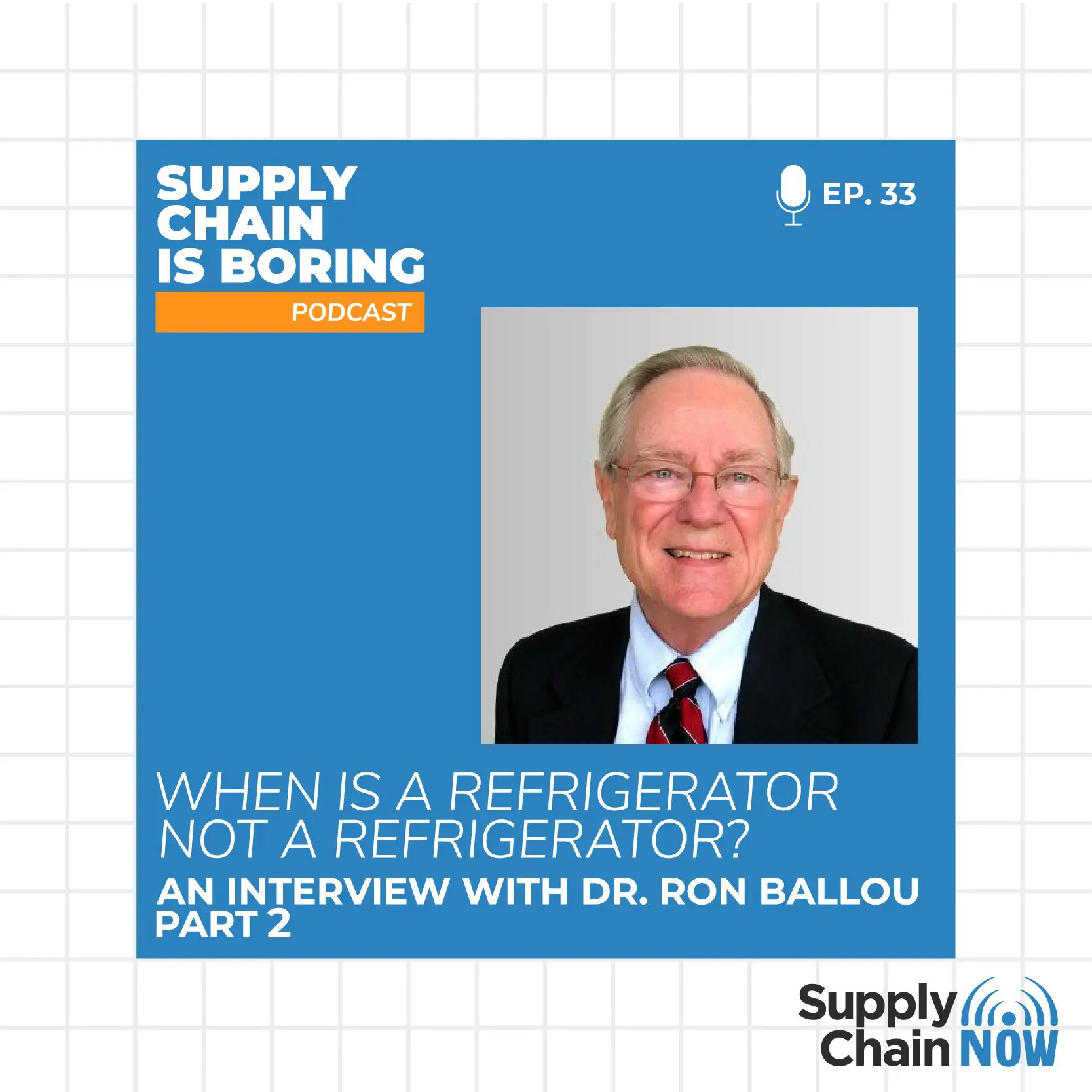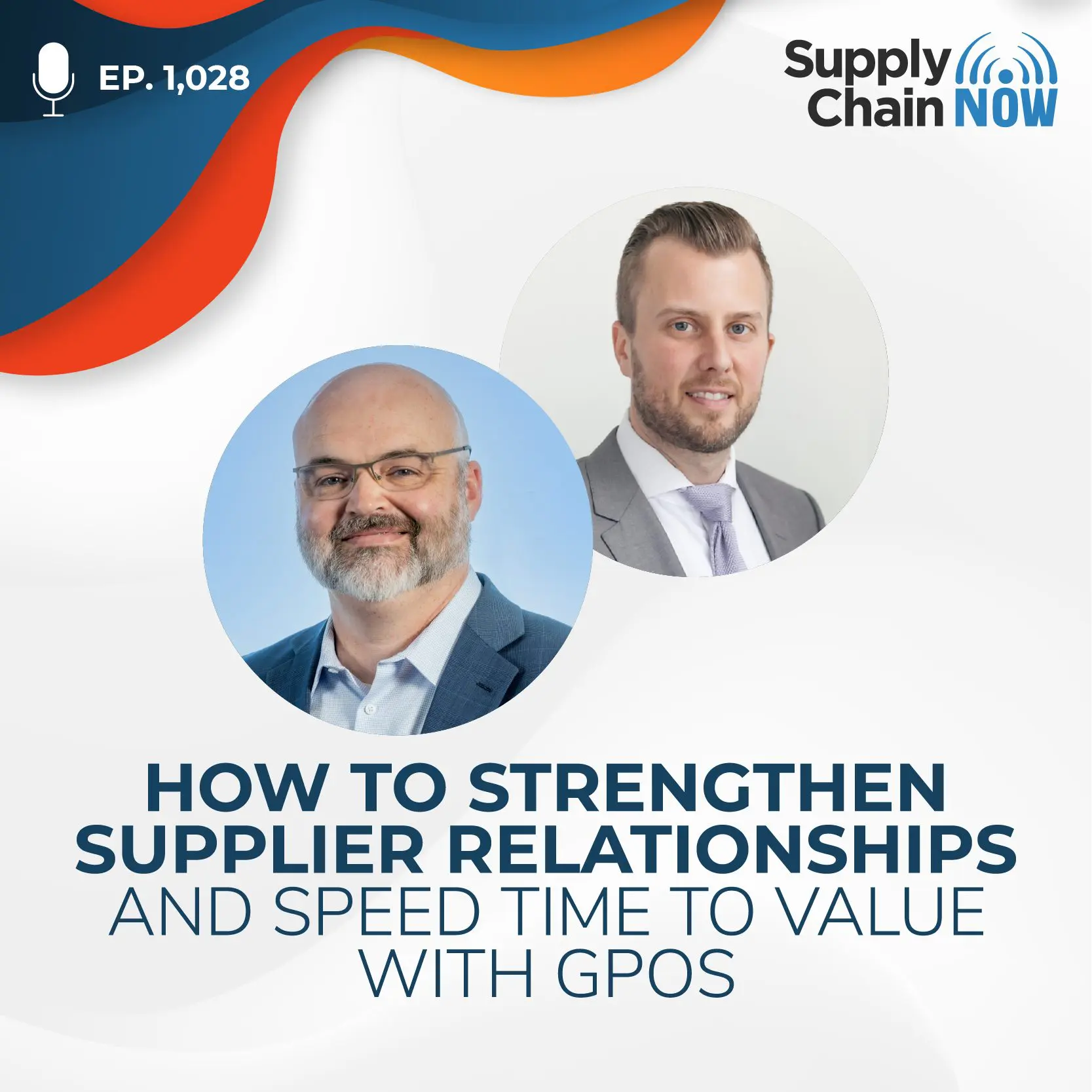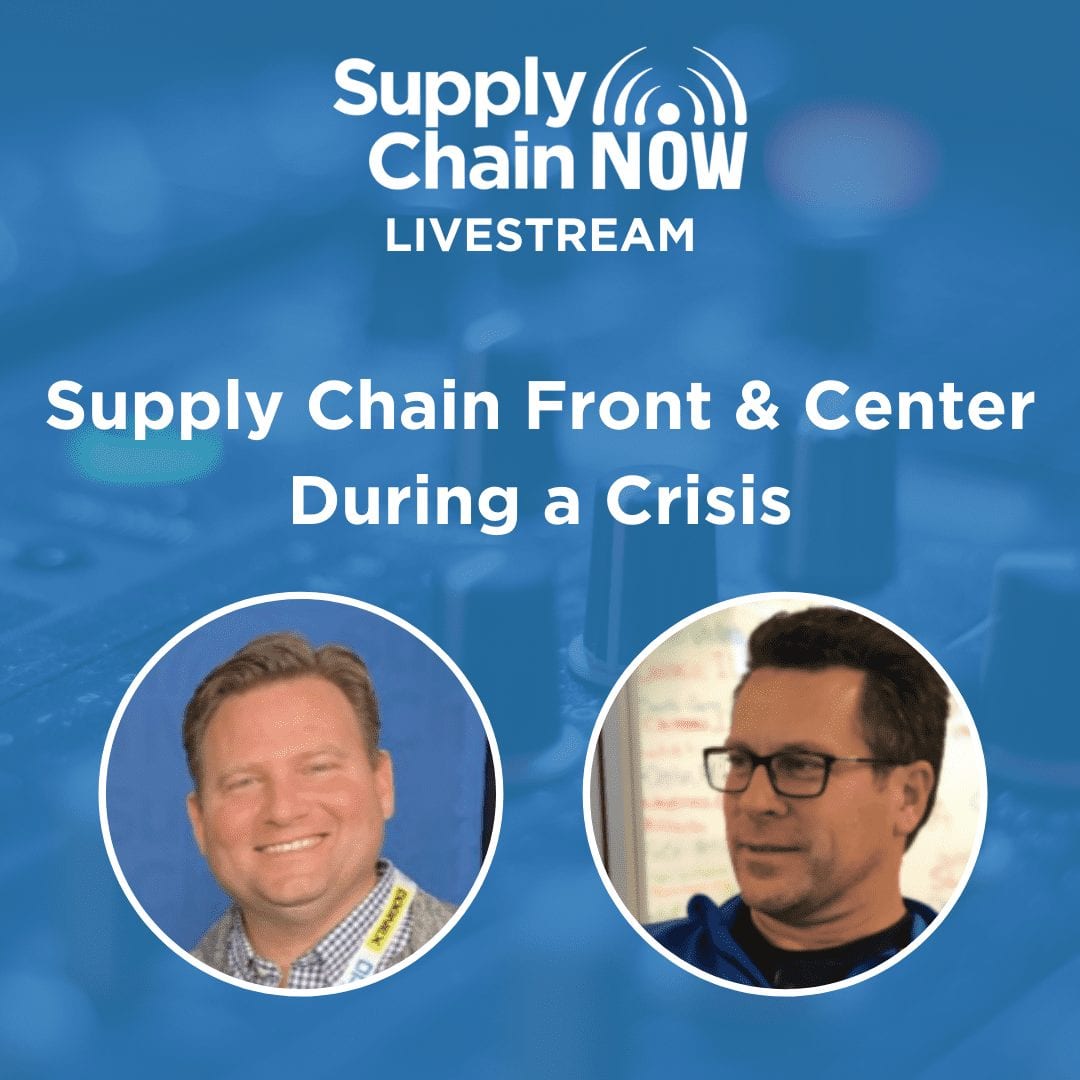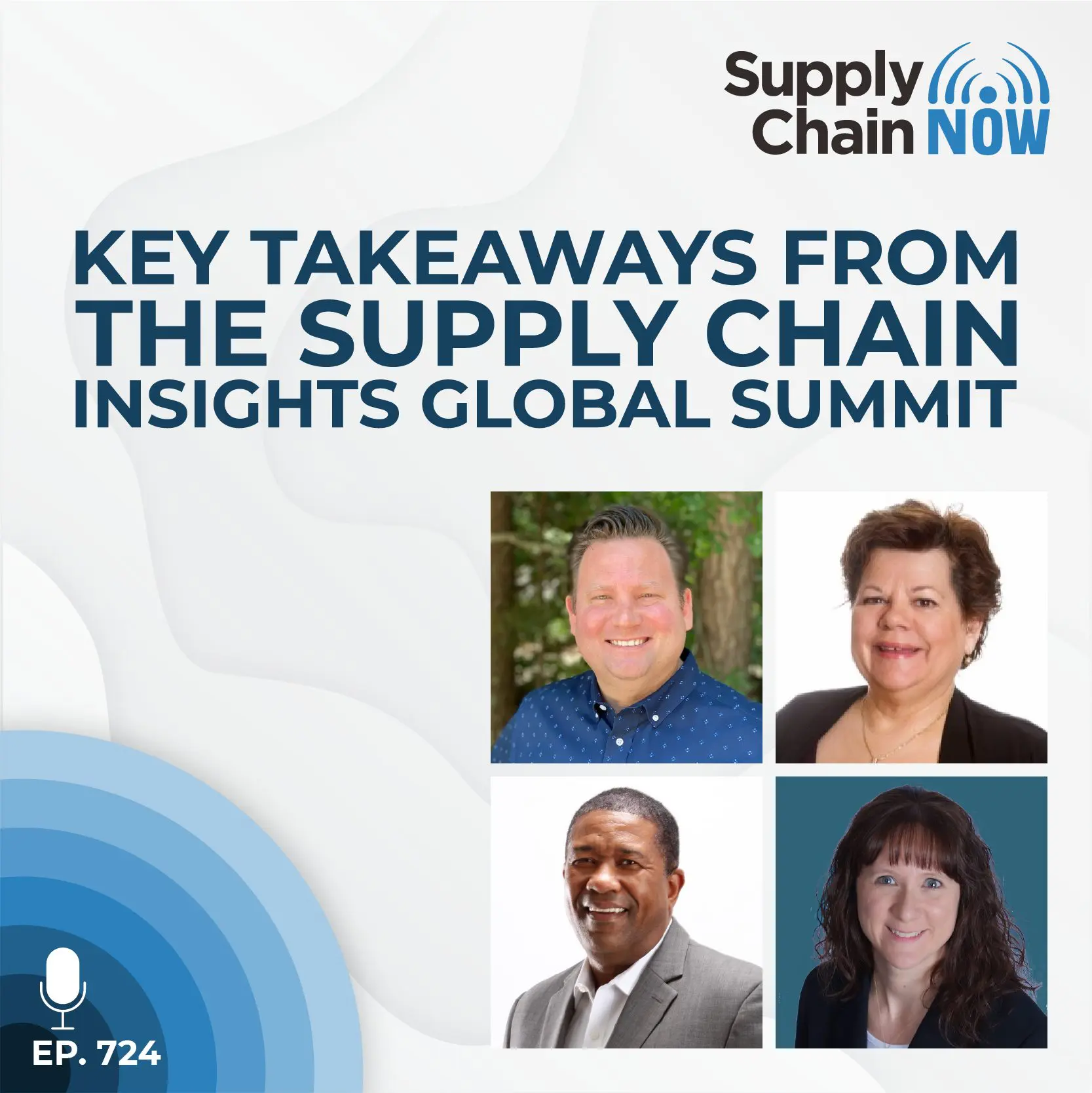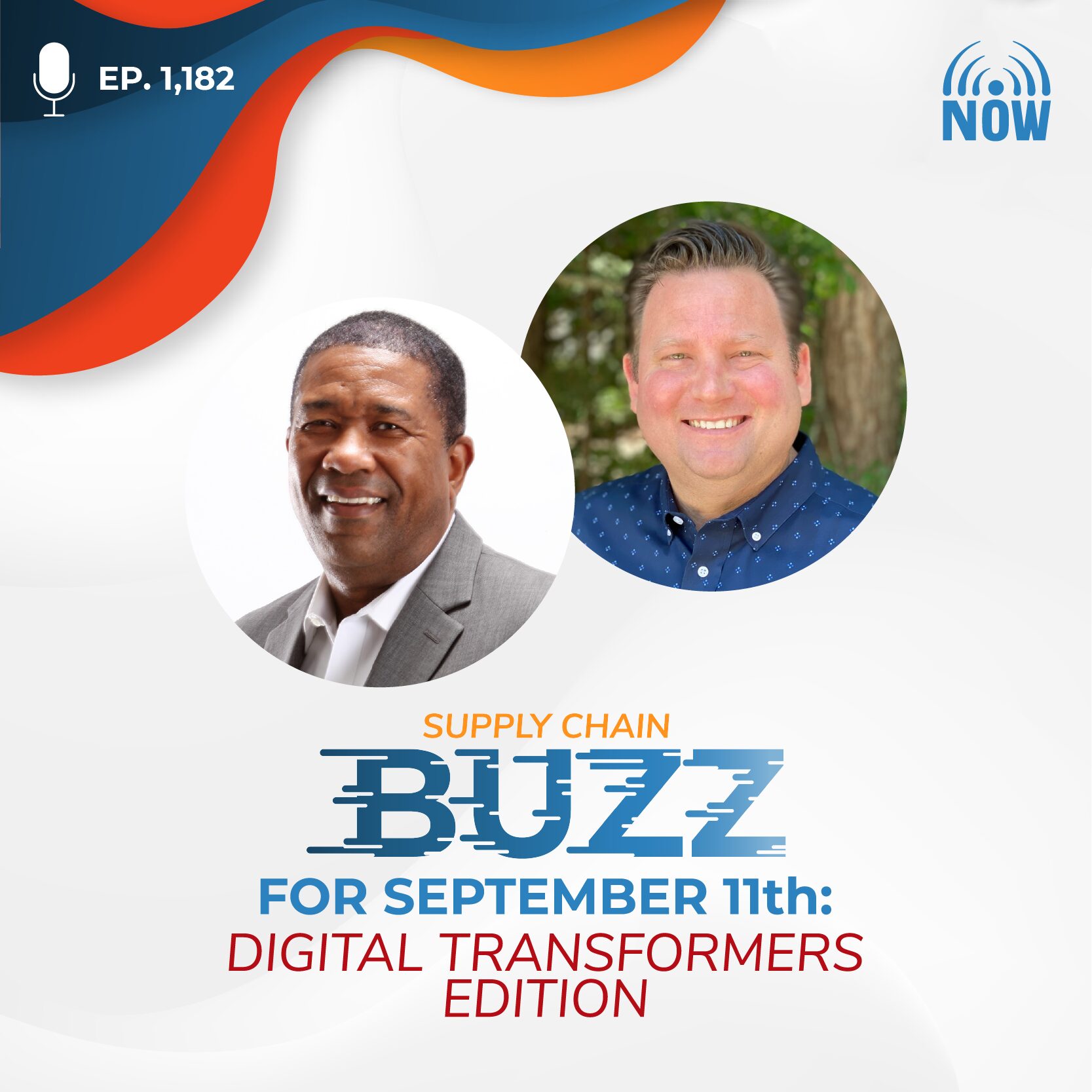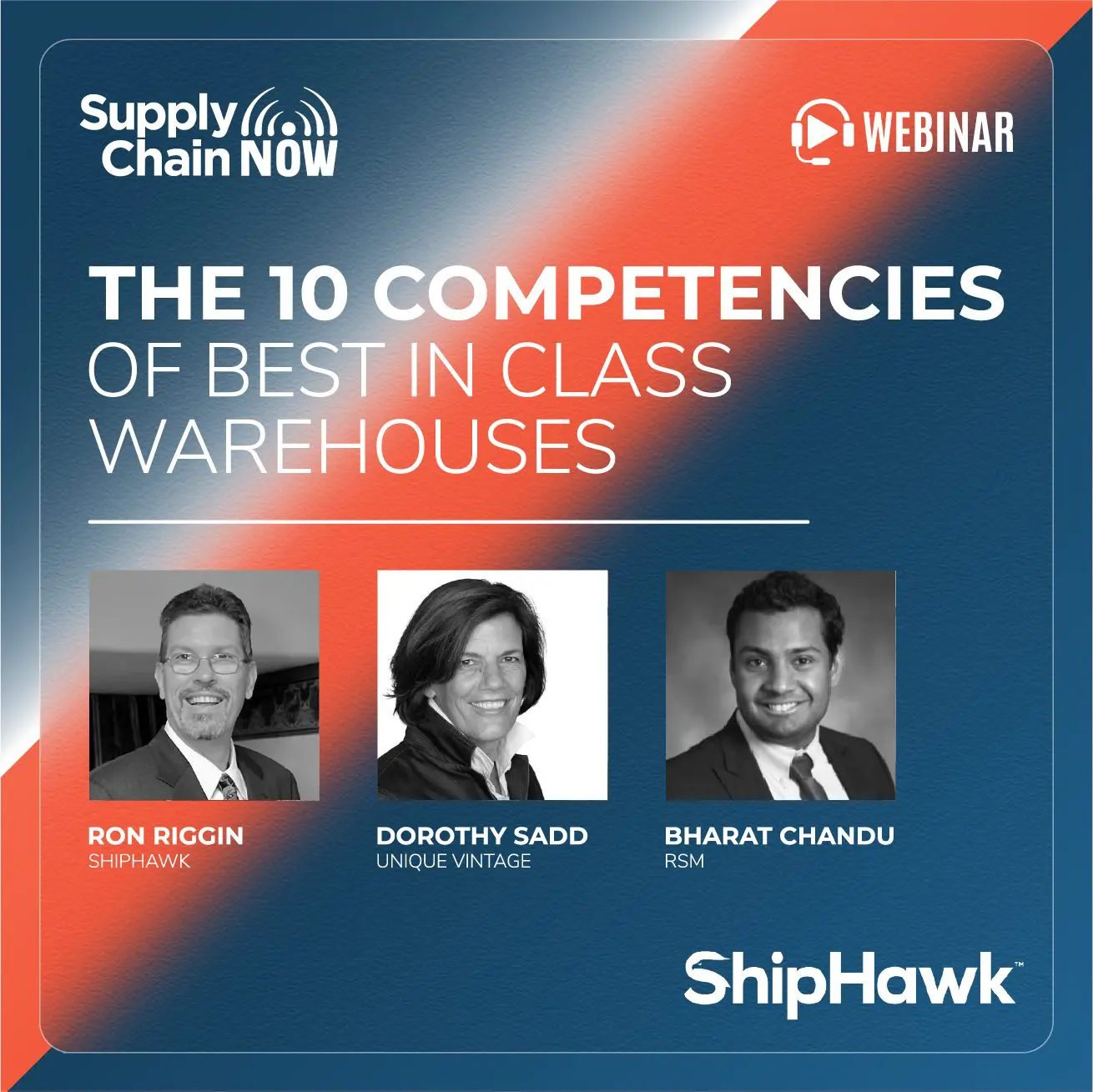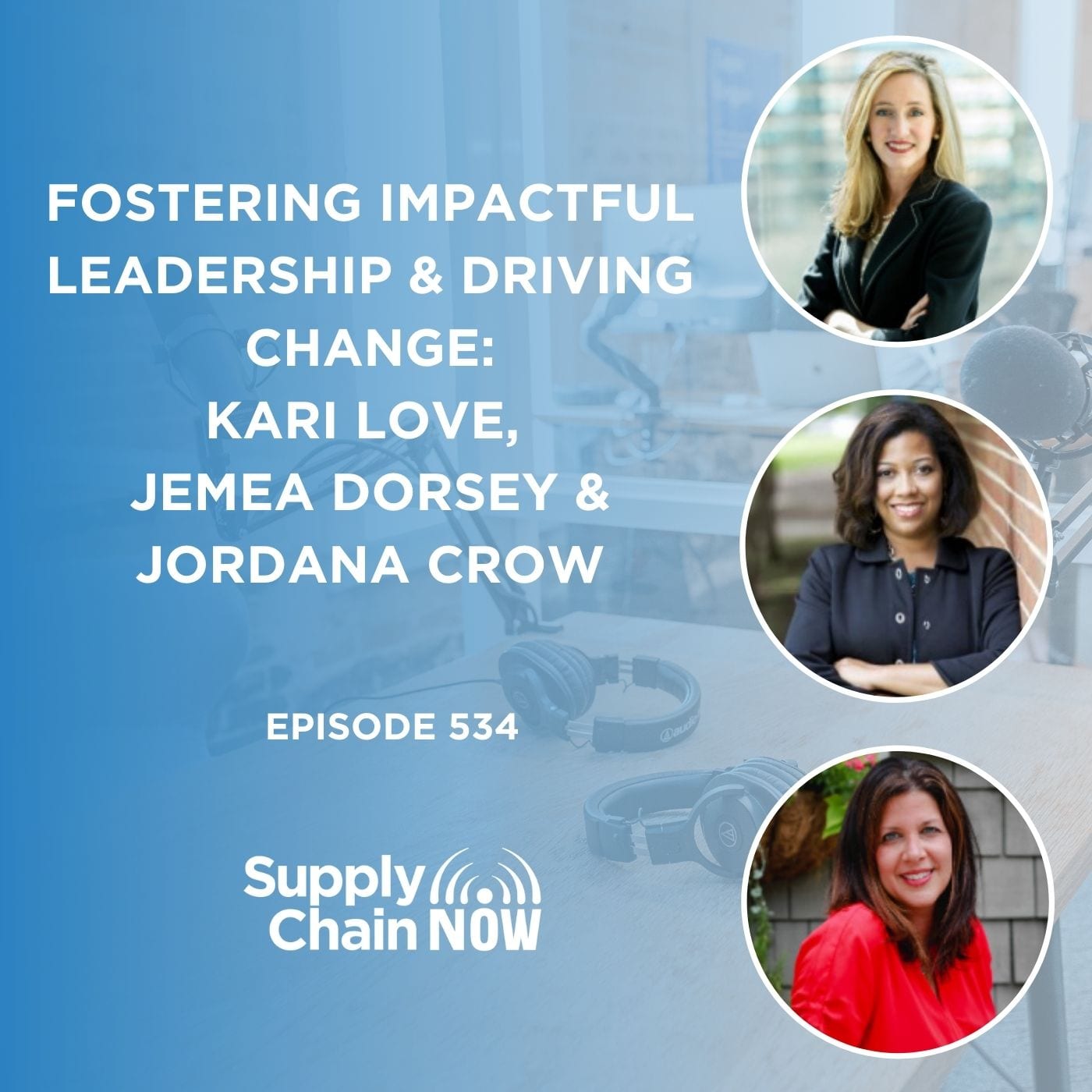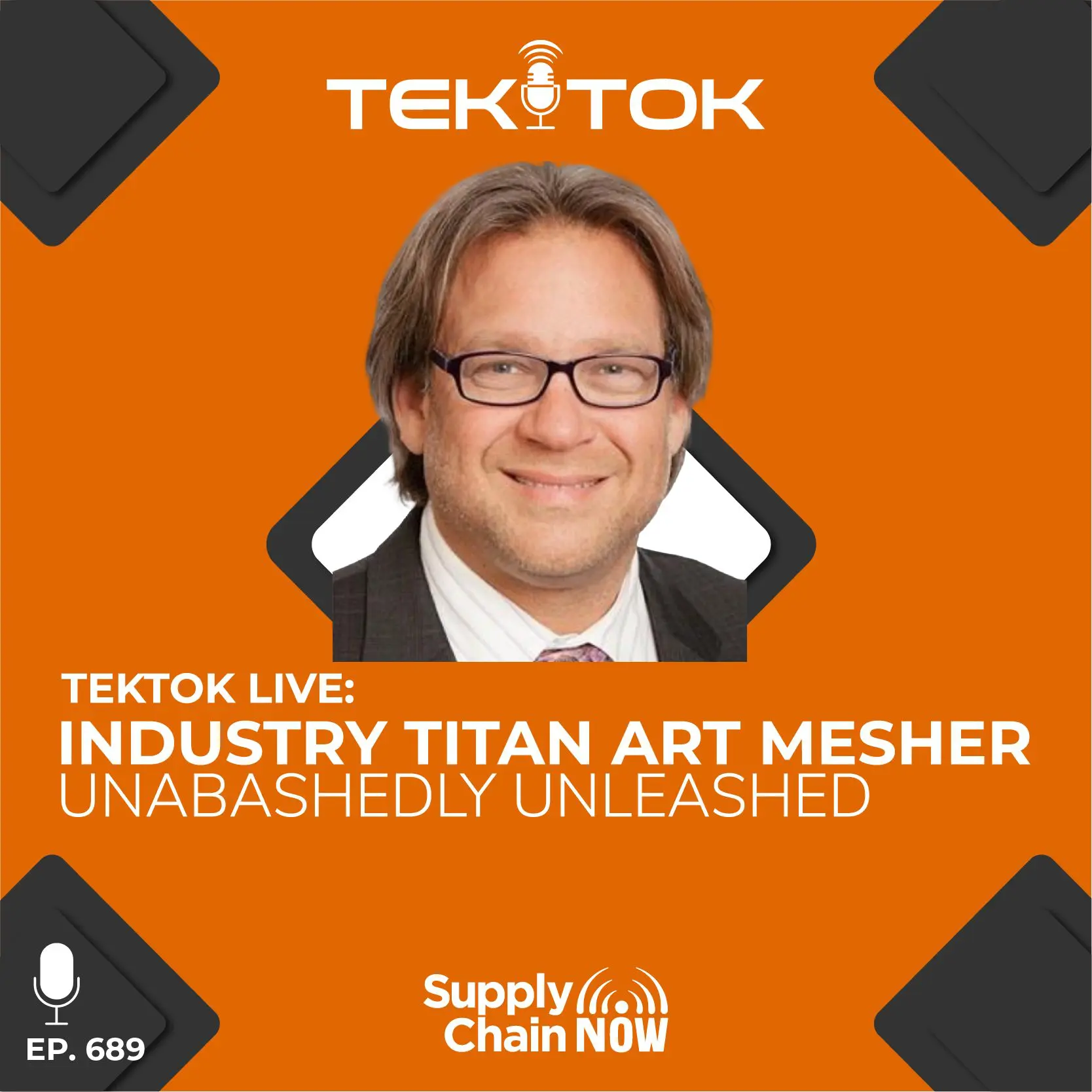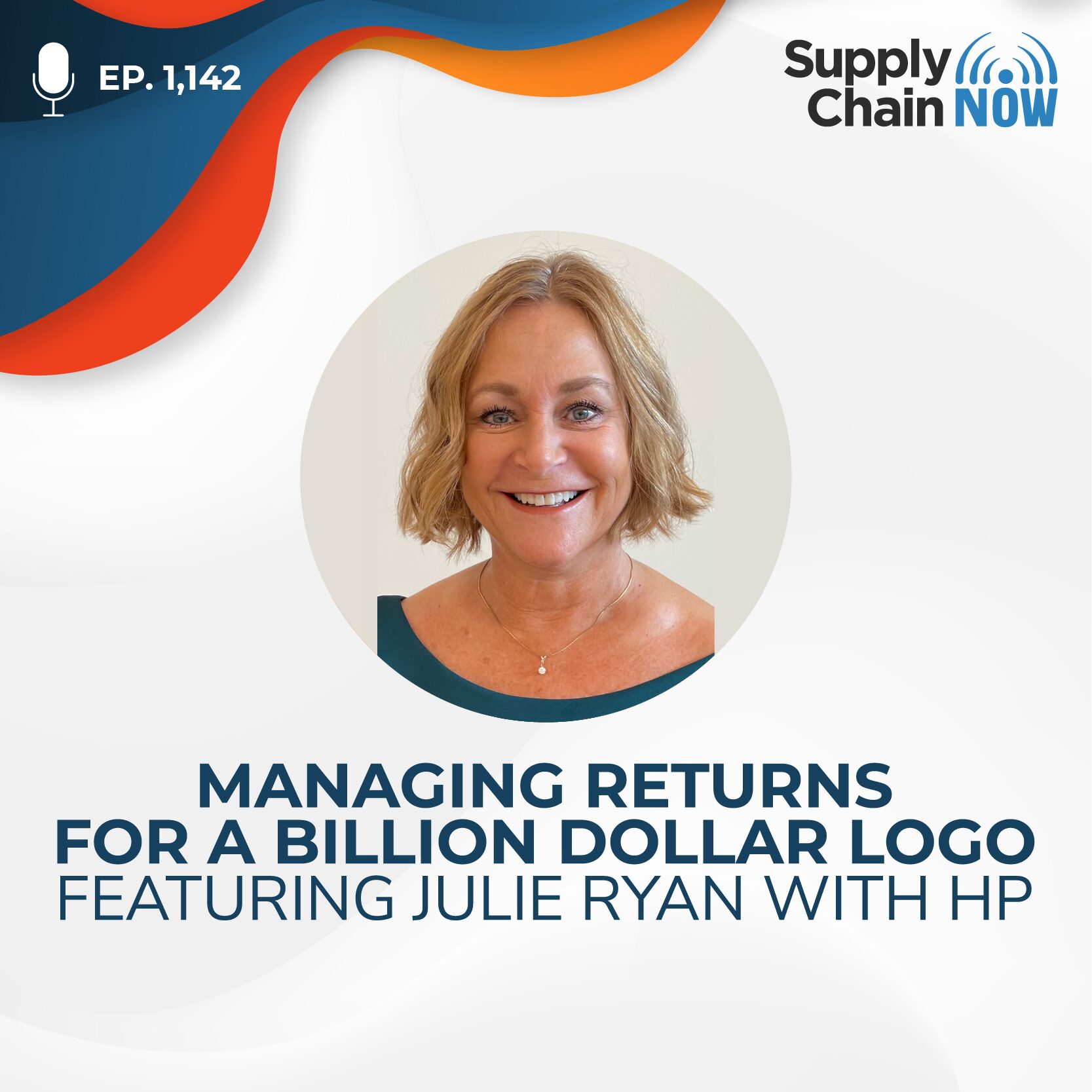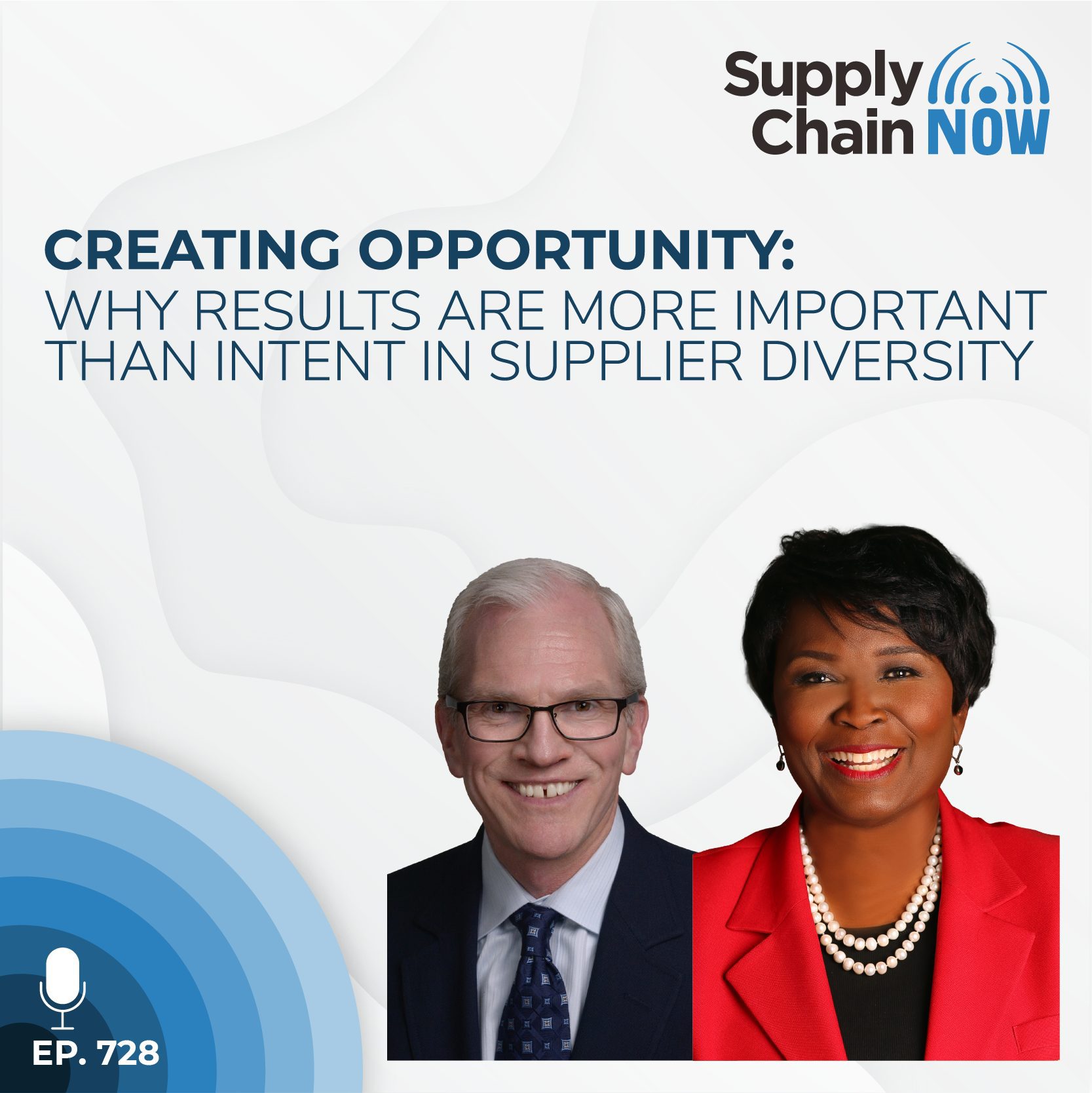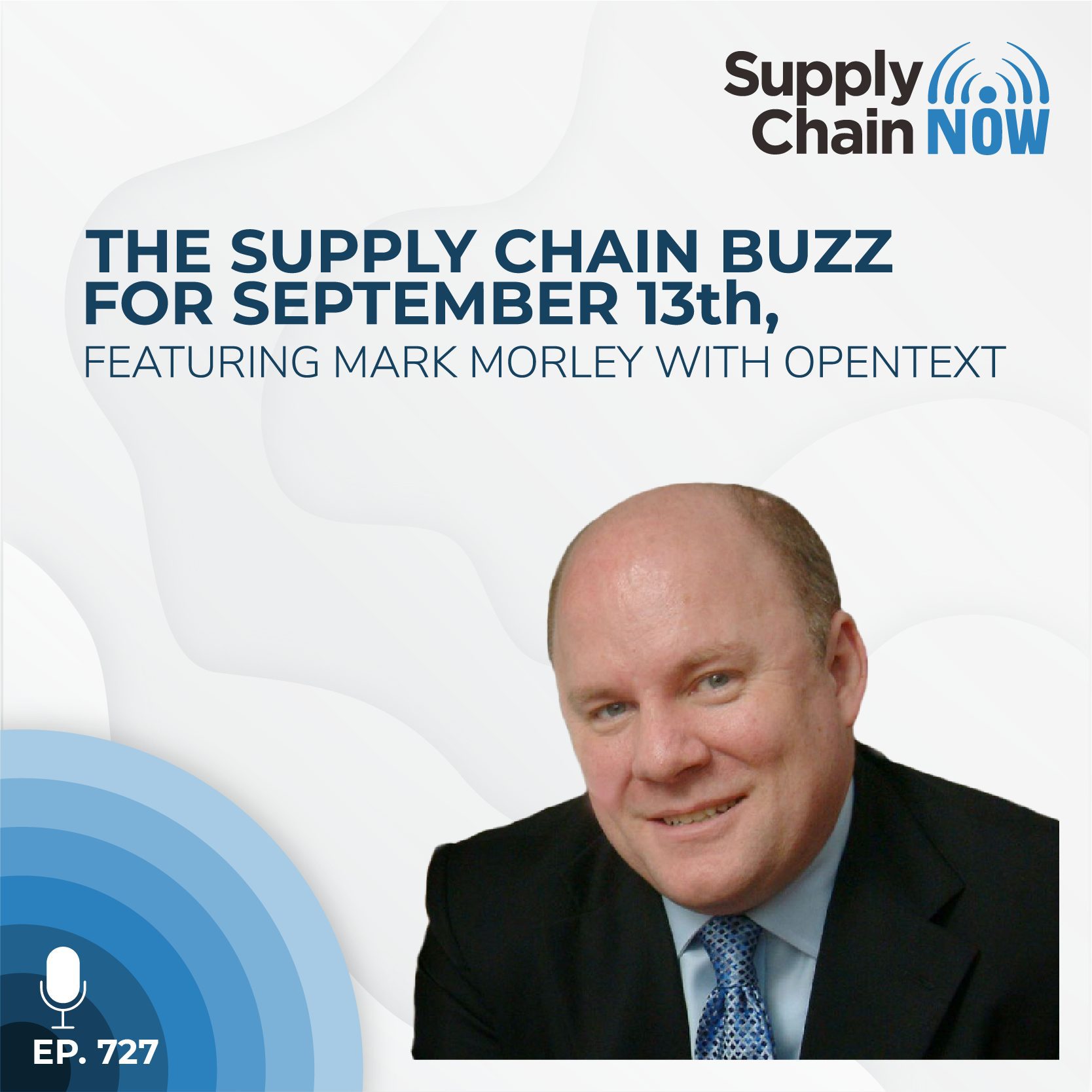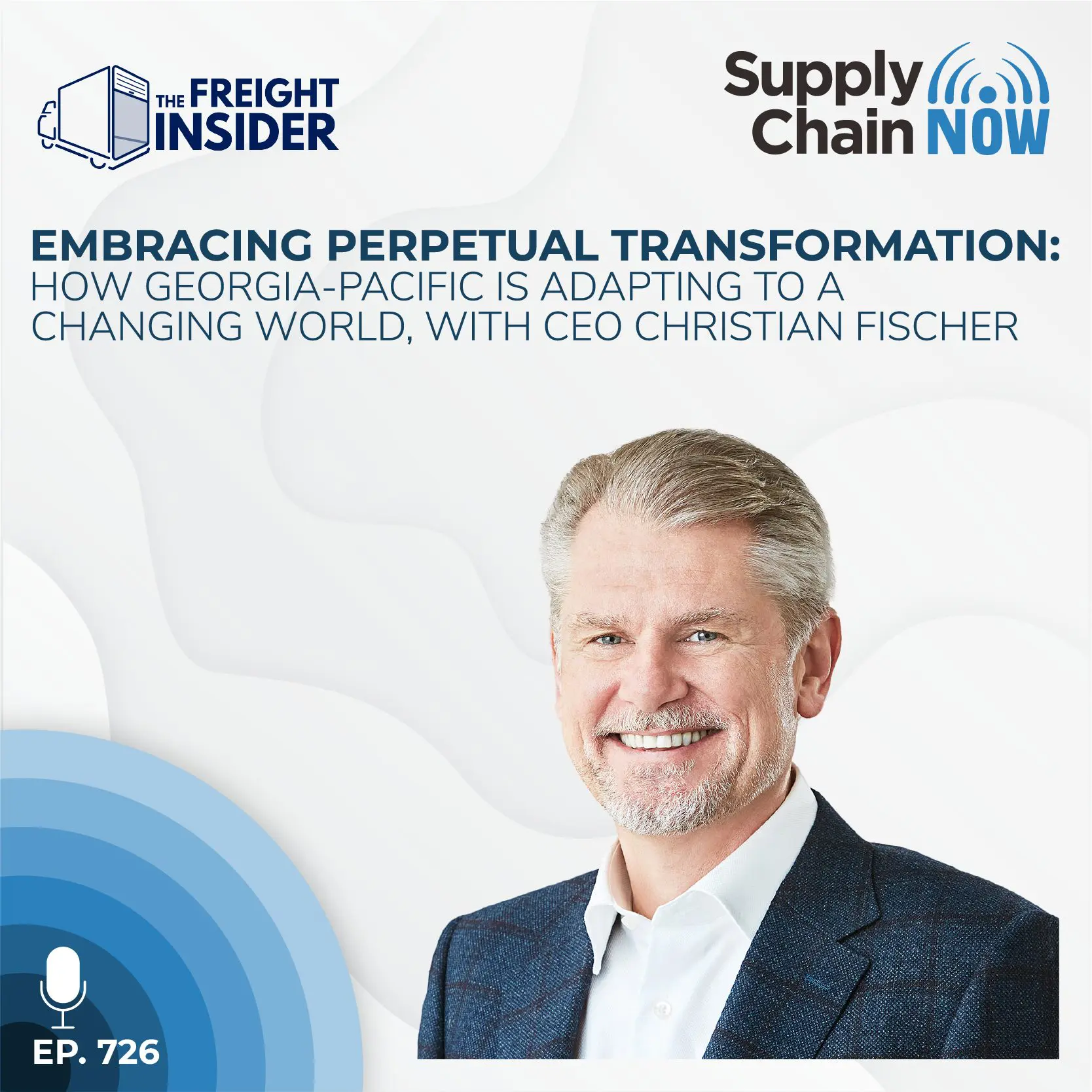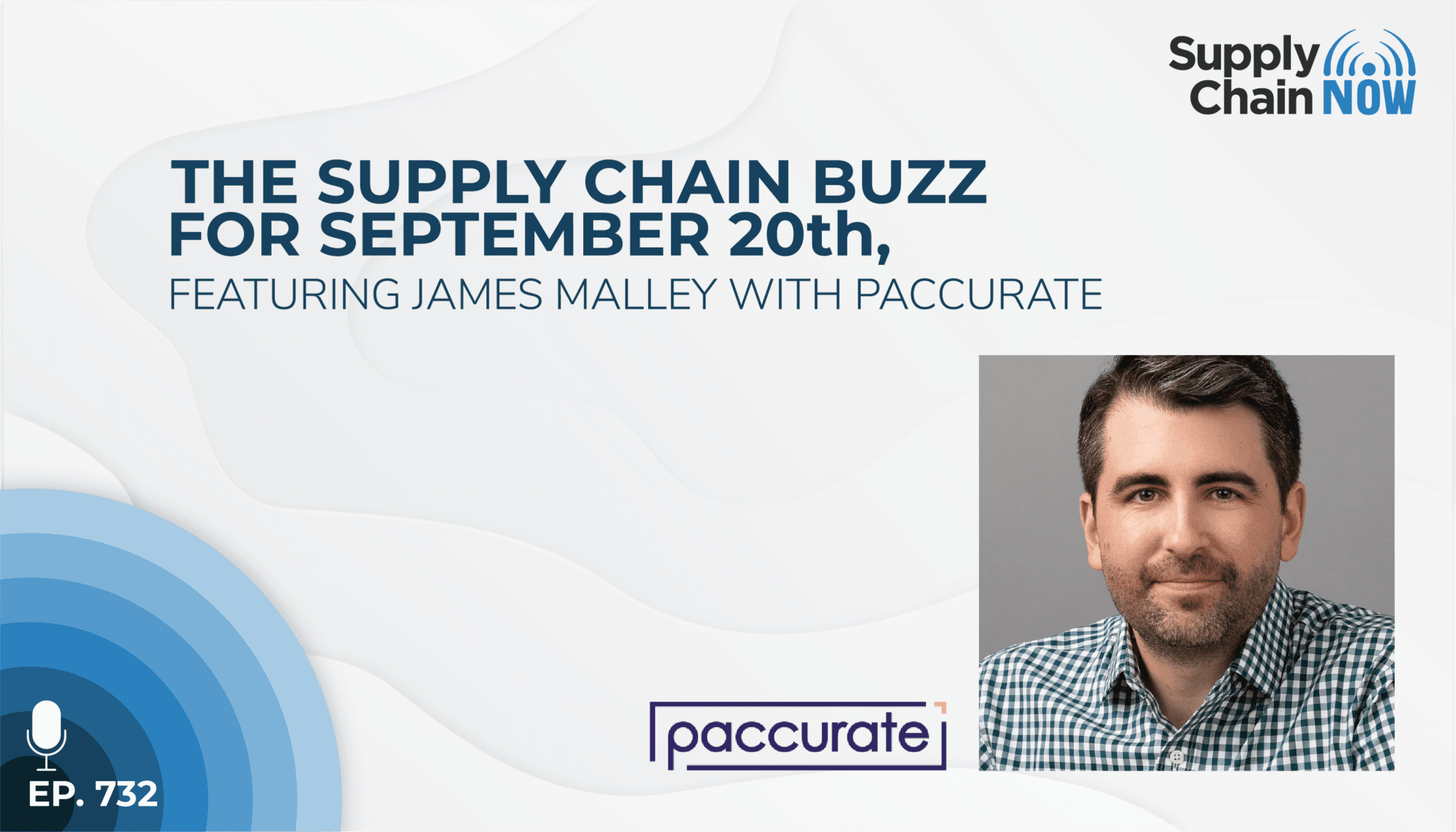
Even if we had all the [shipping] capacity in the world, the prices would keep going up. I think that's bad news for retailers that are just hoping this whole thing blows over. It's tied to larger forces that they need to start looking at in the face.
- James Malley, Co-Founder and CEO, Paccurate
Episode Summary
The Supply Chain Buzz is Supply Chain Now’s regular Monday livestream, held at 12n ET each week. This show focuses on some of the leading stories from global supply chain and global business, always with special guests – the most important of which is the live audience!
In this episode of The Buzz, Supply Chain Now hosts Scott Luton and Greg White are joined by James Malley, Co-Founder and CEO, Paccurate. In an era of rising shipping costs, Paccurate not only helps companies optimize the way they pack and ship in order to save money, they can also help the supply chain contribute to corporate sustainability targets by using (and wasting) less packing material and fuel.
James, Scott, and Greg discuss recent news stories related to supply chain capacity and costs:
- News that shipping fees are going up in advance of the holidays – adding to an already (not so) perfect storm of supply chain backlogs and container shortages
- How shipping container shortages are inflating costs and changing the profitability and viability of entire product lines
- Why the time may have come for us to rediscover supply chain basics, practices like pooling orders, in order to increase efficiency
Episode Transcript
Intro/Outro (00:00:03):
Welcome to Supply Chain Now, the voice of global supply chain. Supply Chain Now focuses on the best in the business for our worldwide audience, the people, the technologies, the best practices, and today’s critical issues, the challenges, and opportunities. Stay tuned to hear from those making global business happen right here on Supply Chain Now.
Scott Luton (00:00:31):
Hey. Hey. Good morning. Good afternoon. Good evening. Good night. Scott Luton and Greg White with you right here on Supply Chain Now. Welcome to today’s livestream. Greg, how are you doing?
Greg White (00:00:41):
Good. For a second there I thought we were on the Truman show.
Scott Luton (00:00:46):
Well, you never know. I was listening to one of my favorite all time shows, Coast to Coast, with Art Bell. And folks are tuning into that show globally. You never know what time of day, what mood they’re in. And we’ve got a little something similar element dynamic baked into our livestreams, so folks are tuned in globally for this conversation that you and I are going to have with James Malley. Greg White, are you ready for it?
Greg White (00:01:15):
I am ready. Let’s do this thing.
Scott Luton (00:01:19):
You are ready. You’re ready to go. Well, hey, we’ve enjoyed our pre-show conversation with James Malley. James is with Paccurate doing some really cool things, especially when it comes to the technology side of supply chain. So, stay tuned for that in about 15 minutes. But beyond James’ appearance with us, Greg, it’s all about the supply chain buzz. What can folks expect every Monday at 12:00 noon?
Greg White (00:01:42):
Well, this is the voice of supply chain, so we’re going to voice the biggest news in supply chain, of course. So, share some of what we’ve seen over the course of the last week. And some of the really interesting and topical stories that talk about this craft, which, finally – Scott, you may not have heard – people actually care about.
Scott Luton (00:02:10):
They do. And they’re being recognized for it, which we love here. This has been one of the best silver linings of this pandemic era is folks, from the drivers to the retail clerks – which I love how you love on those folks, Greg – to the pickers and packers, you name it, folks getting recognized for making global commerce happen.
Scott Luton (00:02:32):
So, speaking of recognizes and folks, we’ve got a couple of announcements we’re going to make. We want to invite you to join us at some upcoming events. But I want to call out Peter Bolle, all night and all day. Peter, hope this finds you well. I admired your beautiful message you sent us earlier today as you were rubbing elbows with friends and grieving a bit with a recent loss. So, our team is with you in kindred spirits and wish you all the best. Greg, we look forward to Peter’s commentary throughout The Buzz here today, right?
Greg White (00:03:06):
Yeah. No doubt. No doubt.
Scott Luton (00:03:07):
All right. And I see a few other folks tuned in, let us know where you are. We were talking earlier, we do have a global community, which makes this journey even more entertaining. That different perspective, different experiences, different roles.
Greg White (00:03:23):
Different levels of awake-ness, because, I mean, some of the people who are watching this, it’s the middle of the night.
Scott Luton (00:03:30):
That’s right. That is right.
Greg White (00:03:32):
We got to respect that.
Scott Luton (00:03:33):
Yes, you do. Lots of passion. So, let us know where you’re all tuned in from. In the meantime, before we bring on James here in a few minutes, I want to add a couple of items here. So, Greg, are you ready this week for Flow 2021? I’m talking about bringing folks together. This is going to be a home run event, right?
Greg White (00:03:51):
Yeah, it is. And I love it when we get to leverage all of the knowledge that folks pull together. We did this a couple of weeks ago with Lora Cecere. We get to see so many different angles on what is happening in supply chain and how different companies are approaching it. So, it’s going to be fun to watch. So, you know what I’m going to say, so listen up.
Scott Luton (00:04:16):
Well, join us. So, beyond the breakout sessions, which are going to be second to none, Greg and I will be opening the days and closing the days tuning into some of these conversations. Which, if you love, especially technology automation in the e-commerce and the fulfillment space, this is for you. And it’s free so join us. We’ve got the link in the comments and we’d love to have you with us. Greg, with the hits keep on coming, we’ve got Verusen back with us on October 5th.
Greg White (00:04:46):
Yeah. We had Aaron on – what was it, Scott? – a couple of weeks ago, right? And super talented individual. And, of course, Verusen sponsors this report. And we got a preview of it, so that’s pretty cool. We can’t say anything yet. But Aaron is a fantastic and knowledgeable procurement and materials handling expert from Georgia Pacific and elsewhere. And, now, he’s working with folks at Verusen and helping them deploy their solutions, but also helping to pull this analytic together for what’s going on in the industry, which is pretty fascinating.
Greg White (00:05:31):
We talked about this the other day, somewhat disturbing that so many manufacturers are a little bit behind the curve, some way behind the curve, but, really, enlightening to see where the opportunity is and how much opportunity there is in materials handling and elsewhere throughout us watching.
Scott Luton (00:05:51):
Agreed. And it’ll be about a week or so after the Clemson-NC State Game. He’s a Wolfpacker. I’m a Clemson fans. We’ll see who’s got bragging rights.
Greg White (00:06:02):
So, you guys want time to cool down a little bit.
Scott Luton (00:06:02):
Important stuff. But to echo what Greg said, Aaron is a wonderful practitioner that’s got his finger on the pulse. You’ll learn a lot from what he shares on the 5th. So, y’all join us, the link is in the comments. And, now, I’m going to get to something a little bit different. So, folks, we love getting snapshots of your travels, especially now that some of us are getting back out there again, which is great. This shot, Greg, I believe this is Corsica over in – is that Italy or Greece? I should know this. Anyway, this is Dan Reeve from Esker.
Greg White (00:06:42):
I’m sorry. I’m sorry. I was staring at the picture.
Scott Luton (00:06:44):
So, clearly he’s hiking. And he sent me about six or seven shots like this.
Greg White (00:06:51):
Clearly, he has a drone.
Scott Luton (00:06:53):
He has a drone. I had to stop what I’m doing and just take it in, and I am green with envy. But this was a great shot from Dan, one of our favorite guests here. And speaking of, this is Corey Comer. And if that’s not the coolest shot, including the kids and the backdrop and the hat, I’m not sure what is, Greg?
Greg White (00:07:15):
Well, it looks like Indiana Jones got married and had children and then went to Yosemite. That’s my guess is that’s Yosemite.
Scott Luton (00:07:24):
Look at the bright energy in the eyes of those kids, they are loving it. And y’all might remember, we shared Corey goes camping quite a bit and we shared they do the chuckwagon thing every so often, Greg. So, not only are they loving the family time and a beautiful backdrop, but clearly they’re eating good too. So, we’ll have to get some of Corey’s updates on these travels once again, right?
Greg White (00:07:50):
That is social distancing to the extreme. I don’t see anyone for miles.
Scott Luton (00:07:55):
I love it. Okay. So, we’ve got three great stories teed up here today. We’ll be bringing in James Malley with Paccurate here in a few minutes. But let’s say hello to a few folks. And I want to start, Greg, some folks are entertaining us with where they are from. Starting with, Michael Hill is tuned in back with us via LinkedIn from Dublin. Greg, have you ever been to Dublin?
Greg White (00:08:23):
I have. Beautiful. Yeah. I’m a huge Ireland fan.
Scott Luton (00:08:28):
Did you golf while you were there?
Greg White (00:08:30):
I should probably explain this to Americans. Because a lot of times when you’re over there, Americans ask, “Why did they put the castles so close to the airport?” Castles were first.
Scott Luton (00:08:46):
Castles were first. I love that. Well, Michael, great to have you back with us here today. We’d love to get a snapshot of what Dublin looks like this time of year. Also back, speaking of back to back, Nurfad is back. Now, I’m not going to put all of his story out there. But let’s just say he had a little disagreement with the powers that be over at one of the social networks. And he had to kind of earn his way back on. So, he’s back. And look at what he said and, of course, he’s got a wonderful sense of humor. You can see that in the snapshot.
Greg White (00:09:18):
[Inaudible] not appreciate his sense of humor. Yes.
Scott Luton (00:09:21):
And, also, he’s got humor in spades and he’s got some mad cooking skills which has been on display in supply chain job.
Greg White (00:09:28):
And clearly a new look. So, he’s in disguise.
Scott Luton (00:09:33):
Yes. He says, “If you’re looking to connect with me so I can grow my network once again, as I am at three connections only, that would be great.” So, hey, y’all connect.
Greg White (00:09:43):
I have to know what happened. Nurfad, you have to tell us.
Scott Luton (00:09:46):
Well, yes. So, Nurfad, I’m going to leave that up to you if you’d like to drop that in the comments or shoot us a note, we got to feel Greg in. But regardless –
Greg White (00:09:54):
He’s in the witness protection program.
Scott Luton (00:09:58):
Right. It’s so good to have you back. The Buzz is not The Buzz without great folks like Nudfad, so welcome back. Let’s see here.
Greg White (00:10:09):
Just Nurf. Nurfad is dead. Just Nurf. Don’t give him up, they’ll find him. [Inaudible] report.
Scott Luton (00:10:10):
Let’s see here. Manikandan – Manikandan via LinkedIn, welcome. Let us know where you’re tuned in from. Great to have you here today. Let’s see here. I think this is Neil Patel, I believe. So, Neil, if this is you tuned in here via LinkedIn from ATL, great to have you here. Karim, LinkedIn by way of Tehran, Iran. How about that?
Greg White (00:10:41):
Wow. That is dedication.
Scott Luton (00:10:43):
Yes. So, great to have you here. And I’m looking forward to hearing your POV as we chat through some news of the day here. And, actually, I’ve been corrected. This is Jacqueline. So, great to have you here with us, Jacqueline. Let’s see here. Felecia Przybyla is back with us.
Greg White (00:11:07):
Well done without assistance. You usually [inaudible] leave that to me.
Scott Luton (00:11:14):
Jacqueline, for some reason, was giving me a hard time here today. But Przybyla just kind of rolls off the tongue. It’s strange sometimes. Felecia, let us know, I have forgotten where you call home. So, great to have you here. Looking forward to your comments here as well. And Nurf is keeping his story private. So, y’all reach out and he’ll share with you what’s going on there. And it’s not a massive deal, but I respect their privacy. Mohib is back. Now, Greg, on today’s episode of This Week In Business History, Wichita again just factors in. I’m not sure if there’s some kind of vibe.
Greg White (00:11:54):
I saw that. You mentioned Olive Ann Beech.
Scott Luton (00:11:56):
Yes. And so, there’s some kind of vibe working between me and you and Mohib. But Olive Ann Beech was one of the unsung heroes that we chatted about. Because in my mind, unfortunately, I’ve never even heard of Olive Ann until I dove into the store, because Walter Beech and his surname on the company is who got all the attention. But Olive Ann was an industry dynamo and trailblazer and, really, made Beech, and now Beechcraft as held by Raytheon, what it is today, right?
Greg White (00:12:29):
Yeah. Yeah. As a matter of fact, she was really prominent in the Wichita area.
Scott Luton (00:12:34):
We’ll have to get some stories from you, my man.
Greg White (00:12:37):
She and my grandmother were the member of this old speakeasy called the Candle Club, which I think still exists there. And it was interesting – I don’t think they were even old enough to be there during Prohibition – but it survived Prohibition. And then, it became quite the private club in Wichita, Kansas.
Scott Luton (00:13:02):
Okay. Highfaluting stuff. Well, I should have interviewed you.
Greg White (00:13:05):
It’s pretty unassuming, frankly, but it was hard to find. So, even hard to find in a grown city. So, there you go.
Scott Luton (00:13:12):
We’re going to sit down and we’ll do an episode of This Week In Business History if I can get on your schedule. I’ll go through your agent and we’ll get some time in March.
Greg White (00:13:19):
Maybe we can even get into the Candle Club.
Scott Luton (00:13:23):
That would be cool. That would be so cool. Hey ,Greg, let me correct myself a minute ago. Jacqueline Harris is a dear friend. She’s part of the Twin Engines team here in the Atlanta area. And it’s great to see you here today, Jacqueline. Looking forward to hearing your perspective and we’re well overdue for a catch-up session. So, Peter, thanks so much for helping us out there. You’re the man. Old PB got my back.
Greg White (00:13:47):
He has his own poster, that’s pretty cool.
Scott Luton (00:13:49):
Yes. That’s right. Noureldin tuned in via LinkedIn. Noureldin, let us know where you are catching this from. We’d love to make that connection. Zarinah from Malaysia tuned in via LinkedIn. Great to have you here today. Looking forward to your contributions. And hello to everyone. I know we can’t hit everybody. One more, TSquared holding down the fort, holding down the castle as it were, Greg. [Inaudible]. Great to see you.
Scott Luton (00:14:19):
Okay. So, Greg, we have got a homerun guest with us today. You and I had connected with James Malley – I don’t know – some point last year, I believe.
Greg White (00:14:29):
Yeah. [Inaudible].
Scott Luton (00:14:32):
Yeah. I was really intrigued with his business model at Paccurate. And we got reconnected as he chimed in on one of your recent Take Your Shot! segments here on Supply Chain Now via our TECHquila Sunrise programming. And it’s amazing sometimes how much you can really enjoy the comments that are kind of interjected into the conversation, especially, Greg, when they have some sense of humor baked in. That’s one of my favorite parts of these.
Greg White (00:15:05):
Sorry. It is. And, man, we’re coming into that time of year where what James does for a living is even more important than usual. Scott, you probably remember this, we talked about it right after holiday season last year. Our garage is stuff full with boxes that have been underutilized in shipping. So, I can’t wait for people to hear more about this.
Scott Luton (00:15:35):
Well, I’m going to do some digging because I think I still have one of your pictures that you sent me of the box getting going on at the White household in the garage.
Greg White (00:15:47):
It was a tsunami, yes.
Scott Luton (00:15:49):
And by the way, to recap a couple of outstanding items. Felecia calls Sacramento home. I never knew that, Greg, Sacramento, California. And Noureldin is tuned in from Saudi, Riyadh to be exact. So, great to have you here today.
Scott Luton (00:16:07):
Okay. So, with no further ado, I want to bring in our guest, Greg. We’ve been talking about he’s no stranger to supply chain and logistics. He’s been in the space since 2009, so don’t be sleeping on James Malley. He’s done some big things when it comes to, especially, innovative technology where he’s changing the game. So, we want to welcome in James Malley, CEO of Paccurate . Hey, James. How are we doing this afternoon?
James Malley (00:16:36):
We’re doing good. I’m excited to be here. I’m a big fan.
Scott Luton (00:16:38):
Well, James, I got to ratchet up the pressure right off the get-go here. We have Rachel Malley tuned in from Massachusetts, “First time listener. Long time James Malley sibling.”
James Malley (00:16:51):
I recognize that person. It’s my sister.
Greg White (00:16:55):
That’s awesome.
Scott Luton (00:16:57):
That is awesome. Rachel, welcome. And thanks so much for bringing a little extra dose of humor this Monday afternoon.
Greg White (00:17:07):
[Inaudible] but I’m assuming, yeah, you’re not going to get a lot of slack after for the review on this thing.
James Malley (00:17:16):
Yeah. The pressure is on. And they’re very supportive family, but they’re going to be the critique afterwards.
Greg White (00:17:22):
Oh, James is embarrassing the family.
Scott Luton (00:17:27):
Well, it’s great to have you. It’s great to have Rachel and whoever else you might bring to our conversation here today. And hello, Davin. He just tuned in be via LinkedIn. Great to see here. James, we’re going to start with the heavy hitting topics today. The heavy hitting topics. We’re going to be talking pepperoni pizza because today is National Pepperoni Pizza Day. How about that? So, with that said, I want to ask both of y’all and I want to ask y’all in the community, the comments, the sky boxes as it were, where is the best place you’ve ever had pizza? And there’s a story behind it, tell us that too. So, folks in the comments, let us know. I know we’ve got a bunch of pizza lovers. But, James, we’ll start with you. Where is the place to get good pizza?
James Malley (00:18:11):
Well, first of all, I just want to say, Scott, I think it’s great that you and Greg observe National Pepperoni Pizza Day. That’s very important. There’s a place called Lucali, not too far from me in Brooklyn, that has a line around the block way before it opens. That’s kind of a classic locals joint. That would have to be the go-to.
Scott Luton (00:18:36):
Is it thick or thin or what?
James Malley (00:18:38):
Thin crust and they dump it crazy.
Greg White (00:18:41):
Yeah. You’re in New York, man. You can’t even ask that question, especially not in Brooklyn.
Scott Luton (00:18:49):
That’s part of [inaudible] there. And what was the name of the place again, James?
James Malley (00:18:52):
Lucali.
Scott Luton (00:18:54):
Okay. Lucali. Okay. Greg, what about you?
Greg White (00:18:57):
Well, the best place I’ve ever had, it is the home of pizza, in Napoli. But the best pepperoni pizza I’ve had, believe it or not, is in Atlanta, Georgia – I lived in New York – at a place called Antico, which imports all their ingredients every day in legitimate Napoletana – whatever you call it – ovens. And it is a fantastic pizza.
Scott Luton (00:19:21):
And what’s the name of that? Was it the Red Devil that we ordered that with the best –
Greg White (00:19:27):
Yeah. Yeah. Something like that. I don’t even remember the name. But it has pepperoni, big ones. And then, it also has hot peppers on. La Diavola, I think is what they call it.
Scott Luton (00:19:40):
I think that’s the proper name of that pizza. Well, clearly, we’re a bunch of pizza lovers here. I’ll just add, according to nationaltoday.com, 82 percent of Americans prefer cheese pizza the most, 66 percent pepperoni. And then, it kind of goes down from there.
Greg White (00:20:00):
Wait a minute. That’s more than 100 percent.
Scott Luton (00:20:03):
Well, I think there’s multi-choice and pick your favorite.
James Malley (00:20:08):
It’s the highest voting.
Scott Luton (00:20:10):
Yes. And you know better than to ask me any math questions, Greg. That’s above my pay grade here. One other interesting little factoid from the hard hitting research, three percent of the respondents claimed that they’d rather eat a pizza than have a significant other. Now, when I shared that in pre-show, my dear wife said – we all laughed – “Some days.” And I think she was very serious when she shared that, Greg and James.
Greg White (00:20:41):
You must know a really good pizza joint [inaudible].
Scott Luton (00:20:46):
Oh, I love it.
Greg White (00:20:46):
[Inaudible].
Scott Luton (00:20:48):
Well, we knew we could have a bunch of fun with National Pepperoni Pizza Day. We got a couple, Peter says, “Deluxe all the way dressed with bacon and onions.” Oh, man. That sounds great.
Greg White (00:21:03):
He’s not [inaudible] significant other [inaudible].
Scott Luton (00:21:07):
Right. Amanda says, “Love Antico. My homemade dough is rising as we speak.” She’s got a great recipe here. “And we’re going to be celebrating National Pepperoni Pizza Day tonight at dinner.” Breaking news. How about that? Okay. Very reluctantly, let’s move from pizza and let’s talk about some of the greatest, the biggest news of the day in supply chain with James Malley. Y’all ready to do it?
Greg White (00:21:34):
I am ready to do it.
James Malley (00:21:34):
Good to go.
Scott Luton (00:21:36):
All right. So, this first story here we’re talking, Kiri Masters – I think that’s her first name – wrote all about the upcoming Shippageddon. Yes, Shippageddon once again in an article for Forbes. Not to be confused, Greg, with Snowmageddon that Atlanta, about eight years ago, I think.
Greg White (00:21:57):
- Yeah.
Scott Luton (00:21:58):
It froze everything for, like, two days, maybe three days as I recall. But this is Shippageddon. And we should be a little bit familiar because this is the second Shippageddon. And according to this piece, by the way, folks, the term Shippageddon was coined in 2020 by a podcast called The Jason and Scott Show – I had no idea.
Greg White (00:22:21):
[Inaudible].
Scott Luton (00:22:21):
But, James, where we want to bring you in – and, Greg, I want to get your takes here too – is some of the factors that are impacting Shippageddon in 2021, you know, freight constraints, last mile delivery constraints, Amazon warehouse capacity constraints, and more, lions, tigers, and bears. And, of course, how some companies are responding to these challenges. James, what say you?
James Malley (00:22:46):
Yeah. So, I saw this article. It’s a pretty fantastic overview of some of the problems we’re facing as we go into the holiday season. First of all, I think anytime you add again to the end of anything, it’s probably a red flag, particularly if the experts and the analysts don’t pipe in and say it’s being alarmist. So, the article goes through, you know, kind of the container ship side of things and then down through warehouse capacity and last mile.
James Malley (00:23:23):
The good news is, on the container ship side, there’s a little bit of they use ex machina available. The Biden Administration has kind of been pulling the levers that are available to them through the DOT, Department of Transportation. So, in LA, I saw they have the port running 24/7, and they’re putting fees and fines in place to try to keep things moving. So, at least there’s a little bit, at least, we can do there to keep that line of container ships moving.
James Malley (00:24:01):
On the other side of supply chain, the last mile side, I’m afraid there’s nobody that can sort of reach down and help us. We have a big problem there, especially with the holidays. And it’s really a confluence of factors that have been building for –
Scott Luton (00:24:23):
Perfect storm, right?
James Malley (00:24:24):
Exactly. It’s not just a lack of trucks. I know you guys in the past, I’ve seen you talked about the trucker shortage. It’s not just personnel. It’s, you know, equipment, warehouses, lands. I mean, the carriers are struggling to find land. Or it seems like kind of an old time-y problem, but it’s the land where they need those warehouses in order to keep the packages moving.
Scott Luton (00:24:52):
Greg, what here stood out to you in this great piece by Curie Masters?
Greg White (00:24:58):
To me, the newest and most frustrating part of it is the ship of Shippageddon. It’s around the containers and ocean cargo generally. But let’s face this, Amazon and its fulfillment organization wouldn’t exist if Shippageddon hadn’t happened in 2013 and ’14 back-to-back when all of the major predominantly small parcel carriers so failed them so miserably. And they felt like to have their own fate in their own hands, they had to form their own logistics organization. They knew they couldn’t count on the post office, FedEx, UPS. So, this is really just a continuation, a growing wave, of issues for companies that have run behind the tide of commerce for nine on a decade now. That’s what’s really, really frustrating is this really all started seven years ago, if you think about it that way.
Greg White (00:26:05):
And not only are the carriers not caught up, they don’t appear to be trying to catch up. Instead, they appear to be trying to be opportunistic, maybe even privateering, if that’s what you want to call it. And the rates just continue to jack up, which we’re going to talk about later. The question I asked last year when we had this grand failure was, can the big parcel carriers even do it? And, now, I’m asking, do they want to do it? Because we have had virtually the same discussion two years plus in a row. And I don’t see much movement on anything but fees.
Scott Luton (00:26:49):
Yes. So, speaking of fees, speaking specifically of containers, one of the things that this article points to is information by Mike Beckham, August 2021, the cost per container almost $20,000. But the days of transit has more than doubled since Q3 2019. So, not only is it costlier, but we’re waiting a lot longer. And, of course, there’s a shortage –
Greg White (00:27:17):
[Inaudible] but at least you’re paying more.
Scott Luton (00:27:19):
Right. I want to share a couple of comments here. Bob points out, “70 cargo ships now waiting in the Port of LA,” which is a record. Kyle points out, “Time to gear up inventory and preparation for the holidays.” Greg, you’ve had some messaging around that, for sure. Let’s see here. There’s lots of comments here, I’ll see if I could share it in a minute. James, a lot of folks think you’re either a friend’s husband or cousin or TV personality. You must have a face that really reminds people of a lot of folks in their network.
Greg White (00:27:57):
[Inaudible] James. Yeah.
James Malley (00:27:59):
Really? Wow. I used to get Mark Ruffalo occasionally.
Greg White (00:28:02):
Yeah. I could see that. I totally see that. I bet you’re a better actor though. I’ve seen [inaudible].
Scott Luton (00:28:09):
You don’t turn green when you lose your temper, do you, James?
James Malley (00:28:12):
[Inaudible].
Greg White (00:28:14):
[Inaudible]. That was his best role because he disappeared for, like, 70 percent of the movie. Somebody else does his role for him.
James Malley (00:28:20):
Wow. A lot of hate for Mark Ruffalo to the extreme.
Scott Luton (00:28:24):
Wait. He was I thought in Spotlight.
Greg White (00:28:26):
As much as Kevin Costner though.
Scott Luton (00:28:29):
Spotlight was an exceptional movie that he was in from a couple of years back. Okay. So, anything else? We’ve got a related piece from the Sourcing Journal that we’re going to tackle in just a second. But anything else from both of y’all on this piece in Forbes about Shippageddon?
James Malley (00:28:49):
Just to kind of expand on what Greg has said, I’m starting to hear stories about, you know, entire product lines becoming unprofitable. The economics just, like, suddenly stopped working. The containers costs 300 percent more.
Greg White (00:29:06):
Yeah. And I think, you know, this goes to the point we were talking about around this time last year, is it even viable for the traditional carriers to support e-commerce. I mean, maybe we need a whole new set of carriers. Maybe. I mean, it’s even conceivable, as James said, for some product lines, e-commerce isn’t practical and we’ll be forced back into the stores to purchase some of those goods. Because the Law of Large Numbers, that pooling at stores creates economies of scale that you lose as you try to distribute to every single address on the planet. So, there is probably coming a reckoning on economics around some of these product lines. And we knew it was coming, James, didn’t we? I mean, certain products would just become too expensive to continue to ship.
James Malley (00:30:06):
Absolutely.
Scott Luton (00:30:08):
All right. So, let’s move from this topic of Shippageddon to this piece from the Sourcing Journal from a few weeks back. So, bad news. I love how James threw some good news in there, but we got some more bad news. Because holiday shipping is going to be a lot more expensive. So, shipping your package up to Edna up in Idaho, you better break open the wallet for that annual package. So, James, talk to us about this article and some of what stood out to you in light of these fees that are evolving. And they’re not going in two directions. They’re going just one it seems.
James Malley (00:30:50):
First, can I just give a shoutout to that stack photo which may or may not be chocolate coins, I’m not sure. Excellent.
Greg White (00:31:00):
It does look tasty, though, doesn’t it?
Scott Luton (00:31:03):
Old coins of chocolate.
James Malley (00:31:05):
Yeah. I think, you know, it’s just sort of an extension of the conversation we just had about capacity. You know, FedEx and UPS rates are going up. Actually, if you guys don’t mind, I can read this quote from USPS. They said that, “Seasonal adjustment will bring prices for the postal services, commercial, and retail customers in line with competitive practices.” Which is kind of frightening thing to hear if you’re a retailer and you’ve taken the age time-tested strategy of relying on the post office to kind of save on shipping costs. So, that’s a problem.
James Malley (00:31:50):
The only other thing I’d call out is that, capacity – and I guess the argument could be made – it’s not the biggest driver of these costs. I think it’s actually the fact that, traditionally, B2B shipping made up the bulk of profit for the big carriers. And, now, you’ve got e-commerce. We’ve all heard the stat of it growing three years and three months of the pandemic. That mix of B2C and B2B shipments is shifting and quickly. So, I think even if we had all the capacity in the world, the prices would be going up. And I think that’s bad news for retailers that are just sort of hoping this whole thing blows over because it’s tied to larger forces and they need to start, really, looking at in the face.
Scott Luton (00:32:47):
Greg, you’re take?
Greg White (00:32:49):
I feel the same empathy for all the rest of us who are consumers, because, you know, the retailers are really the advocate for consumers. They have to be there on the front lines. They’re the one who take the virtual bullet when someone gets peeved about what something costs, or how long it takes to deliver, or what shipment ad-ons get added to an order. I really think it is becoming a kind of us against them thing. It’s the retailers and consumers against virtually everyone else. Some of whom are inept. Many manufacturers are incapable of producing or shipping any faster. Some carriers are likewise inept. And others are opportunistic. And in the end, as I always tell our community, vote with your wallet. But the truth is, voting with your wallet, it’s going to take a few more bills [inaudible]. It just is.
Greg White (00:33:51):
I mean, we’ve been pretending that this inflation isn’t real. We’ve been pretending that it’s transitory, I think is what the administration has been calling it. We noticed over the last three or four months that word has fallen out of their vernacular. So, I think we can accept that this inflation is real, at least for now. And you can see the disappointment. The market dropped 500 points within moments of opening today. So, the reality of inflation setting in of this opportunistic, or manipulated, or twisted, otherwise inefficient market is really, really starting to hit home. And it’s going to hit home right about the holidays. Do your shopping now, people, while you still can afford to.
Scott Luton (00:34:39):
Absolutely. I got to share this comment here. So, I think this is Amani, I believe, “How can we help best as brokers and carriers during the holiday season that’s coming?” Bob says, “Invest in Advil and Rolaids.”
Greg White (00:34:55)
At least you can get those.
Scott Luton (00:34:57):
It reminds me of the phrase, “It may pass like a kidney stone, but this too shall pass.” And as long as we’ve got smart folks like James Malley in the Paccurate team helping us to navigate these crazy times, that’s a good thing too.
Greg White (00:35:15):
That may be one of our few hopes, is creating efficiency from the end of the supply chain, where the consumers are, back. Save yourself by doing things like – I mean, it hurts – adhering to a scheduled shipping day or pooling orders or whatever you have to do. You know, we’ve kind of forgotten the core economics of supply chain when we used to pool orders, we used to wait a couple extra days. LTL, Less Than Truckload shipping is a great example of that. You take take two half truckloads, you put them together in a depot, and you make a full truck load, then you drive to the Reno distribution center.
James Malley (00:35:57):
I think it’s a hard pitch to consumers, harder than recycle this can because I could see it. But even though supply chain has been more in the news, it’s hard to convey the sort of sustainability problems with what we’re doing.
Greg White (00:36:15):
It’s funny you say that because you’re right. It is very difficult to convey. What’s interesting for me – and I’m going to confess this and then I’m going to take the bullet. I’m probably going to give the bullet to myself – when I order something on Amazon that I order repeatedly – yes, I did say order on Amazon – what I like to see is what I paid for it last time. And what I hate to see is how much I’m paying for it this time for the convenient method by which it was delivered last time. And it’s starting to shape how I change how I order things, how I do pool orders. Wednesday is my Amazon day. So, if you ever want to come steal stuff off my front porch, Wednesday is the day to do it. I mean, I think ultimately follow the money. Woodward and Bernstein never said anything intelligent – or I guess it wasn’t them. It was their source – follow the money because, ultimately, if nothing else causes us to change our behaviors as consumers, cost will.
Scott Luton (00:37:24):
Excellent point. I thought you were going to reference an old ’80s commercial where the dude is walking up the stairs and he goes, “We earn money the old fashioned way. We earn it.” Tell me if you remember that –
Greg White (00:37:37):
[Inaudible]. But the truth is, EF Hutton really did earn money the old fashioned way. He inherited it.
Scott Luton (00:37:45):
All right. So, James, we’re going a little bit off the beaten here path today. I do want to share, Peter says, “Lead the way with scheduled consolidated shipping services.” TSquared says, “Looks like forward buying is going to be the trend.” But any other comments here around our article, including the delicious chocolate coins from Sourcing Journal?
James Malley (00:38:08):
I have nothing, except to say, if you’re a retailer, the kind of prevailing wisdom is to seek alternative carriers as soon as possible, if you haven’t already.
Greg White (00:38:22):
And there are plenty of them. Excellent point.
James Malley (00:38:25):
There are plenty. It’s a finite resource in many ways, because we’ve already seen some regional carriers having to stop taking new customers, which is also a little bit frightening. But it’s certainly still the preferred method.
Scott Luton (00:38:36):
That’s an excellent point.
Greg White (00:38:39):
That is a excellent point. Preparation is really the key in this market, because it’s not going to get better. The badness may shift, but it’s not going to get better for some time, clearly. And there are some retailers – I can’t believe I’m going to say this, Scott – Macy’s prepared more than adequately for the holiday season. Best Buy, who you’d expect. Tractor Supply, of course, another company with a great supply chain. And others that, essentially, added lead time counting on these issues. And, again, I will say this is not necessarily a cost minimization discipline supply chain. It is a risk balancing discipline. And you don’t have any costs if you can’t buy anything – sorry again. That’s about my car warranty again. You don’t have any risk if you can’t buy anything, but you also don’t have any sales.
Scott Luton (00:39:43):
So, you shared a lot there.
Greg White (00:39:50):
[Inaudible]. Apparently, he was in South Dakota.
Scott Luton (00:39:52):
Where’s my socks? Where’s my socks? Okay. So, James, I wish we had three or four hours with you here today. There’s a ton of things we could dive into. I wanted to share a couple of comments here. We got people thinking. Peter says, “When EF Hutton speaks, people listen.” And TSquared says, “That was Smith Barney with that slogan.”
Greg White (00:40:13):
Smith Barney. Okay.
Scott Luton (00:40:15):
And Morgan Stanley, I guess, bought Smith Barney. That sounds right, TSquared. That sounds right.
Greg White (00:40:20):
I’ll say inherited.
Scott Luton (00:40:21):
All right. So, James, we’re going to tackle, I think, a much easier, at least more interesting and fun topic. And that is this notion of a really neat three way technology collaboration, where Walmart, Ford, and Argo AI are getting together on autonomous delivery in three cities. And that would be Miami, Washington, DC, and Austin. Now autonomous delivery has been in the works. It feels like forever since we invented a four pass in football. However, evidently, this project here has got some juice. Supply Chain Dive is one of our favorites here. This was – let’s see here. Who wrote this, this time? – Max Garland with Supply Chain Dive. What was some of your favorite parts of this news here?
James Malley (00:41:16):
In general, as Brooklyn night, I’m excited to see any future wherein there’s no big carrier trucks double parked on my street. On a visceral level, that’s why I’m excited about it. But in terms of last mile delivery, I think it’s just very exciting. And there’s a ton of opportunities for big retailers to work with startups. And on the other end, if you’re a budding entrepreneur or engineer listening, there’s a tremendous amount of opportunity for you to start AI-driven or machine learning-driven applications in the supply chain space. This is a very visible one because, you know, you may have to go down to the end of your block and open the door, and take the stuff out, and send it on its way. But there’s, you know, things in the 3PL space, like storage is a pretty famous example, innovation –
Greg White (00:42:18):
[Inaudible] unicorn status, by the way.
James Malley (00:42:20):
Absolutely. And as evidenced by them, there’s a ton of venture capital floating into supply chain tech right now. So, these are the kinds of, maybe, less flashy things you could look at in the space. Because, unfortunately, as much of a fan as I am of supply chain industry, it is an incredibly wasteful thing, unfortunately. Even though it’s full of people that spend their whole lives trying to make it more efficient. So, there’s a ton of opportunity for creating value and making it more sustainable, if there’s anybody out there looking for a project.
Scott Luton (00:43:02):
I love that. And I love how you’re kind of speaking to, not only lots of opportunity, but practical application of technology. Everybody and their brother has Greg put the acronym AI in a headlock and they’re slapping that label on everything out in the market. But, Greg, whether it’s this or whether it’s the opportunities that James is talking about, or even a bigger picture, what’s between your ears right now?
Greg White (00:43:32):
Well, this, I love to see, because Ford has made a big push into electric vehicles. They have the Mach-E – which I will forever refuse to call a Mustang by the way. But they have some really quality electric vehicles. You combine electric vehicles with autonomous driving with this kind of efficiency for the retailers – like we were talking about before, James – this is our side. This is the consumer side. This is the retail side. This is what our side is up to in trying to create efficiencies and level the distribution playing field in terms of retail. So, I love seeing this. Autonomous is inevitable. There are going to be all sorts of types of autonomous.
Greg White (00:44:20):
But, I mean, we talk about this all the time, Scott, this labor shortage, re: drivers, it’s not temporary. You know, autonomous will be over the road, eventually. We don’t know when exactly. I think we love to sort of pretend like it could never happen like we’re John Henry, no one could ever drive those stakes faster than I could. But there’s so much to look forward to here. And particularly in cities, like James is talking about, where we saw it right during the holidays of last year, just trucks and boxes lined up on the streets. As if in New York you don’t have enough stuff on the curb as it is. There’s an opportunity here to have it a little bit more focused, and targeted, and to enable the everyday retailer. If Walmart can do it, then the everyday retailer can rely on these kinds of deliveries. And it’s already starting to happen. There are already small companies leveraging these delivery services so that you can get Main Street – or in the UK, High Street – store delivery. It doesn’t have to be from Macy’s or Walmart or Tesco or Harrods or wherever. So, there’s great reason for – I don’t know – enthusiasm here.
Scott Luton (00:45:46):
High Street. That’s an English thing. How about that?
Greg White (00:45:54):
Yeah. I love it. It is often a high street in the city.
Scott Luton (00:45:58):
All right. So, James, I like how we kind of wrap it on some good news here with this collaboration project between Ford, Argo AI, and Walmart. But let’s change gears, as your appearance here with us is coming around the final turn here, speaking of good news, Paccurate has been on the move. Now, Greg, we’ve come to know James a little better here, and he’s a pretty humble individual. But on the Paccurate website, something got my attention. My kids aren’t into model trains, but I think it’s fascinating. I’ve had business partners have, like, garages full a city that New York City would be jealous of. Just kind of different scale. But here it says, Rick – is it Gemereth, James? So, he’s the CIO of Lionel, which is the train in that whole industry. He says, “The cost to value ratio is off the charts. I’ve never seen anything like it.” And he’s talking about Paccurate. So, two questions for you, James. First off, refresh our memory and our community memory, of what you do. And then, what’s the latest? What’s going on with the Paccurate team?
James Malley (00:47:15):
Sure. Sure. So, Paccurate, it provides – sorry to use a term that Greg may object to – cartonization AI for shippers. So, in real time in the warehouse, they send our servers a message. We send one back that has a picture of how they should pack things most efficiently. Yeah, Rick at Lionel, they were one of our first customers way back, and they’re amazing. They’re a 100 year old company, and they are kind of all about adopting new technology to sort of bolster their supply chain. So, a really, really cool company to work with.
Scott Luton (00:48:03):
So, clearly a big fans of what you do at Paccurate. So, Greg, based on what James just shared and as we have gotten to know the Paccurate business model, folks, what should they understand about the opportunity here with Paccurate?
Greg White (00:48:20):
Well, to me, it’s what we were talking about. It’s that opportunity to ship more efficiently. And first of all, let me just address the Lionel thing. Thank you, James, because it’s hard. All the train car boxes are a little bit different size. And then, you got the little trees and the people in the box. I’m not saying I’ve got a train set, but I do, and it’s a Lionel from, like, 1930.
Scott Luton (00:48:47):
Really? Man, I had no idea, Greg.
Greg White (00:48:48):
Yeah. When we were too broke to buy Christmas presents, my dad’s boss gave us a train set that his kids were not using. It’s pretty awesome. I’ll bring it down for you one day. But that is a very complex thing. And what you can do with what you’re doing – and I’m curious, so I’m just kind of going here, James. But tell me if this is what you’re doing – you can minimize packing material. You can probably maximize safety. Just like when you’re packing groceries, you put the heavy stuff on the bottom and the light stuff on the top, all of those sorts of things. I mean, when the ROI – or whatever you want to call it – that Lionel is so excited about, tell me about what their world was like before and now that you guys are doing it. What really changed for them, if you think about it from a physical perspective standpoint?
James Malley (00:49:43):
Sure. Yeah. So, Lionel, they’re like a whole category of retailers where their holiday season is just bonkers, I’ll put it that way. So, they had a bunch of seasonal workers that have to come in every year. And a lot of them don’t have the tribal knowledge and the training and they’re having a hard time. And so, Rick was really the guy that brought us into the organization. I was saying, like, we can actually help some of the guys that are coming in to help us every year by just giving them some clear instructions. We don’t need to hammer in these kinds of, like, rules of thumb or you should have done it this way. Just make it easier. They’re already under enough pressure just getting packages out the door.
James Malley (00:50:35):
But you mentioned damage, that’s certainly also a piece of it. I think I’m kind of a nerd for tweaking something, you know, seemingly small and then seeing how it ripples through the supply chain. Damage reduction is crazy. If you can measure it end to end, it is so wasteful to improperly pack stuff. You not only have it be broken when it gets there, but then it’s going to come back through the system taking out more bandwidth. So, that’s sort of a point of benefit as well.
Greg White (00:51:15):
So, I got to tell you, we just got back from the beach, and it’s kind of reverse Jenga. I’m pretty good at packing the vehicle going, “Oh, that’s going to fit there perfectly.” So, I love what you guys are doing here. And I also love the impact that it has. Of course, there’s the circular economy impact, which, of course, impacts carbon and all of the other things. But the point that you made of getting the goods there, getting them there efficiently with as minimal materials as possible and as safely as possible, that’s a good thing on every single level. People get what they want. And especially this season when they’re probably going to get it just barely in time, they can’t afford to have the stuff broken and be sent back. And, of course, anything you buy from Lionel is very valuable.
Scott Luton (00:52:10):
Top shelf.
Greg White (00:52:11):
Yes. It is very, very valuable product. And sometimes it’s also very rare, so it can be difficult to replace. I love the sort of solving the Rubik’s cube for people. I mean, it’s essentially what you give the packer is directions and say, “This box goes in this corner in the lower box. And nothing one goes next to it.” And that kind of thing.
James Malley (00:52:35):
We also factor in sort of external costs that you might not normally think about if you’re a picker or a packer. So, negotiated rate tables affects when it makes sense to consolidate a package or break it into multiple boxes.
Greg White (00:52:51):
Because if it’s bigger and heavier, it might hit a threshold for – I’m sorry. Whatever – extra fee, right?
James Malley (00:53:01):
Well, it gets really weird sometimes where Paccurate will choose to incur that fee. It just so happens that the alternate box configuration is slightly more expensive, or whatever. This is like our example of trying to extract from a single point in the supply chain a ton of value that then kind of ripples onwards. And I think the biggest revelation this year was that, when you’re doing efficient rightsizing at the package level, if you’re a big retailer, you’re actually reducing the number of trailers that you’re loading. So, that couldn’t be a more important time to try to reduce your trailer usage.
Scott Luton (00:53:49):
Massive ripple effect. And these small advancements can add up in a hurry. And I also like what Greg pointed out, which is kind of the customer experience side of sort of things you are doing at Paccurate. Especially, as y’all talked about, this season where getting a replacement isn’t nearly as easy as some years gone past. But we’d be remiss, James – and I hate to start to bring the conversation down. There’s so much more we want to talk about. There are some comments that I’m going to share here in a minute – how can folks connect with you and the Paccurate team, James?
James Malley (00:54:26):
Well, you can often find me in the chat of Supply Chain Now making snarky comments at Greg and Scott. But my LinkedIn is open, so please send me a message. And if you just want to talk about cartonization math or material sustainability, whatever it is, we’re game.
Scott Luton (00:54:52):
I love it. Go ahead, Greg.
Greg White (00:54:54):
Before we [inaudible]? I’m sorry, you’ve really got me now. But I’m curious, you must ingest a ton of data because you’re taking into account all these surcharges and upcharges and all that stuff that we just talked about. So, you have all those tables and the retailers, let’s say, or whoever’s shipping, you have their agreement with the carrier so that you know if we pack it this way, it costs X. If we pack it that way, it costs X plus two, or whatever. So, that’s an incredible amount of data.
Greg White (00:55:31):
And, Scott, we’ve talked with John Haber about how complex it is for retailers to navigate that and – this is another last year conversation – how often they don’t find out what they’re actually going to pay until the shipment has been made, because [inaudible] –
Scott Luton (00:55:48):
Surprise. Surprise.
Greg White (00:55:48):
– made through all of the surcharges to figure out how they should have packed it. So, that could help. And, you know, based on the conversation we were talking about with John, I can help them avoid a hundred or hundreds of dollars worth of extra freight by packing it right, by knowing that in advance. That’s huge.
James Malley (00:56:09):
Whether you’re working with a Paccurate or trying to figure out these things on your own, some small choices can have dramatic impact, for sure. So, now, we’re headed into the holiday season, so it’s going to be everything’s code locked. It’s a good time to let you know the supply chain side do its thing. You can look at some of this technology and start trying some stuff out.
Greg White (00:56:40):
Code locked, I haven’t heard that in a while, James. It’s good to hear.
Scott Luton (00:56:42):
Lock and load. All right. So, James, we really appreciate your time here today. It’s great to reconnect with you. Keep the comments – you call them snarky. I don’t think they’re snarky. I think they’re savvy, but they’re also humorous.
James Malley (00:56:55):
Did you say sassy or savvy?
Scott Luton (00:56:56):
No. Savvy. Savvy. Oh, goodness, James. So, it’s so important – like we referenced perhaps on our front end – maintaining that sense of humor while having really smart conversations like what you’ve led us through here today. There’s no better time, especially in investing and investigating new relationships so that you find new ways outside the four walls of making your supply chains better, stronger, and more resilient, for sure.
Scott Luton (00:57:31):
So, James, paccurate.io – and that’s P-A-C-C-U-R-A-T-E.io – is where folks can also go. We’ve got that link in the comments. Big thanks to James Malley here today. Thanks so much for joining us, James.
James Malley (00:57:44):
Thank you.
Greg White (00:57:46):
See you, James.
Scott Luton (00:57:46):
Have a great rest of your week.
James Malley (00:57:47):
All right. You, too.
Scott Luton (00:57:49):
All right. James, I’ll tell you, he’s cool as the other side of the pillow, just smooth and steady. And I bet we could put out lots of fires by having James Malley on the team with us.
Greg White (00:58:06):
No doubt. Well, prevent them, it sounds like.
Scott Luton (00:58:08):
Even better. Yeah.
Greg White (00:58:10):
I wanted to ask him before he jumped off, where did they come up with Paccurate. And could it be a more apropos name than what they’re doing.
Scott Luton (00:58:19):
Well, we’ll see if he can drop that in the comments, perhaps. His agent may have him already to his next interview, but we’ll see if he responds. A couple of comments here. So, Michael Hill, going back to that last story we tackled that raises a great question. “Who’s looking into protection against weaponization of autonomous systems, AI, and drones?” Excellent question, right?
Greg White (00:58:41):
Yeah. Michael, I’d tell you, but then I’m, “Well, you know.”
Scott Luton (00:58:45):
John, hey, appreciate your feedback. He says, “Who knew supply chain conversations could be this fun?” We like – that’s right.
Greg White (00:58:52):
We do. Now, you do too.
Scott Luton (00:58:55):
We try to keep them frank and forthright, but also not taking ourselves too seriously, which is good for industry. So, John, appreciate your feedback here today. Let’s see here now. Mohib has a great observation. If y’all go back – I don’t know if I can go back to my – here we go. So, if you notice there are seats in that car and Mohib says, “Hey Ford. Why do those autonomous food delivery vehicles need passenger seats? We’re already converting passenger planes to cargo planes. Ford, you can make them even more economic and sustainable. I hope.” How about that?
Greg White (00:59:33):
And they will. I mean, I think it is Amsterdam where they have autonomous not exactly taxis. They’re kind of run on a route. But they’re a van where you kind of sit around. They will eventually do that. The [inaudible] with the U.S. has been adoption of these kinds of technologies. We love our driving here in the U.S.
Scott Luton (00:59:59):
No one’s going to take our four Broncos from us. So, James, on the tarmac in the Learjet had a minute to respond. He says, “Paccurate, the name is a greater achievement than the technology itself.”
Greg White (01:00:14):
That’s not a lie. And in some cases, that is much, much more difficult than building the technology. It’s representing it appropriately so people get it. And it’s easy to get Paccurate, you know what they do by their name. That’s really [inaudible].
Scott Luton (01:00:32):
Rolled right off the tongue. We love it. Y’all check out paccurate.io. Now, speaking of a plane and tarmacs and Miami, Greg, you and I, and some members of our team, are going to be down in Miami starting on Sunday as Connections 2021 gets cranking. And, Greg, I’ll give you the tagline here. What have you been running with? Come on.
Greg White (01:00:55):
Miami. That’s enough. [Inaudible]. Sorry.
Scott Luton (01:01:02):
Network. Grow. Miami. Miami.
Greg White (01:01:03):
Network. Grow. Miami. Miami. [Inaudible]. I’m sorry. It was a really great weekend.
Scott Luton (01:01:12):
That’s right. We have missed our opportunity as part of that event. And, again, it’s Omnia Partners Connections 2021 to tie in a Golden Girls promo theme over the last couple of months. We completely missed that opportunity, Greg. How could you let us miss that?
Greg White (01:01:28):
Why Golden Girls?
Scott Luton (01:01:28):
Why Golden Girls? Miami was the setting of the [inaudible].
Greg White (01:01:34):
Oh, that’s right. That’s right. They were retired. They were all retired. Okay. Got it. You see a different side of Miami than I do.
Scott Luton (01:01:44):
Rose – I was thinking of the cast members for the Golden Girls, Greg. So, folks, hopefully all have enjoyed this conversation we’ve had. This lighthearted but frank conversation we’ve had with James Malley with Paccurate. I feel like I am smarter after spending the last hour with James, for sure. Greg, I’ll give you the last thought and then we’re going to sign off here today.
Greg White (01:02:08):
I can just visualize what’s going on there with the boxes that Paccurate is imagining. I bet a lot of people are envisioning kind of a minority report type thing. It’s this box goes here and then that and that. While that’s a really cool part of it, I think as important, is navigating all of this complexity that we just talked about at the beginning of this show, and that we talked about this time last year, to help companies really take control of their sustainability initiatives, obviously, their freight costs, their ability to deliver effectively to the consumer, and be on our side. I just really thought about that, that retailers are really on the consumer side, if you think about it. And do that in a way that is efficient and sustainable, because I am a firm believer that we have to create, not just environmental sustainability of e-commerce, but also economic sustainability of e-commerce. And I’m convinced it can be done. I’m 100 percent convinced to the point James made, which I would echo, it may not be able to be done by the carriers that exist today, or at least not solely by them, but other companies, like Sword and Brain and others, who are handling last mile and edge distribution and various and sundry other techniques, I believe that we can make this efficient to allow people to buy where they want.
Scott Luton (01:03:42):
Agreed. So, folks, thanks for tuning in here today on the latest episode of Supply Chain Buzz. Every Monday at 12:00 noon Eastern Time, we tackle some of the leading issues and new stories across, really, global business. And every so often we’ve got the movers and shakers across industry like James joining us to give us a rundown. So, with that said, hey, it’s kind of like the planes, trains, automobiles, and packing episode of The Buzz, you never know what you’re going to get that. What’s that, Greg?
Greg White (01:04:12):
I said you’re right.
Scott Luton (01:04:14):
But, hey, folks. Make sure you connect with James. Make sure you connect with Nurfad. He just mentioned how folks are already reaching out, which is wonderful. But most importantly, whatever you do, whatever you do, if you heard one message here today, make sure you do good, you give forward, and you be the change. Be the change, the industry needs plenty of it. And with that said, we’ll see you next time right back here on Supply Chain Now. Thanks everybody.
Intro/Outro (01:04:38):
Thanks for being a part of our Supply Chain Now community. Check out all of our programming at supplychainnow.com, and make sure you subscribe to Supply Chain Now anywhere you listen to podcasts. And follow us on Facebook, LinkedIn, Twitter, and Instagram. See you next time on Supply Chain Now.
Featured Guests

James Malley, working in the logistics space since 2009, has helped create a variety of enterprise shipping technology. He spearheaded the design of an award-winning multi-carrier TMS. Since 2016, he’s been evangelizing the use of AI to achieve cost-efficient and environmentally sustainable packing. Connect with James on LinkedIn: https://www.linkedin.com/in/jmalley/
Hosts
Additional Links & Resources
WEBINAR- State of the Supply Chain Report – Priorities for Building Resiliency in Your Supply Network
